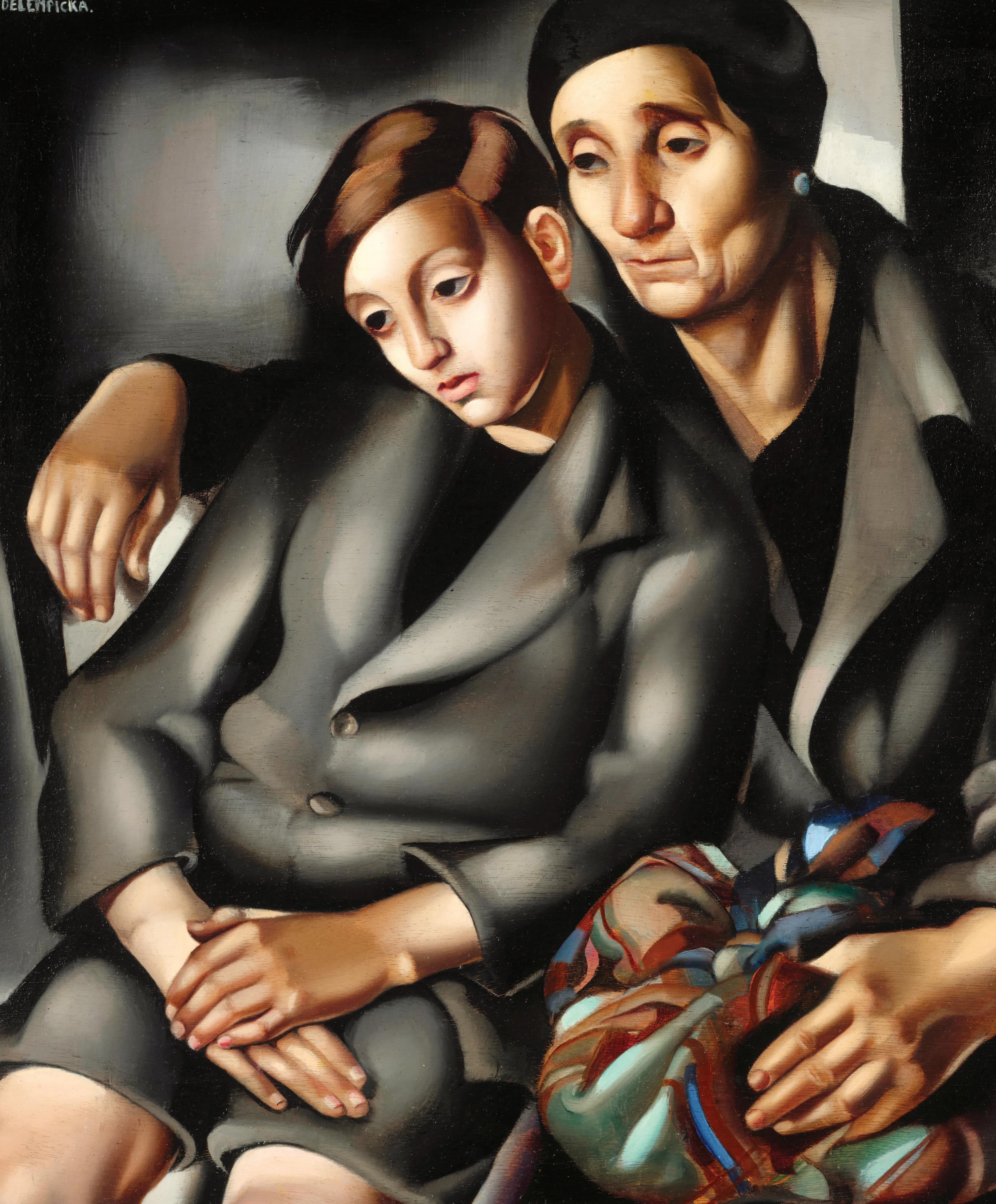
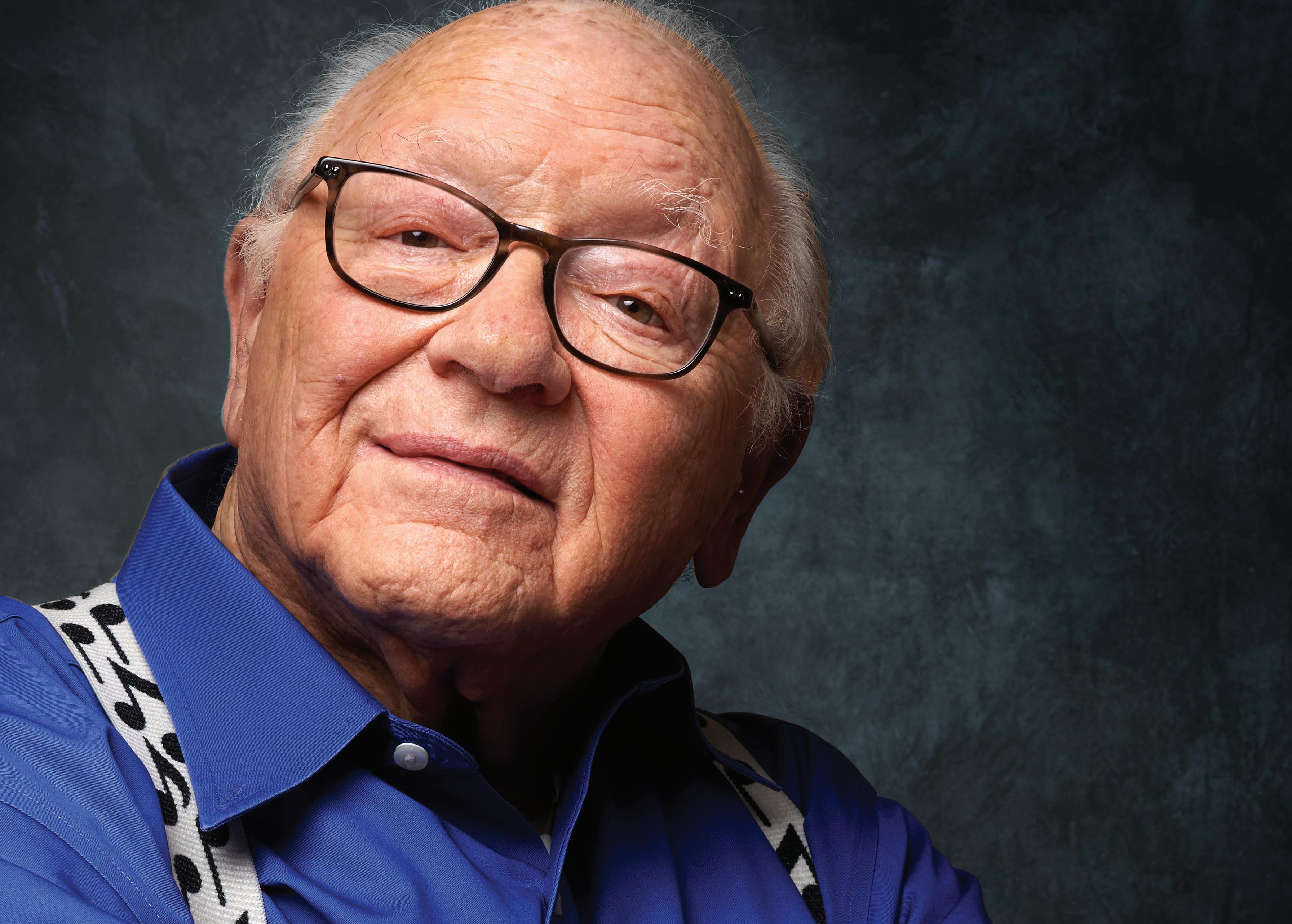
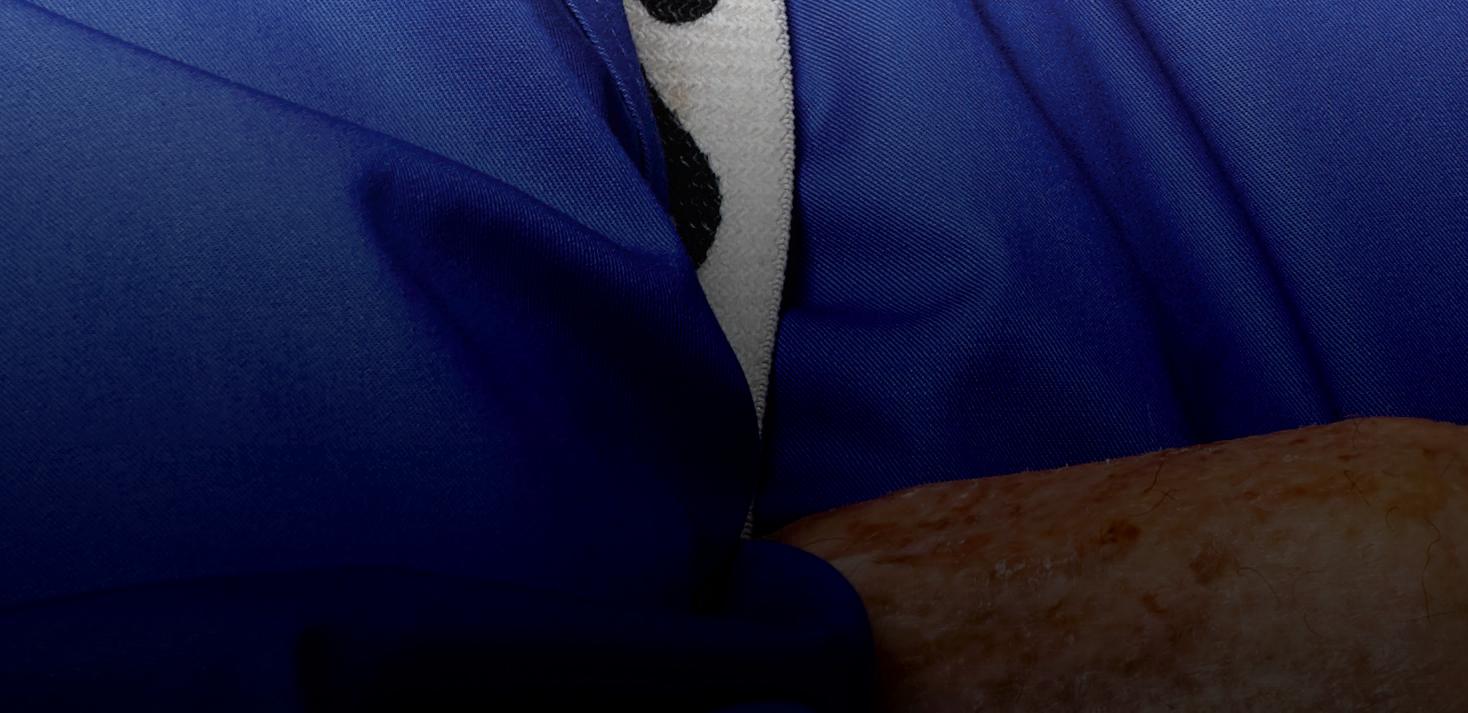
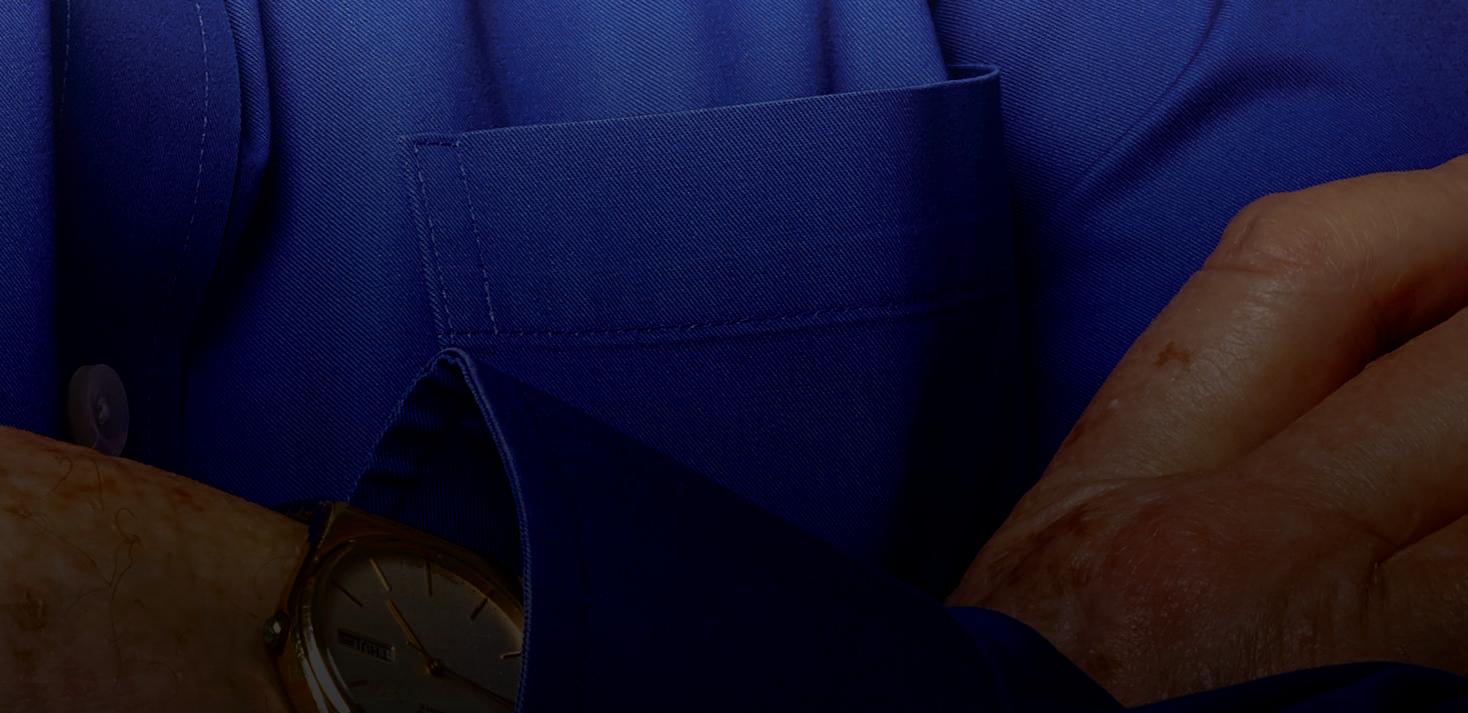
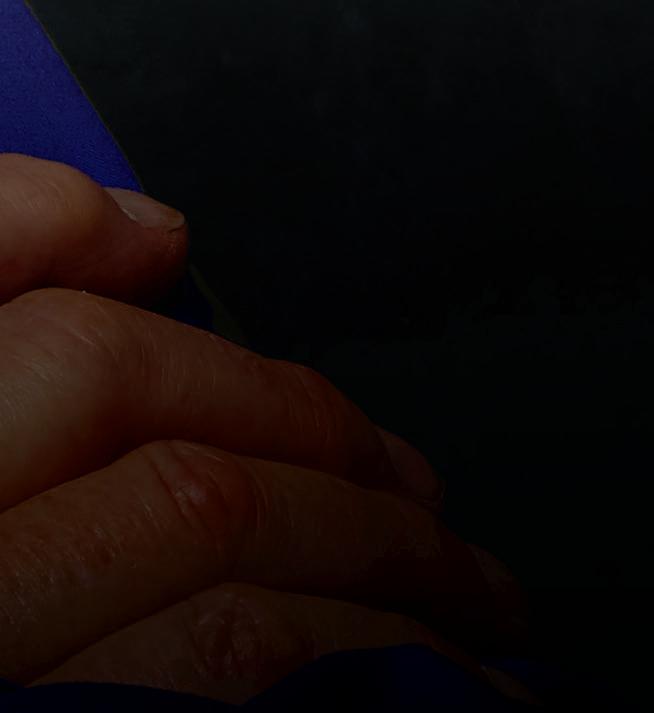












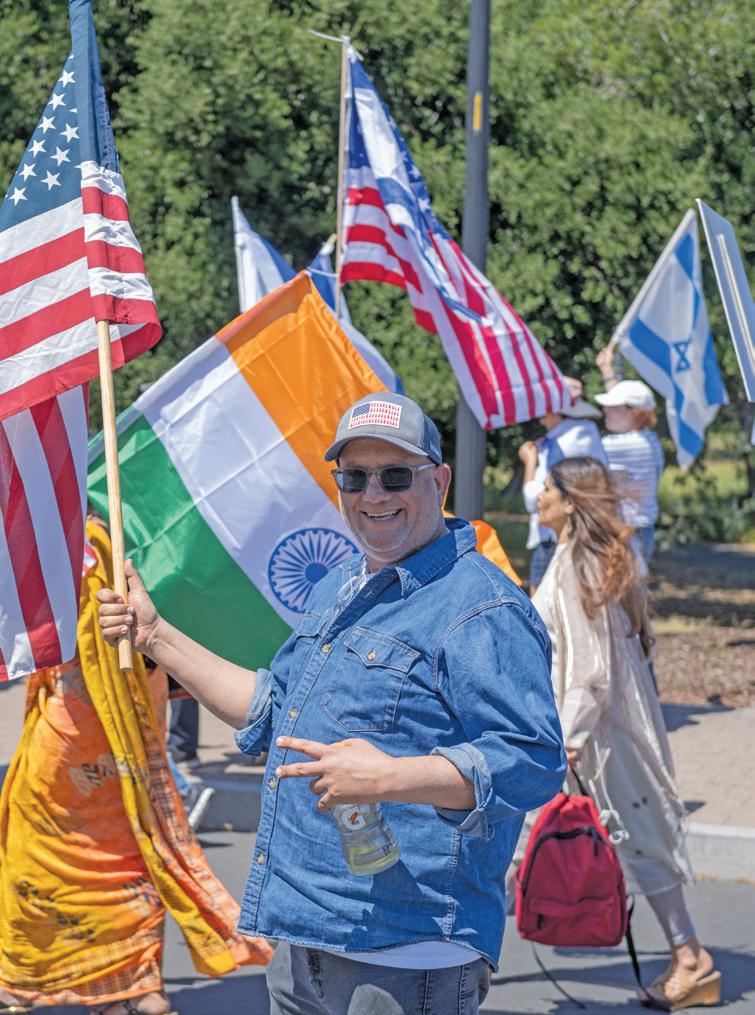
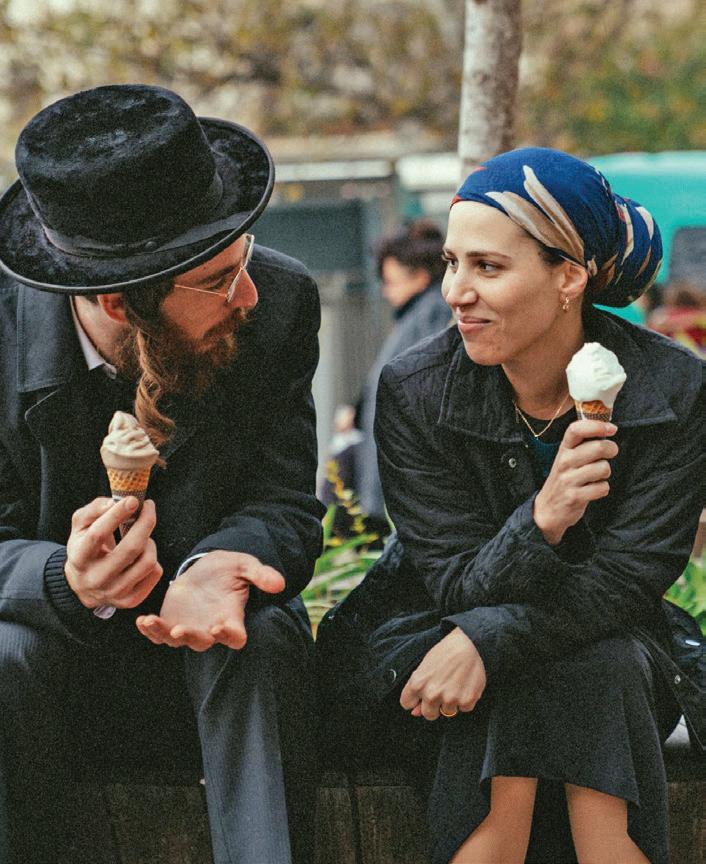



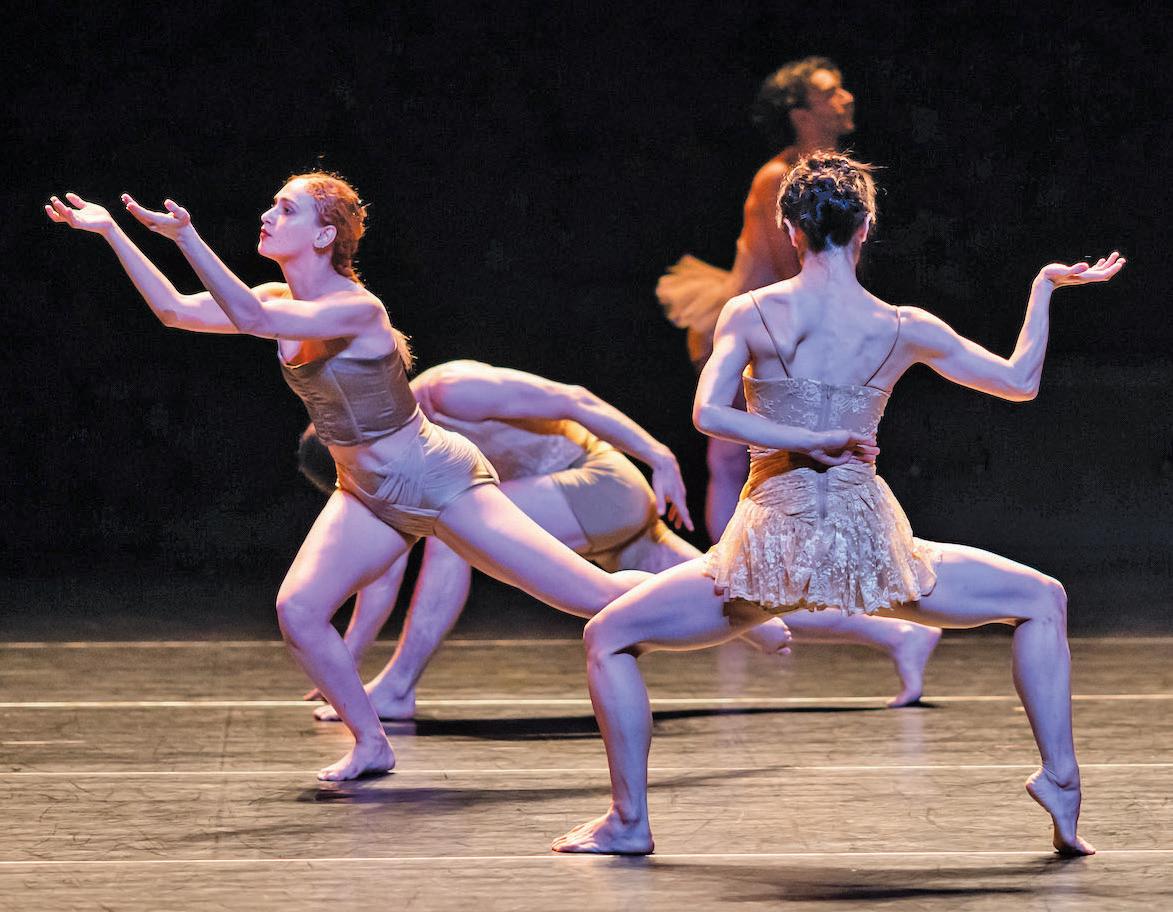


3 Cal faces scrutiny after academics deny Hamas rapes
4 JCRC survey: Most local Jews still felt ‘less safe’ in 2024
5 In suit, Israeli postdoc accuses Cal union of anti-Israel bias
6 COVER STORY: Local Jewish groups scramble to help refugees in fearful time
8 Iranian Jew, 89, reaches Peninsula just days ahead of border shutdown
10 Rabbis rebuke Jewish leader for call to expel ‘alien’ threats 12 San Francisco firefighter describes battling ‘surreal’ wildfires in L.A.
15 ‘Dudu’ Habib, a charmer who cared for mourners, dies at 46 16 $2.5M pledge pushes SF Hillel campaign into final stretch
17 3 centenarians find joy at Beth Ami, and with each other 18 Joy and pride, not crises, pulled me back to Judaism
19 I found hope in the founding of the War Refugee Board
20 The smallest acts of kindness can create endless ripples
PROFESSIONAL & REAL ESTATE 24 NBA’s only Israeli is making a mark on Portland Trail Blazers
31 WinterFest to premiere chilling doc ‘Among Neighbors’
Sacramento film fest: ‘Bad Shabbos’ to ‘Sabbath Queen’
Comedy, drama, thriller, love story — East Bay fest has it all 33 New Yorker’s Adam Gopnik on cosmopolitan Jewish culture 34 Iron Dome for fires? Israeli startup coming to California 34 Israel’s Batsheva Dance Co. brings lithe athleticism to Cal
jweekly.com 415.263.7200 info@jweekly.com
Among the world’s most exciting makers of contemporary dance, Ohad Naharin brings his powerhouse company to Berkeley for the Bay Area premiere of a daring recent work. An exclusive 10% discount is now available to
• By phone at (510) 642-9988
• In person at the Ticket Office at Zellerbach Hall
• Please note: The Ticket Office is open Tues–Fri, 12–5:30 pm; Sat-Sun, 1–5 pm (closed Mondays)
• Online using Promo Code BATS10:
» You must enter promo code BATS10, then look for the “Special Offer A” price type when selecting your seats.
» This offer is valid for price levels 3–6 and requires a login. If you do not have a Cal Performances account, register at the prompt.
» Limit of four (4) tickets. Not applicable on prior purchases. The offer expires February 22, noon.
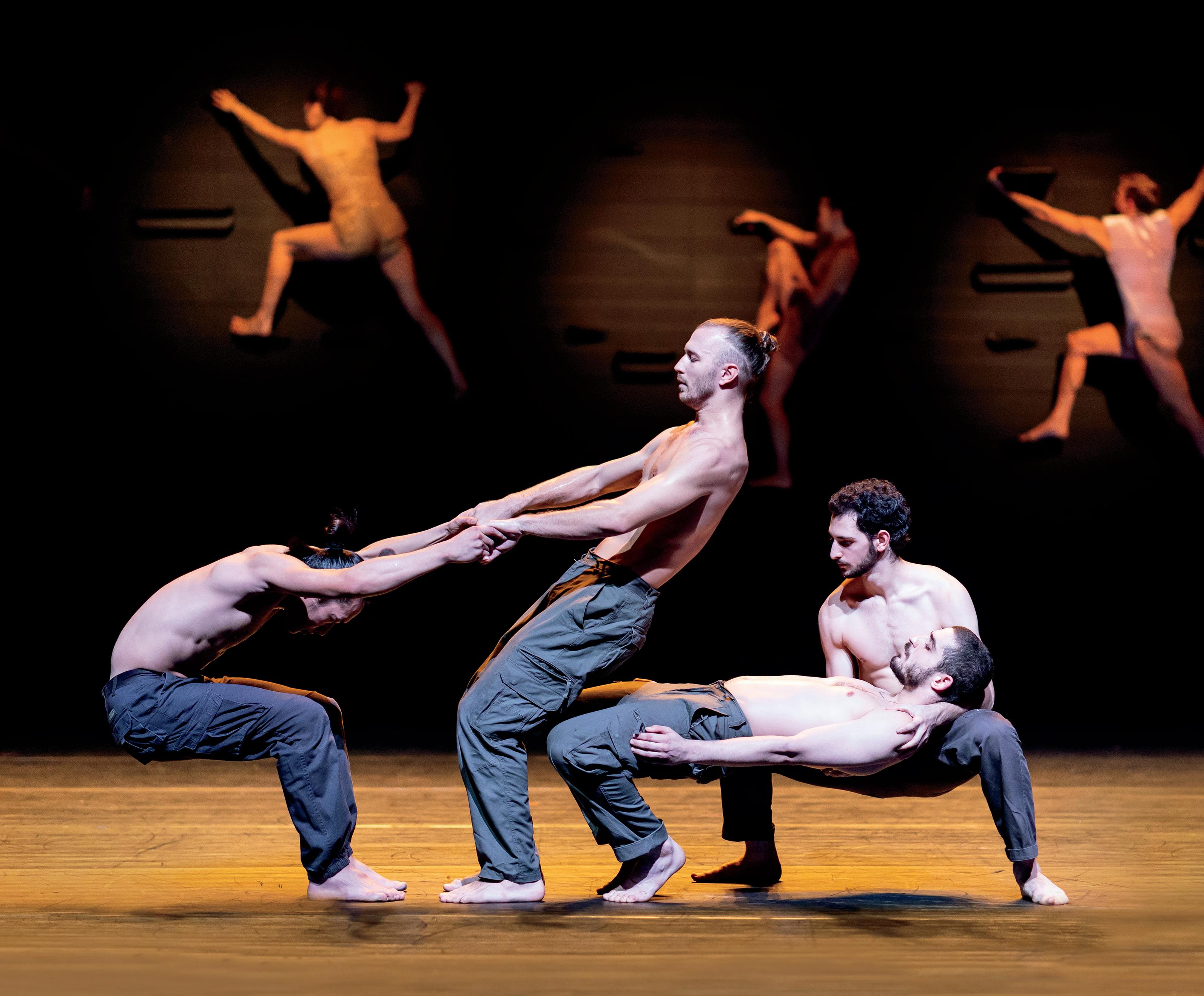
Altman-Ohr, Sue Fishkoff, Dan Pine, Alix Wall
COLUMNISTS Howard Freedman, Karen Galatz, Janet Silver Ghent, Faith Kramer, Dr. Jerry Saliman, Micah Siva
ADVERTISING & PROMOTION
ACCOUNT EXECS Nancy Beth Cohen, Meryl Sokoler
ART & PRODUCTION
DIGITAL TECHNOLOGY DIRECTOR Antonio R. Marquez
GRAPHIC DESIGNERS Michelle Palmer, Steve Romero
BUSINESS
DEVELOPMENT DIRECTOR Allison Green
DEVELOPMENT ASSOCIATE Carrie Rice
MARKETING ASSISTANT Holley Newmark
ACCOUNTING ASSISTANT Linda Uong
TECHNOLOGY
IT SUPPORT Felipe Barrueto
BOARD OF DIRECTORS
CO-PRESIDENTS Steven Dinkelspiel, Carol Weitz
VICE PRESIDENTS Andy Rittenberg, Jerry Yanowitz
SECRETARY Patricia Rosenberg
TREASURER Jane Springwater
MEMBERS Liz Berman, Alex Bernstein, Mark W. Bernstein (imm. past president), David Cornfield, Alexandra Corvin, Rabbi Joey Felsen, Howard Fine, Inna Gartsman, Alia Wechsler Gorkin, Samantha Grant, Steve Katz, Susan Libitzky, Rabbi Deborah Newbrun, Susan Sasson, Harmon Shragge, Peter Waldman
PAST PRESIDENTS Marc Berger, Lou Haas, Jon Kaufman, Dan Leemon, Adam Noily, Lory Pilchik, William I. Schwartz

GABE STUTMAN | J. STAFF
UC Berkeley is under pressure from Jewish activists after extreme anti-Israel statements were linked to the upcoming forum “Feminist and Queer Solidarities with Palestine.”
A forum summary, which was published then deleted from the Cal website, caused an uproar for claiming that evidence of mass sexual violence on Oct. 7 had been “debunked.” That claim contravenes the United Nations, the International Criminal Court, numerous press reports and witness testimony of Hamas rapes of Israeli women during the deadliest terrorist attack in Israel’s history on Oct. 7, 2023.
The summary stated that Zionists had “weaponized feminism, so as to serve Israel’s genocidal intent.” After the summary was removed, university administrators said the description referred to one panelist’s talk, not the Feb. 11 event itself.
Since then, other extreme statements linked to the panelists have emerged, raising questions about whether the event will platform views celebrating terrorism as a form of resistance to Israel, denying evidence of rape and sexual assault
“The speakers featured on this panel … all have a documented history of downplaying or denying the documented sexual violence perpetrated by Hamas on October 7.”
EndJewHate email campaign
against Jewish women, and making use of antisemitic tropes.
Paola Bacchetta, a professor and vice chair for research in Cal’s department of gender and women’s studies, is moderating the online talk, which includes three professors from outside universities. Bacchetta also co-directs the Decolonizing Sexualities Network, an international consortium of scholars and activists.
In November 2023, the Decolonizing Sexualities Network published a “Statement of Solidarity with Palestine” on its website that celebrated the Oct. 7 attack as an act of heroism. The statement was translated from French and was attributed to “political, decolonial, radical feminist lesbians of color.”
Palestinians “have broken the chains of their prison in Gaza, a veritable concentration camp,” the statement said. “From October 7, 2023, history will remember this resistance in the service of the legitimate self-defense of a people roaring with dignity, justice, freedom. So, let’s make sure we contribute to this history. Let’s be there! Let’s live up to it!”
On Oct. 7, Hamas terrorists and other militants invaded southern Israel, slaughtering civilians at the Nova music festival and on kibbutzim and taking 251 hostages. About 1,200 people were killed on that day, inciting a war between Israel and Hamas that has devastated the Gaza Strip and killed tens
of thousands of Palestinians there.
Bacchetta did not respond to multiple requests for comment.
The Feb. 11 forum is set to take place over Zoom. Public scrutiny of the event followed a Jan. 24 report in Haaretz, a leading Israeli newspaper with a progressive bent, under the headline “Berkeley Event Will Examine ‘How Zionism Has Weaponized Feminism to Serve Israel’s Genocidal Agenda.’”
Now, two groups of activists have started an email campaign to pressure Cal leadership to take action.
EndJewHatred, an activist group founded by the lawyer Brooke Goldstein, and Pens For Swords, a digital network of thousands of pro-Israel activists concerned about antisemitism, launched the campaign, which is aimed at Cal’s chancel-
The development presented a knotty public challenge for Cal Chancellor Rich Lyons, who came into office last summer pledging to curb antisemitism and other forms of bias.
The UC system as a whole has promised to take a harder line against protests that violate university policies, such as the pro-Palestinian tent encampments prevalent on campus last spring. No such protests have taken root this school year. The university still faces a a congressional inquiry and a more than year-old federal lawsuit, and on Feb. 3, the federal government announced investigations into alleged “widespread antisemitic harassment” at five American universities: Columbia, Northwestern, University of Minnesota, Portland State and UC Berkeley.
In a statement to J. on Jan. 31, Lyons criticized statements from panelists that celebrated Oct. 7, described Zionism as a “global apparatus” and called Israel a white supremacist country.
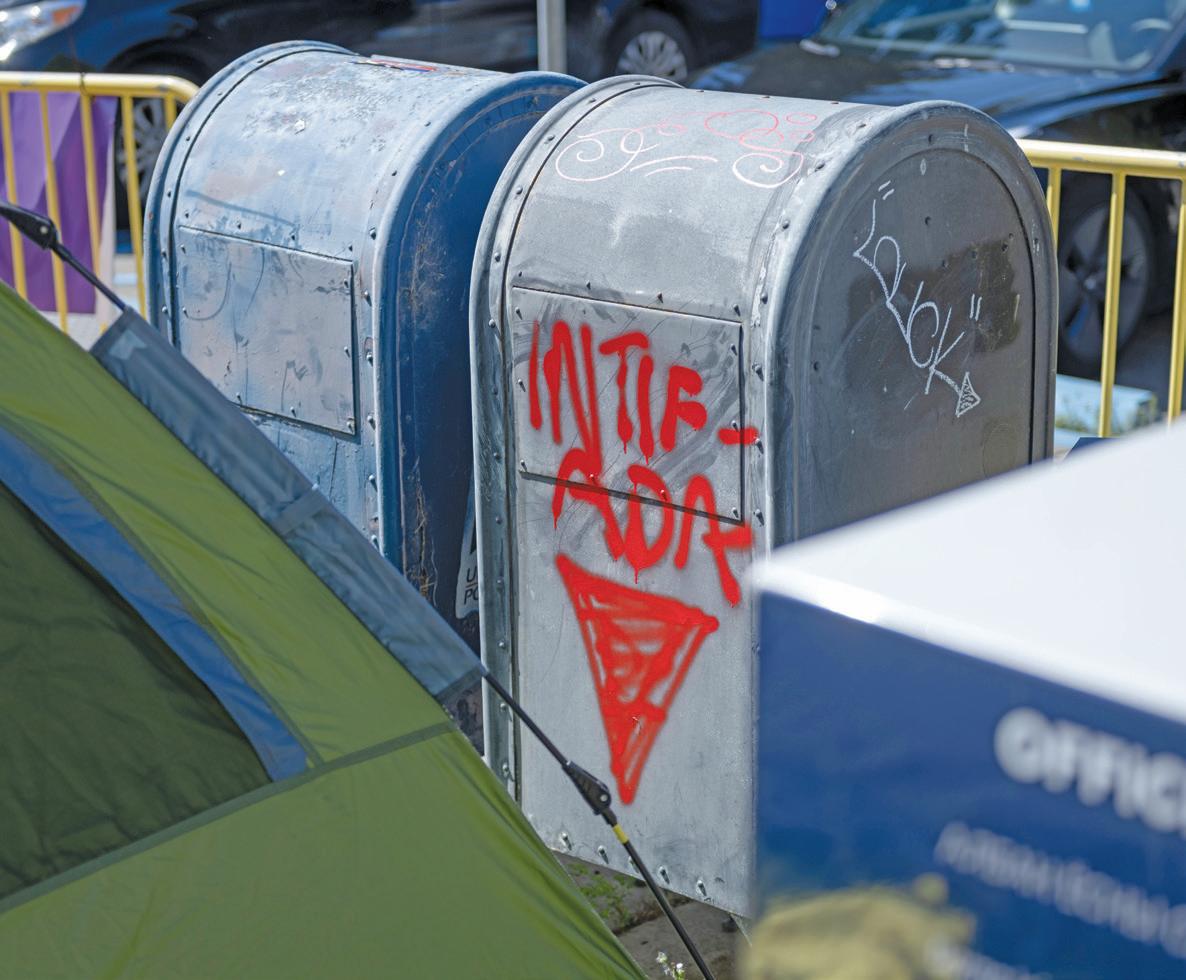
“Intifada” spray-painted on a mailbox at UC Berkeley on May 7, 2024. (AARON LEVY-WOLINS/J. STAFF)
lor and regents, the California Department of Education and members of Congress, including the House Committee on Education and the Workforce, which convened public hearings on antisemitism in higher education in December 2023.
“While I respect the principles of academic freedom and free speech,” the email template states in part, “the speakers featured on this panel … all have a documented history of denying the legitimacy of the State of Israel, downplaying or denying the documented sexual violence perpetrated by Hamas on October 7, presenting claims of an Israeli ‘genocide’ in Gaza as fact rather than opinion, supporting intifada, violent resistance, convicted terrorists, and antisemitism.”
In addition to asking UC Berkeley to condemn the panelists’ statements, the email campaign urges the university to “reconsider hosting and legitimizing this one-sided panel” that is “antithetical” to Cal’s values.
“If accurately reported, elements of these past statements made by panelists are disturbing and inflammatory,” Lyons said in the statement. “We will, as we have in the past, continue to condemn antisemitic expression, and all other forms of biased, discriminatory expression on our campus that is wholly inconsistent with our Principles of Community.”
His statement added, “The university’s academic freedom policies and the First Amendment can, and often do, protect expression and perspectives that are hateful, and/or absurd.”
Lyons’ statement noted that “no student is required to attend” the event, “nor is it part of a course where UC policies prohibit political advocacy or indoctrination.”
The panelists set to join the Feb. 11 event are stridently anti-Israel, past statements show.
Nada Elia is an associate professor in the ethnic studies department at Western Washington University. In a 2016 article for Middle East Eye, Elia delivered a harsh rebuke of Zionism, writing that its impact stretches across the entire world, echoing antisemitic tropes about Jewish domination of world events.
“Zionism functions as a global apparatus that seeks to shut down the will of the people everywhere,” the article said.
In the same piece, Elia, who did not respond to a request for comment, expressed sympathy for Iran, which had “suffered for years as a result of Zionist pressure on the U.S.,” and praised Roger Waters, the rock musician accused repeatedly of antisemitism.
Another panelist, Nadine Naber, in March accused Israelis of raping Palestinians since the country’s founding and described Israel as a “white supremacist” country. n
MAYA MIRSKY | J. STAFF
The Jewish Community Relations Council Bay Area surveyed local Jews in 2023 in the weeks after Oct. 7, when people were reeling from the shock of the deadly Hamas attacks, the intense opposition to Israel’s response and the sharp spike in antisemitism both locally and worldwide.
A year later, JCRC conducted another survey to measure whether those views have changed. Though antisemitism is still a major concern, respondents feel more satisfied with how local governments, schools and workplaces have been handling it compared with 2023. At the same time, the emotional whiplash of the past year continues to have an impact, and a majority of respondents, 55%, still feel “less safe” than they did before Oct. 7.
The new survey, released Jan. 28, was conducted before the start of Israel’s fragile cease-fire deals with Hezbollah and Hamas, and the first releases of Israeli hostages in well over a year.
“While we hope an end to this war may reduce some of the pressures our community faces, lasting damage has been done to many of our civic institutions,” JCRC CEO Tye Gregory said in an email to J. “If we are to begin to remedy this damage, we need solutions and concerted engagement from local leaders.”
The survey, conducted by Oakland-based market research firm EMC, included 800 people who identify as Jewish in the Bay Area’s nine counties. Like the 2023 survey, the 2024 survey was done in late November and early December. A similar survey from 2022 enables comparison for some data across the three years.
Responses to the “most important
challenges in the Bay Area” remained the same between 2023 and 2024. Choosing from a list of general societal concerns, people placed affordable housing, homelessness, crime and cost of living at the top.
In 2023, 7% picked antisemitism as one of the top regional challenges. In the current survey, that dropped to 3%.
However, when the question was framed differently — asking whether antisemitism is the “most important problem facing Bay Area Jews today” — a majority of respondents agreed. The 52% who agreed in 2024 is similar to the 51% who agreed in 2023, compared with 37% in 2022.
The second biggest problem facing Bay Area Jews, according to 12% of respondents, is “Israel/Palestine,” compared with 10% who said the same in 2023.
One positive change in perception relates to how institutions are responding to antisemitism. Satisfaction with the response of local governments grew from 39% in 2023 to 52% in 2024. In K-12 education, satisfaction rose from 28% to 41%. And for colleges and universities, it increased from 19% to 32%.
Still, “the volume of antisemitic incidents our team responds to day-to-day — most often in K-12 schools — remains far higher than pre-Oct. 7 levels,” Gregory said.
The satisfaction numbers also improved in relation to the response to antisemitism in “social justice spaces” (36% satisfied) and the workplace (67% satisfied). The lowest rate of satisfaction was with social media, at 21%, but still an increase from 13% in 2023.
How people feel about expressing their Jewish identity in public — 80% said they were at least somewhat comfortable

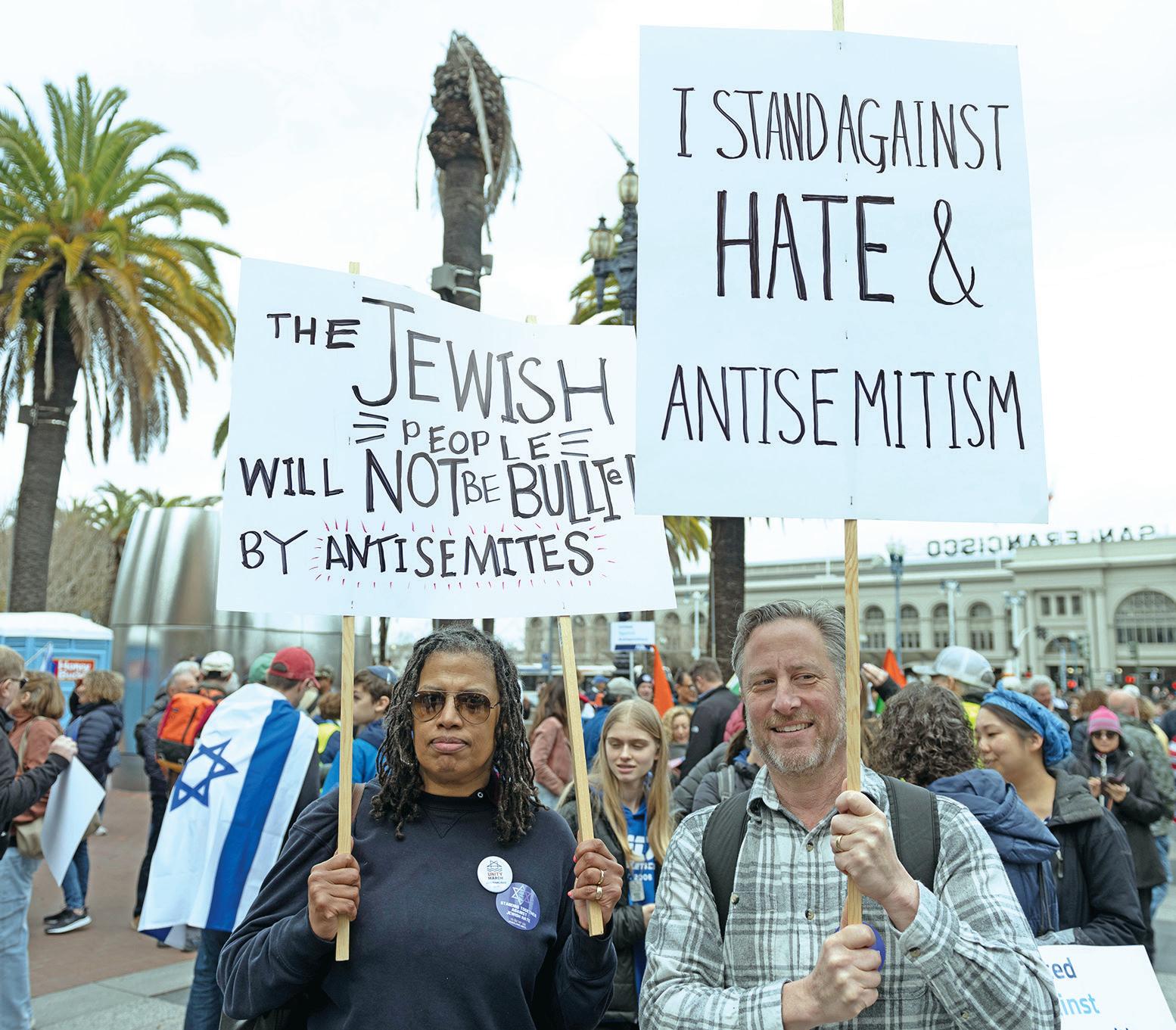
“These data points are an important reminder that being pro-Israel is not synonymous with supporting the Israeli government’s actions.”
Tye Gregory
doing so — was roughly unchanged from 2023. Among several new agree-disagree statements in the 2024 survey were “I have felt excluded at times” for being Jewish (40% agreed) and “I have lost friends” (19% agreed).
Asked whether they had witnessed or been the victim of antisemitism (either in person or online) in the past three years, 42% said yes, an increase from 39% in 2023 and 32% in 2022. Of those, only 30% said they had reported it “to anyone.”
Unchanged were feelings about Israel’s right to exist. In 2022, 2023 and 2024, 89% of respondents consistently said they agree that Israel has the “right to exist as a Jewish and democratic state.”
“This underscores our community’s enduring connection to and support for Israel,” Gregory said. “It also highlights how the far-left’s strategy of hiding behind anti-Zionist Jewish groups to deflect accusations of antisemitism is deeply problematic.
These anti-Zionist groups do not — in any way — represent the mainstream Bay Area Jewish opinion of Israel.”
However, Gregory added, “supporting Israel” doesn’t mean agreeing with its political leaders. He compared the high percentage of people who support the country’s right to exist with the relatively low percentage who back its government.
“This year's data shows that only 25% of our community approves of the job Israel’s current government is doing,” Gregory said. “These two data points are an important reminder that being pro-Israel is not synony-mous with supporting the Israeli government’s actions.”
Though people’s comfort in expressing their views about Israel in public dipped after the Hamas attack, it rebounded somewhat: 76% had felt comfortable doing so in 2022. That figure dropped to 66% in 2023 before bouncing back to 70% in 2024.
The survey also included questions about the makeup of the Jewish community.
The most popular religious denomination was Reform, at 26%. Another 28% percent identified as secular. Some 36% of all respondents said they “rarely” participate in Jewish activities. Nearly half (47%) are part of an interfaith family, and 19% live in a household with at least one person of color.
The political makeup of respondents was 36% liberal, 25% progressive, 25% moderate and 11% conservative. n
GABE STUTMAN | J. STAFF
An Israeli postdoctoral researcher at UC Berkeley filed a lawsuit Jan. 24 against her union, alleging that its leaders have created a pervasive atmosphere of bias and hostility against Israeli and American Jews.
In a 105-page complaint filed in U.S. District Court in San Francisco, plaintiff Karin Yaniv paints a picture of a union engaged in pro-Palestinian activism that has intensified since Oct. 7, 2023, and become openly hostile toward pro-Israel union members.
The defendant in the lawsuit, UAW Local 4811, represents 48,000 student employees, postdocs and researchers in the UC system, according to its website. It is part of the United Automobile, Aerospace and Agricultural Implement Workers of America (UAW), one of the largest unions in the country, with more than 400,000 members across a variety of industries.
Yaniv, a microbiologist, came to Berkeley in 2022 to study how bacteria develop resistance to antibiotics.
Her lawsuit describes how she and other Israeli and American Jewish union members were taken aback by a statement that the union’s executive board released one week after the attack on Oct. 7, 2023. “We mourn the tragic loss of both Palestinian and Israeli lives this week,” the union statement read, “and we unequivocally condemn the decades-long violent occupation of Palestine that has led to this escalation of horrific violence.”
In a press release announcing the lawsuit, Yaniv described
the emotional pain caused by the union’s statement.
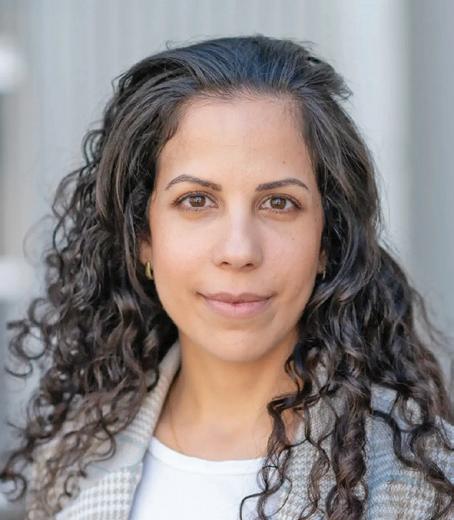
“It was like a knife in the back of UC Berkeley’s Jewish community when, less than a week after the horror and death of October 7, the union issued a statement condemning Israel,” Yaniv said in the press release. “Since that time, union officials have only twisted that knife by systematically discriminating against Jews, supporting the anti-Semitic BDS movement, and creating a hostile work environment for Israeli Jews on campus.” BDS refers to the boycott, divestment and sanctions movement against Israel.
UAW 4811 said in a statement emailed Jan. 27 to J. that it does not tolerate discrimination. “Although we are not yet in receipt of this lawsuit, we want to make clear that there is not and has never been any space for discrimination of any kind in our union,” the statement said.
Union members across the UC system have been outspoken in support of the pro-Palestinian cause. Last spring, the union voted to strike in opposition to the UC system’s treatment of pro-Palestinian protesters and the decision to use police to shut down tent encampments. A California judge
ordered the strike to cease weeks later.
Yaniv’s complaint was filed by attorneys with the Fairness Center, a Pennsylvania-based public interest firm that represents clients in suits against public-sector unions. The suit alleges that the union has created a hostile work environment and has violated Title VII of the Civil Rights Act and the California Fair Employment and Housing Act.
The complaint alleges that UAW 4811 officials encouraged members to attend pro-Palestinian protests, including one at Cal’s Zellerbach Playhouse last February that turned violent.
According to the complaint, union officials participated in campus encampments, approved anti-Israel resolutions, chanted anti-Israel slogans and withheld information from Jewish union members given to other members.
In one incident, the complaint alleges, an Israeli union member who had family members kidnapped by Hamas on Oct. 7 was ridiculed during a union meeting.
“While she was speaking, Union members laughed, interrupted her, and wrote ‘LMFAO’ (slang for ‘laugh my f***ing ass off’) in the meeting’s Zoom chat,” the complaint alleges.
“The Union, by and through its officials, discriminated against Yaniv due to her identity as an Israeli Jew,” the complaint alleges, “including by denying her participation in Union working groups to which anyone who was non-Israeli was given admission … and violating other Union rules in order to discourage or prevent her from participating in Union meetings and votes.” n
By Consuelo Faust Anderson
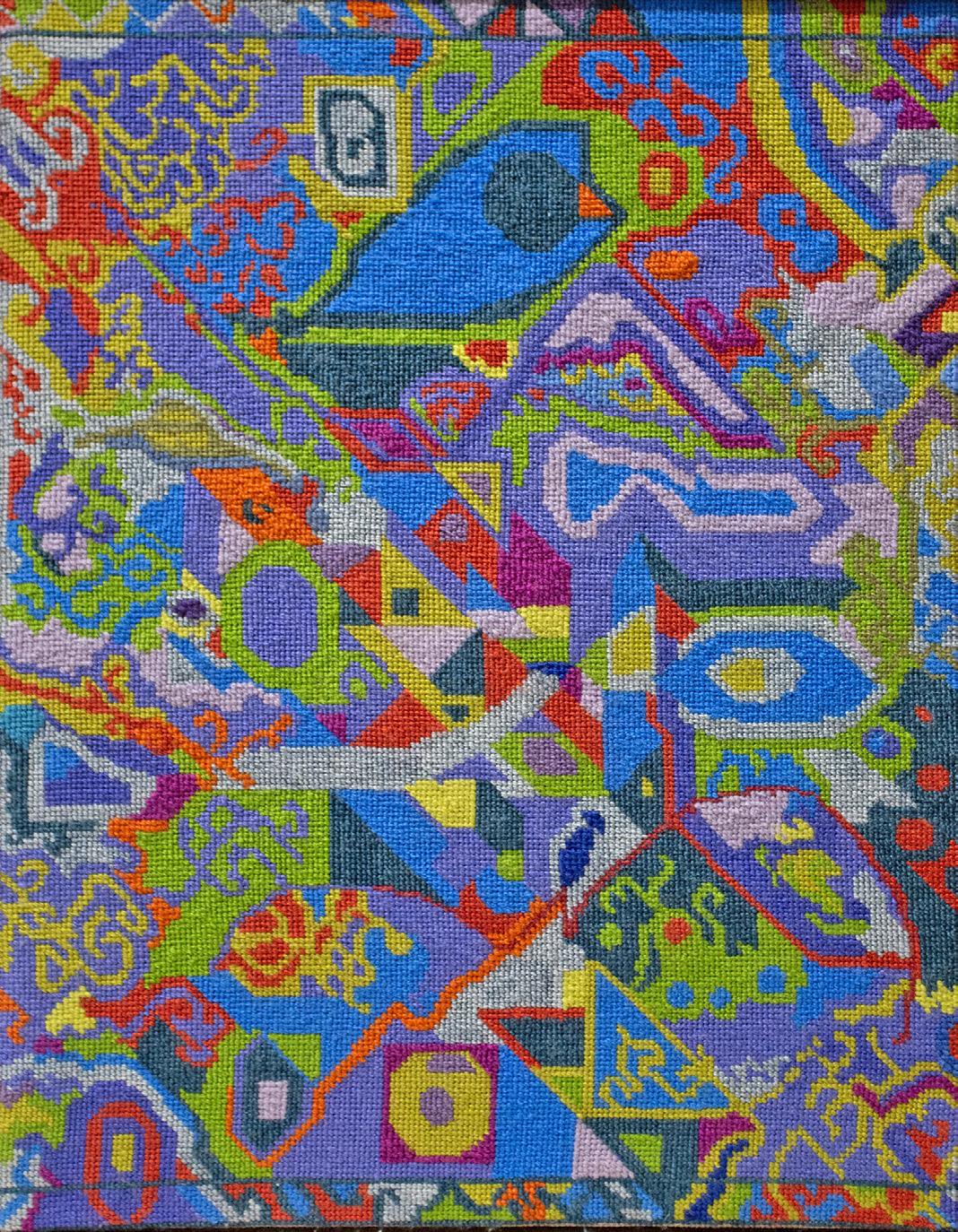
SUE FISHKOFF | CORRESPONDENT
Assad looked exhausted as he spoke from his rented home in Concord, where he lives with his wife and three children, ages 9, 6 and 1.
The Afghan native has been in the United States just over a month and is trying to get his family settled in, he told J. over Zoom. The two older children just got vaccinated for school, and he’s taking English classes to polish his language skills before applying for a job.
Assad, 35, worked with the U.S. military and the Afghan military police for 10 years, from 2011 until the Taliban reoccupied Afghanistan in 2021. Facing death threats, he took his wife and children into the countryside, where they lived in hiding for three years waiting for permission to enter the United States under the Special Immigration Visa (SIV) program, offered mainly to Afghans and Iraqis who worked with the U.S. Armed Forces abroad.
in jeopardy when President Donald Trump, on his first day in office, began signing a flurry of executive orders targeting not only illegal immigration, but legal immigration as well. One of the executive orders closed the borders to new refugees, stranding thousands of people who have already been vetted and approved for visas to the United States.
These hopeful refugees are now in limbo, either in temporary housing outside their home countries, or in hiding.
Federal programs that deliver benefits to refugees once they make it to the U.S. also came under attack via executive order.
A freeze on federal grants and loans, which threatened foreign and domestic aid to refugees, has since been rescinded, but chaos and confusion reign throughout governmental agencies.
Aid workers don’t know what future
the government stopped everything, we will help you as much as we can,” Assad told J., referring to a conversation he had with his liaison at JFCS East Bay.
“It’s very difficult for us,” he continued. “When a person comes to a new country, it’s a completely new environment. We need support to get a job, enroll our children in school, buy a car. We need government support to build new lives in the United States. We ask the government please to reopen refugee resettlement help.”
Staffers at Jewish refugee aid agencies interviewed by J. said they had expected the new president to take swift action against undocumented immigrants. During his campaign, Trump repeatedly promised to “close our borders” and said he would begin mass deportations on his first day in office.
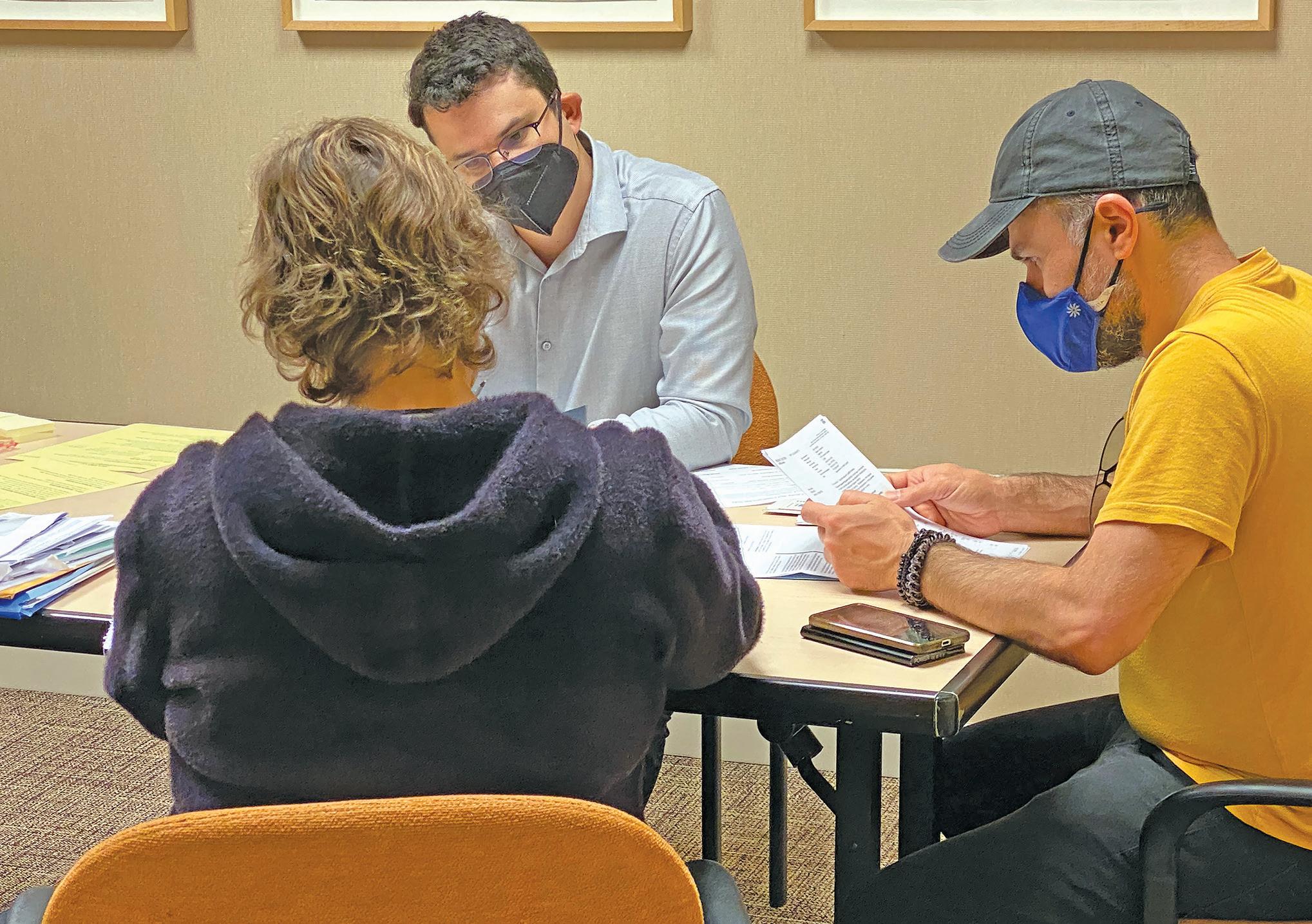
On Dec. 19, the family finally arrived in California, where they are receiving support from Jewish Family & Community Services East Bay for their first 90 days, the waiting period before federal benefits kick in.
“They gave us furniture, kitchen supplies. They pay the rent on our home,” said Assad, who is using a pseudonym to protect his mother, sister and brother still in Afghanistan. “They give us a lot of help.”
On Jan. 20, however, that help was put
restrictions will be imposed, which funding will continue and which will be held up.
Federal employees have been offered buyouts in anticipation of big layoffs. USAID, the nation’s main funnel for humanitarian aid to refugees abroad, has virtually stopped functioning.
As of press time, a search for “refugee admissions” on the U.S. State Department website led to a blank page.
“Jewish Family told us that even though

“It’s the complete halt of legal immigrants coming into the United States.”
But leaders of two major Jewish agencies that help refugees in the Bay Area — JFCS East Bay and Jewish Family Services Silicon Valley — said they were blindsided by the president’s targeting of refugees who have been approved for entry, as well as immigrants who came to the country legally.
“Realigning the United States Refugee Admissions Program,” an executive order Trump signed Jan. 20, halted admission of all refugees while the administration reviews
the program every 90 days to see whether its resumption aligns with the “national interest.”
The U.S. Refugee Admissions Program has brought in more than 3 million people since 1980 when it was created by Congress to help those facing persecution because of their race, religion, nationality, membership in a social group or political opinion.
The pause includes the “humanitarian parole” program used by Ukrainians, Haitians, Venezuelans, Nicaraguans and other refugees fleeing oppression and violence. It also affects the SIV program.
“We have not experienced this in the United States at this level ever,” said Susan Frazer, CEO of JFS Silicon Valley. “It’s the complete halt of legal immigrants coming into the United States.”
Between them, the two agencies have provided services to more than 3,000 refugees in the past several years.
The East Bay agency has 33 active cases of recently arrived refugees, involving some 100 individuals, more than half of them Afghans. It also has 22 cases on its waitlist, involving some four dozen Afghans.
JFS Silicon Valley has 116 active cases of recently arrived refugees, almost all from Afghanistan and Iran, the latter fleeing religious persecution. It also has 270 mostly Iranian refugees on its waitlist. The South Bay agency has welcomed 50 already this year, including an 89-year-old Iranian Jewish man who arrived in mid-January, just days before Trump shut the border (see page 8).
“We have refugees whose lives are at risk,” Frazer said, pointing in particular to Afghans who have been languishing in refugee camps in Pakistan, waiting for their promised visas. “They’ve been approved to come into the United States and now they’re denied access,” she said. “Some of them are hiding in Pakistan because the camps were closed. So they have nowhere to go.”
Robin Mencher, CEO of JFCS East Bay, said the Afghans her agency was expecting to come “had their flight tickets in hand, and they were just canceled.”
Some have family members already in the East Bay. In one case, she said, parents who have been waiting for their children to join them received word that the minors have been denied permission to enter the country.
Mencher said that those working in the field believed the SIV program would be left untouched, as it was in the first Trump administration.
“We were all surprised,” she said. Also unknown is what will happen to refugees already in this country. Most at risk, said Frazer, are recent arrivals who have not been here for 90 days. That’s when they
become eligible for federal and state help; until then, they are completely dependent on support from the refugee aid organizations. Moreover, the lion’s share of each agency’s budget comes from federal grants, Frazer and Mencher told J. If the grants disappear, it will severely curtail the help they can provide.
“For an organization founded on being able to support refugees, a core component of our Jewish values, to be told that not only are we not going to be able to welcome new refugees, we don’t want you to support the ones that just arrived — that feels very cruel,” Frazer said.
San Francisco-based Jewish Family and Children’s Services has also been affected by the clampdown on immigration. It has settled thousands of Jews from the former Soviet Union over the decades and has a robust emigre program, as well as many Russian-speaking employees and volunteers.
When Russia invaded Ukraine in February 2022 and refugees began pouring out of the war-torn country, JCFS was prepared to assist those arriving in the Bay Area with basic needs, legal advice, citizenship services, health care and more. The Ukrainians received expedited entry to the U.S. via the Uniting for Ukraine program, established by

former President Joe Biden, which granted them humanitarian parole and temporary protected status for two years, with options for renewal.
That program, too, has been paused by Trump. But the needs continue, said attorney Brett Snider, director of legal services for S.F.-based JFCS.
“We’ve had dozens of new Ukrainian clients come to JFCS for services in the last year, and that demand is increasing,” he told J. by email. “The war in Ukraine is still ongoing, and even when it ends, in many cases families


cannot return, as their homes and businesses have been completely destroyed.”
These three Bay Area Jewish refugee aid groups work in tandem with the national immigration agency HIAS, which provides services to “refugees, asylum seekers, and other forcibly displaced and stateless persons.” HIAS, formerly the Hebrew Immigrant Aid Society, shepherds refugees into the United States and then transfers their cases to the local agencies for sustained support.
Mark Hetfield, CEO of HIAS, told J. on Jan. 31 that “this has been the longest week of our lives.”
Although his agency had been preparing for expected presidential actions since the November election, he said it’s “still shocking” that Trump shut down the entire refugee resettlement program. He said 19,300 refugees around the world had been approved to enter the United States in February but are now stranded.
“This is the quintessential legal immigration program,” Hetfield said. “It’s completely controlled. You can only apply for it if you fall into one of these narrow categories established by the U.S. government. And even then, you still have to undergo a Homeland Security interview, extensive security vetting, medical vetting, until you finally get approved to come to the United States. It’s very much
controlled, legal immigration.”
“The Trump agenda is not just anti-undocumented immigrant, it’s anti-immigrant. It’s anti-refugee,” Hetfield added.
The government’s actions have created great fear in the refugee community, say those working in the field.
“It certainly doesn’t send a message that America is a safe place for them,” said Frazer, who on the day she spoke to J. said “far fewer” students showed up for the agency’s English-as-a-second-language classes “than we have seen in a long time.”
Snider concurred. “These changes have caused significant anxiety for our clients, many of whom are already traumatized by the events that led them to seek refuge in the United States,” he said. “Clients with parole or temporary permanent status now face an uncertain future. They fear being forced to return to the dangerous situations they fled.”
JFCS East Bay has posted a “community resource hub” on its homepage to keep refugees and community members updated on policy changes and how it will affect them.
Mencher said her agency had been, in fact, set to expand the services it offers to
continued on page 8
FEBRUARY 22–27
Select from 19 films at the Century 16 Pleasant Hill.
MARCH 9–20
Watch 14 of these films virtually plus 2 additional films.
MARCH 16
Enjoy 2 films at the Vine Cinema in Livermore.






continued from page 7
refugees who have been living here for a while but still need help assimilating.
“We were poised to expand refugee employment services to really help people get onto career tracks and pathways for self-sufficiency, so they can thrive and contribute to our community,” she said. All of that has been put on temporary hold, she said, while her agency focuses on beefing up local fundraising to help the newest arrivals.
While the bulk of assistance is provided by local Jewish nonprofits and governmental agencies, Bay Area synagogues have been actively advocating for immigrants for
many years. Unlike the agencies, however, synagogues do not limit their activities to helping only those with legal status.
On Feb. 14, S.F. Congregation Sha’ar Zahav will hold “Immigrant Shabbat: Welcoming the Stranger,” where experts will discuss laws and policies affecting both documented and undocumented immigrants. And on Feb. 23, Or Shalom Jewish Community, also in S.F., will offer “Welcoming the Immigrant,” a lecture exploring the Jewish concept of the ger or “resident alien.”
On Feb. 28, S.F. Congregation Sherith Israel will host its seventh annual HIAS-sponsored Refugee Shabbat, part of a series of themed Shabbats exploring different aspects of social justice that its
SUE FISHKOFF | CORRESPONDENT
David, an 89-year-old Iranian Jewish refugee, landed in Washington, D.C., last month on a plane with 17 fellow Iranians fleeing religious persecution. They were Baha’i, Christians and members of other minority faiths. David was the only Jew.
It was Jan. 17, three days before America shut its doors to all refugees.
David’s well-timed exodus from Iran, along with that of his entire group on the flight, was handled by HIAS, formerly the Hebrew Immigrant Aid Society, the nation’s oldest refugee aid agency.
David is now living in Hillsborough with his niece, who has been in the country for more than 30 years. At David’s request, neither of them is using their real names out of fear of being identified.
During a Zoom interview, David sat in a chair dressed in a blue button-down shirt and blue pants, smiling softly through the screen while his niece translated for him. He understands a lot of English but does not speak it. He said he was a “highly educated medical professional,” declining to be more specific, again out of fear of being identified.
His niece tried to tell him that he is safe now, that as the last member of his family to come to the United States, he has no relatives left in Iran to worry about. But David has lived in fear for so long that a week in America won’t change that.
Leaving his house and most of his belongings behind, he packed family photographs, some warm clothes, two cooking pots, a jar of honey and some dark chocolate.
“He didn’t know what they would give him to eat in Europe,” where he would be waiting to enter the U.S., his niece said.
The number of Iranian immigrants in the United States doubled in the 20 years after the 1979 Islamic Revolution.
leadership sees as under threat.
Sherith Israel has been a sanctuary synagogue since 2018, one of about a dozen in the Bay Area, providing legal assistance to undocumented immigrants and connecting them to housing and social services.
“We’ve done lots of work with undocumented immigrants through the interfaith network we’re part of,” said Rabbi Jessica Graf. As a synagogue, Graf believes, such action is required.
“We care because it’s central to the Jewish experience,” she said. “We are all immigrants, certainly in this country. It’s our story, the central story of the Jewish people.”
Hetfield said HIAS will fight both in court and in the public arena to get the
immigration restrictions lifted.
“We have to make a lot of noise and make it clear that this is not acceptable,” he said. “They’re keeping families apart, especially families that followed the rules, applied for the program, and then literally at the last minute were told, you’re not coming.”
In anticipation of sharply reduced federal funding, HIAS and Bay Area refugee aid organizations are seeking financial support from the private sector.
“Most Jews in this country have family helped by HIAS, and we’re going to need the support of those Jews now because we’re not going to get it from the government anymore,” said Hetfield. “In fact, we are on their hit list.” n
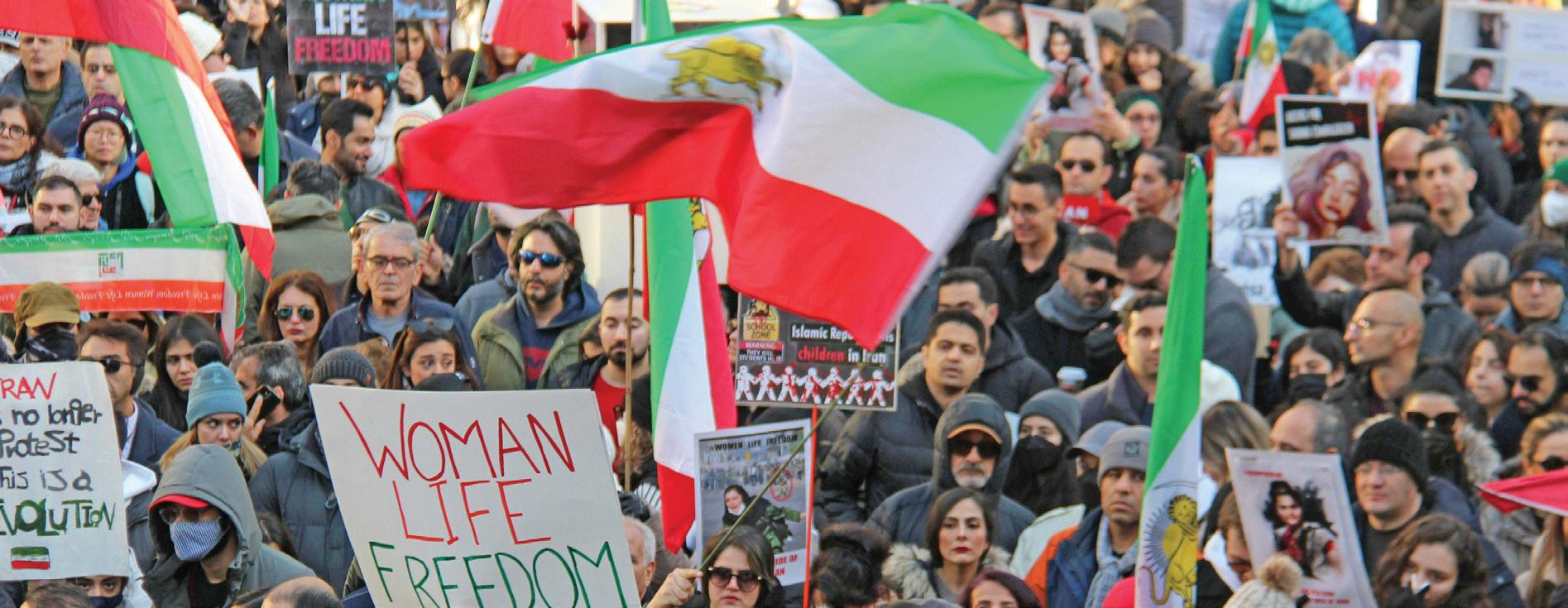
Today an estimated 385,000 live in the U.S., according to a 2019 report by the Migration Policy Institute; more than half of them live in California.
After dwindling to almost nothing during the first Trump administration, immigration from Iran moved into high gear again in March 2023, months after the outbreak of nationwide protests that led to 500 deaths and tens of thousands of arrests. Reports from U.S. agencies monitoring religious persecution in Iran say the situation has deteriorated in the past few years, as members of minority faiths are harassed, arrested and sometimes executed.
“All of us lived as Muslims in Iran,” his niece told J., “but it became worse recently. My uncle stopped going to synagogue about three years ago. He was afraid of being followed, and then they would know he was Jewish.”
On his first Shabbat in America, David accompanied his niece to Chabad North Peninsula in San Mateo, where she is a regular.
David, who had stayed behind to take care of his mother after the rest of the family left for America decades ago, first applied for entry in 2016, but his application, along with everyone else’s, was frozen. He applied again two years ago and, with his niece’s help in reaching out to Jewish Family Services Silicon Valley, was able to secure his visa.
His visa was expedited, his niece said, because of his age and because religious persecution was ramping up in Iran.
“The Jewish Family Services representative has been incredible,” his niece said. “We sent more than 400 emails back and forth. She got all the documentation going.”
In October 2024, David finally was able to leave Iran.
After living in a temporary HIAS location in Europe, he flew with his group to the U.S., getting in just under the wire.
Three days later, all new refugee admissions to this country were halted. On Jan. 20, newly inaugurated President Donald Trump signed executive orders closing the borders and shutting down the United States Refugee Admissions Program, the federal agency that brings refugees to the U.S. and works with local organizations to support and resettle them.
JFS Silicon Valley gave David some initial help, including $200 in cash. “They came to the house to make sure he was safe and had food to eat,” his niece reported. “I feel horrible. I have my uncle — I’m able to give him a bed and food. But others don’t have that kind of blessing.”
HIAS CEO Mark Hetfield told J., “We predominantly help non-Jewish people get to the United States, but one of the reasons the Iran program is important to us is it’s the one program where we are still helping a lot of people who are leaving because they are Jewish.”
Hetfield said HIAS has 14,000 Iranians on its lists right now. More than 700 of them are Jews.
Several times during his interview with J., David interrupted his niece to express his gratitude to the Jewish agencies that enabled his journey to America. He said that in his view, support for refugees is a bedrock of America’s legacy.
“The immigrants come to the United States not just for freedom but because they know there is some support, some help for them,” he said.
“Please tell her,” he said to his niece, “that support for new immigrants is crucial to their survival. It must not end.” n
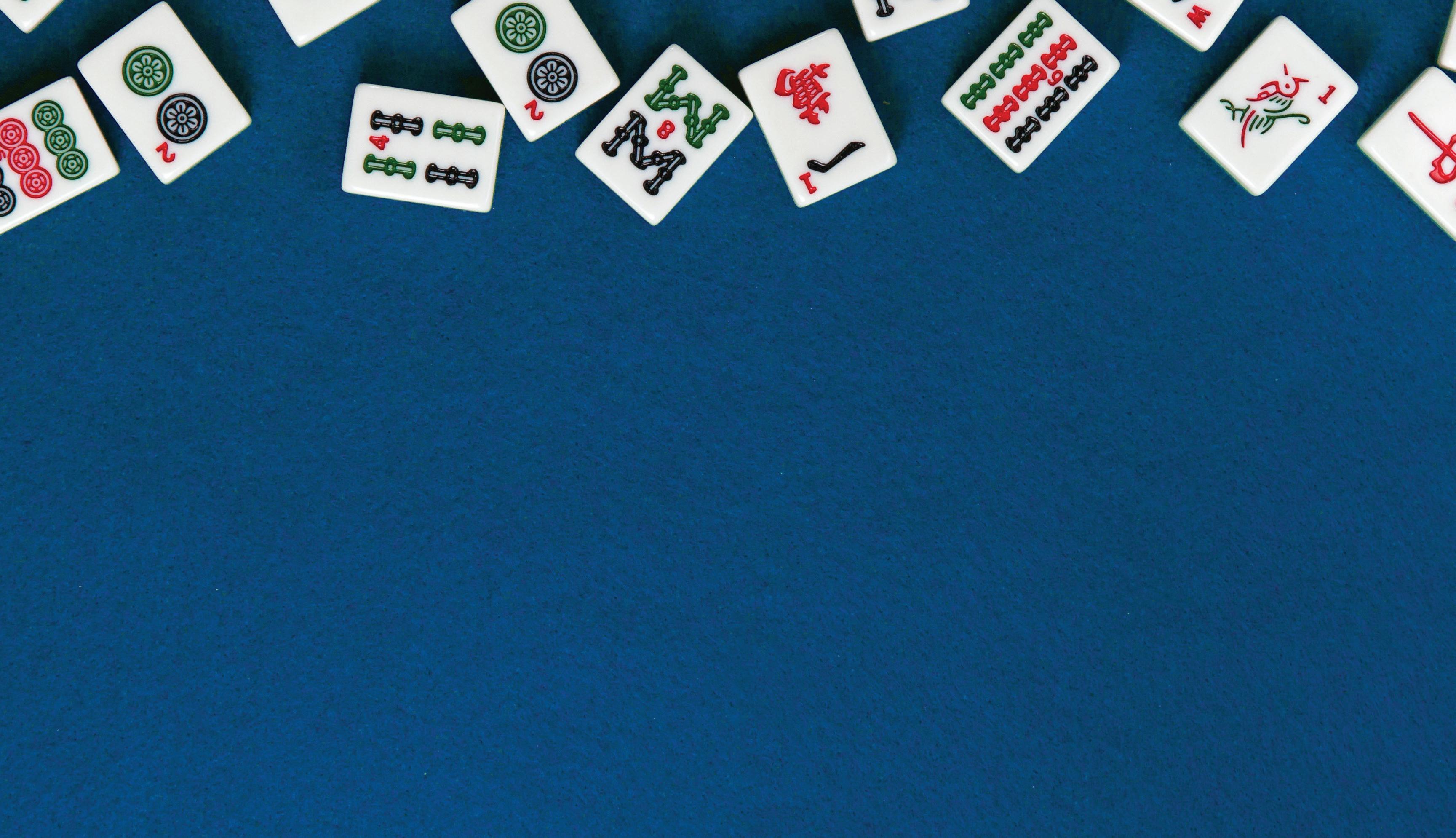







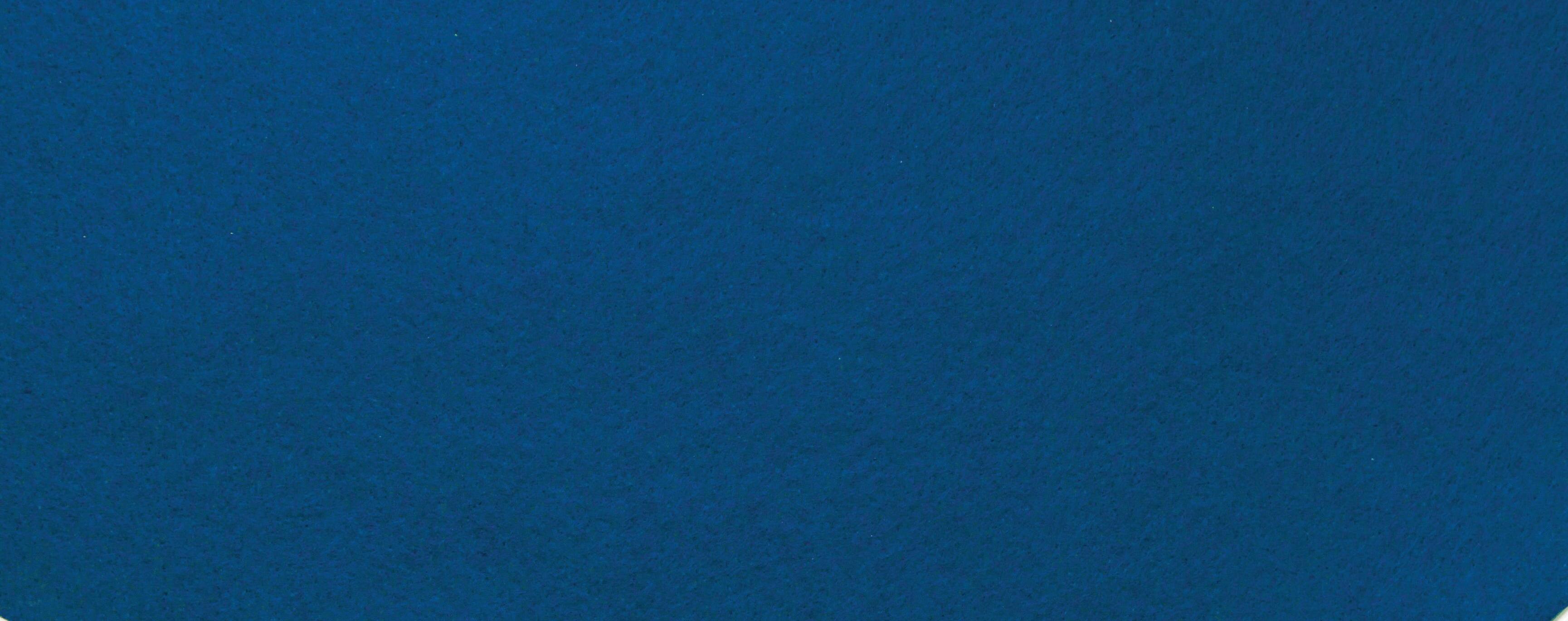
EMMA GOSS | J. STAFF
The leader of a national organization that protects Jewish communities from security threats wrote to President Donald Trump days before his inauguration, calling on him to deport “any non-citizen alien who supports terrorism.”
The Jan. 14 letter came from Michael Masters, CEO of Secure Community Network, which works on behalf of hundreds of Jewish organizations, including nonprofits, schools and federations. A total of 275 rabbis and cantors — including more than 20 from Northern California — have since signed an open letter that calls on Masters to retract his statement.
Masters’ letter cites several recent examples of threats to the Jewish community from foreign nationals, including a George Mason University student from Egypt arrested in December for allegedly plotting an attack on an Israeli consulate.
His letter came as the Trump administration has promised to investigate college

campuses for antisemitism and alleged support for terrorist organizations. On Feb. 3, the Department of Education announced investigations into five universities, including UC Berkeley, for allegedly fostering an antisemitic environment.
“Since Hamas’ October 7, 2023, attack on Israel, many American streets and campuses have been subject to numerous events that interfere with the rights of Americans to carry out their daily lives; people are being hindered, hassled, and harassed,” Masters wrote.
“While we deeply respect free speech, the parroting and promotion of the slogans, flags, and messages of designated foreign terrorist organizations are not free speech: they are support for terrorism,” he continued. “These incitements against Americans, particularly those in the Jewish community who have been subjected to violence and threats of violence, must not be allowed.”
His letter urges Trump to deport any

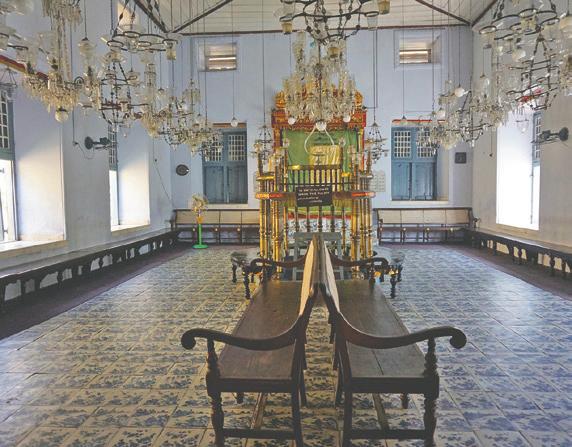
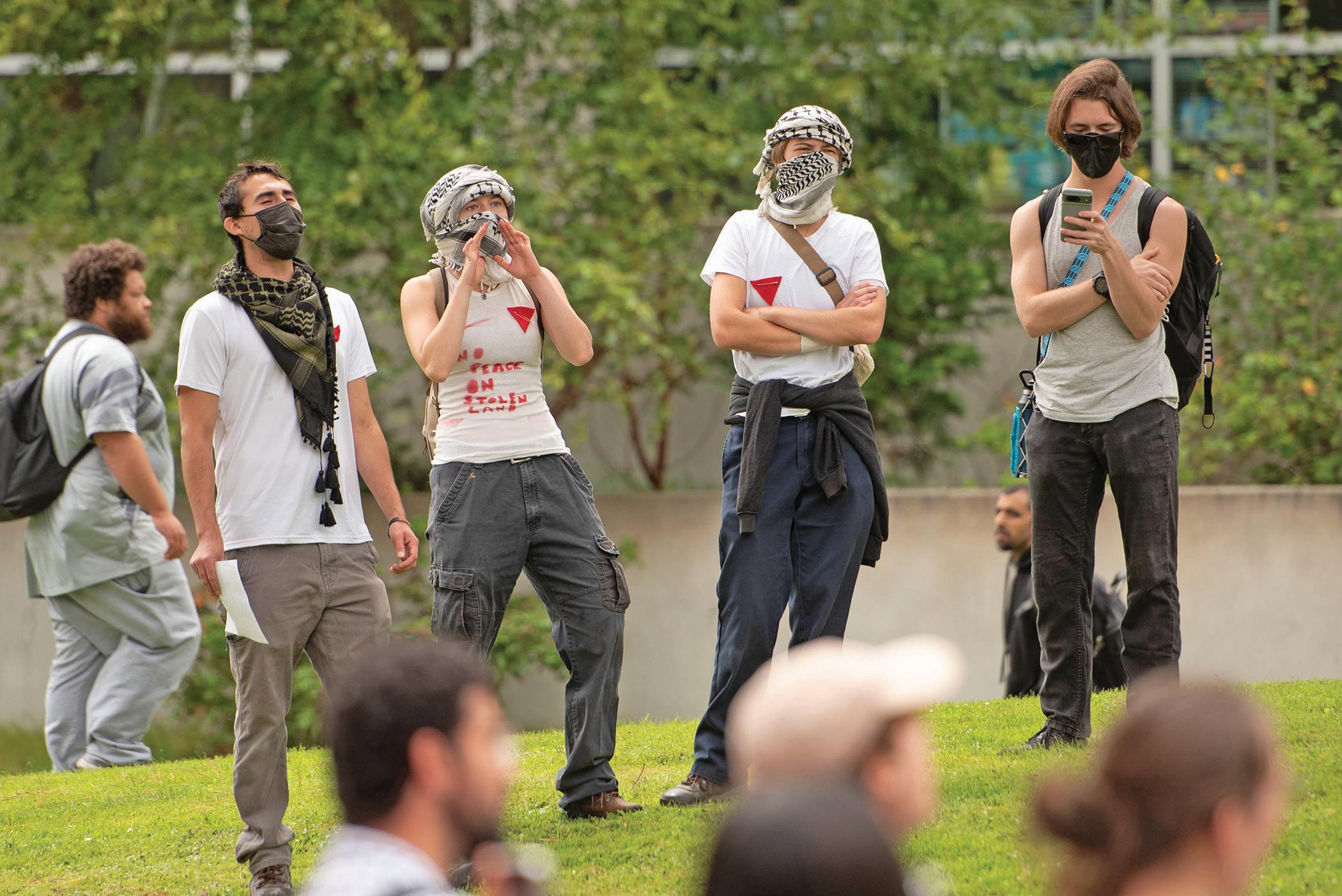
“non-citizens who support terrorist organizations,” offering Hamas and Hezbollah as examples.
The possibility of deportation is not theoretical. Mass deportation of illegal immigrants was one of Trump’s campaign promises and has kicked into high gear since his Jan. 20 inauguration. But his administration has also begun targeting visa holders.
Rabbis and cantors across the country who support the progressive nonprofit T’ruah: The Rabbinic Call for Human Rights collaborated on a response to Masters’ letter that reflects their outrage over his sweeping call to “expel” immigrants who threaten Jewish community safety.
“Like you, we have been alarmed at the rise in antisemitism over the past few years, including direct violence and threats against
“A lot of our members were really horrified that the CEO was using his platform this way to scapegoat immigrants.”
Shira Danan, T’ruah chief communications officer
platform this way to scapegoat immigrants.”
Twenty-one Jewish clergy from Northern California are among those who signed T’ruah’s letter: Rabbi Ruth Adar of San Leandro, Rabbi Susan Averbach of San Francisco, Rabbi Allan Berkowitz of Kensington, Rabbi Meredith Cahn of Petaluma, Rabbi David Cooper of Berkeley, Rabbi Amy Eilberg of Los Altos, Cantor Devorah FelderLevy of Los Gatos, Rabbi Dan Goldblatt of Danville, Rabbi Margaret Holub of Albion in Mendocino County, Rabbi Stuart Kelman of Berkeley, Rabbi Leah Kurtz of Petaluma, Rabbi Chayva Lehrman of San Francisco, Rabbi Deni Marshall of Elk Grove, Rabbi Jessica Marshall of Bishop, Rabbi Julie Saxe-Taller of Berkeley, Rabbi Judith Seid of Pleasanton, Rabbi Jeremy Sher of Oakland, Rabbi Jeremy Simons of Woodland, Rabbi Shifrah Tobacman of Emeryville, Rabbi Peretz Wolf-Prusan of Berkeley and Rabbi Bridget Wynne of Berkeley.
Rabbi Ruhi Sophia Motzkin Rubenstein of Eugene, Oregon, was key to drafting the letter, Danan told J. The letter reads in part:
Guest Speaker: Fred Rosenbaum Tour Leader: Ariel Goldstein
In partnership with New Lehrhaus
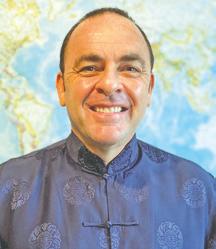
synagogues and other Jewish institutions,” states the Jan. 30 letter to Masters. “Existing U.S. criminal law is well-equipped to respond to the perpetrators of such acts. Neither subverting the rule of law nor amplifying lies that smear immigrants as disproportionately involved in criminal activities makes the Jewish community safer.”
Since 2004, SCN has served as a law enforcement liaison and security partner for Jewish institutions across North America.
“They are really relying on SCN to be an apolitical organization that protects Jewish communities,” Shira Danan, T’ruah’s chief communications officer, said of its 2,300 clergy members. “A lot of them were really horrified that the CEO was using his
“It is well-documented that the primary perpetrators of domestic terrorism in the United States, and particularly against Jews, are white American citizens. We do not deny that in select circumstances, immigrants have carried out and attempted terrorist attacks. But to frontload them as the primary threat to Jewish security is not only morally irresponsible but dangerous for the Jewish people and for American society. Furthermore, in all the examples you offer, the perpetrators or would-be perpetrators of horrific acts were arrested by law enforcement and charged in courts of law.”
It adds: “We need you to continue doing your crucial work to help keep Jewish communities safe. Perpetuating fear of immigrants and promoting the corrosion of the rule of law undermines this mission.”
“We can keep immigrants safe, and we can keep Jews safe. Those two things aren’t at odds,” Danan said. “We are always going to be calling out people in leadership positions that are trying to use fear of the other to make people feel safer.” n
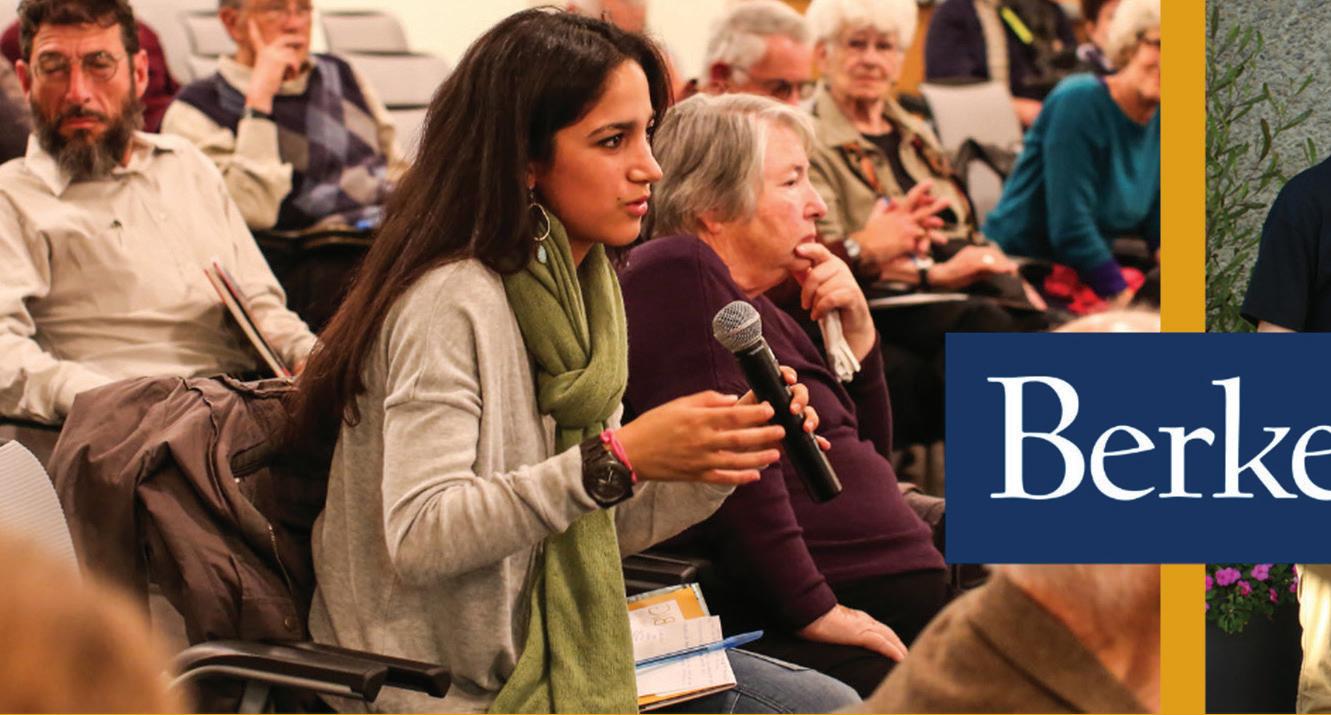

MONDAY, MARCH 3, 12:30–2 PM PT
297 GOLDBERG ROOM, BERKELEY LAW BUILDING
Professor Ronen Avraham is one of the leaders of the Fourth Quarter, the largest grassroots movement in Israel. This movement unites people across political, religious, and secular divides to address the polarization crisis that has brought the country to the brink of civil strife. Most notably, Professor Avraham leads a task force that has drafted a new plan for constitutional reform, supported by thousands of engaged individuals from all sectors of Israeli society. He will join us to discuss this bottom-up constitutional initiative.
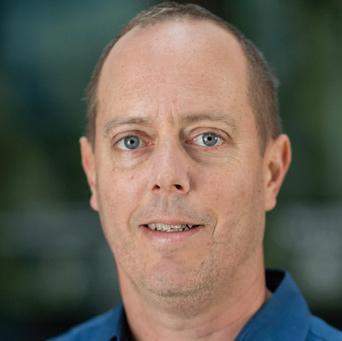
Ronen Avraham, Director of the Cegla Center for Interdisciplinary Research of the Law, Editor-in-Chief of Theoretical Inquiries in Law, Tel Aviv University, Buchmann Faculty of Law
Adi Ayal (MODERATOR), Spring 2025 Helen Diller Institute Visiting Professor; Professor at Bar Ilan University Faculty of Law
Beyond Suspicion: The Moral Clash between Rootedness and Progressive Liberalism
TUESDAY, MARCH 4, 12:30–2 PM PT
297 GOLDBERG ROOM, BERKELEY LAW BUILDING
In his new book Beyond Suspicion, Professor Nissim Mizrachi examines the paradoxical phenomenon of support for right-wing political parties among Israeli Mizrahim — descendants of Jews from Middle Eastern and North African communities. He also examines the assumptions that have led scholars, activists, and left-wing politicians to view Mizrahim as acting against their own interests. By framing this discussion as a tension between rootedness and progressive liberalism, he sheds new light on how communities in Israel (and elsewhere) create meaning and establish collectivities in unexpected ways. He will be in conversation with Professor Ann Swidler of UC Berkeley. Cosponsored with the Center for Right Wing Studies.
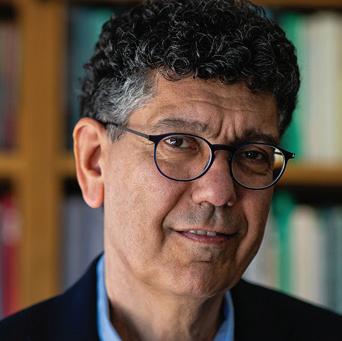
Nissim Mizrachi, Professor, Former Chair, Department of Sociology and Anthropology, Tel Aviv University
Ann Swidler (MODERATOR), Professor of the Graduate School, Department of Sociology, UC Berkeley
*These events are open to UC Berkeley students, faculty, staff, and Helen Diller Institute donors. Those who wish to attend may contact Rebecca Golbert at rlgolbert@law.berkeley.edu.
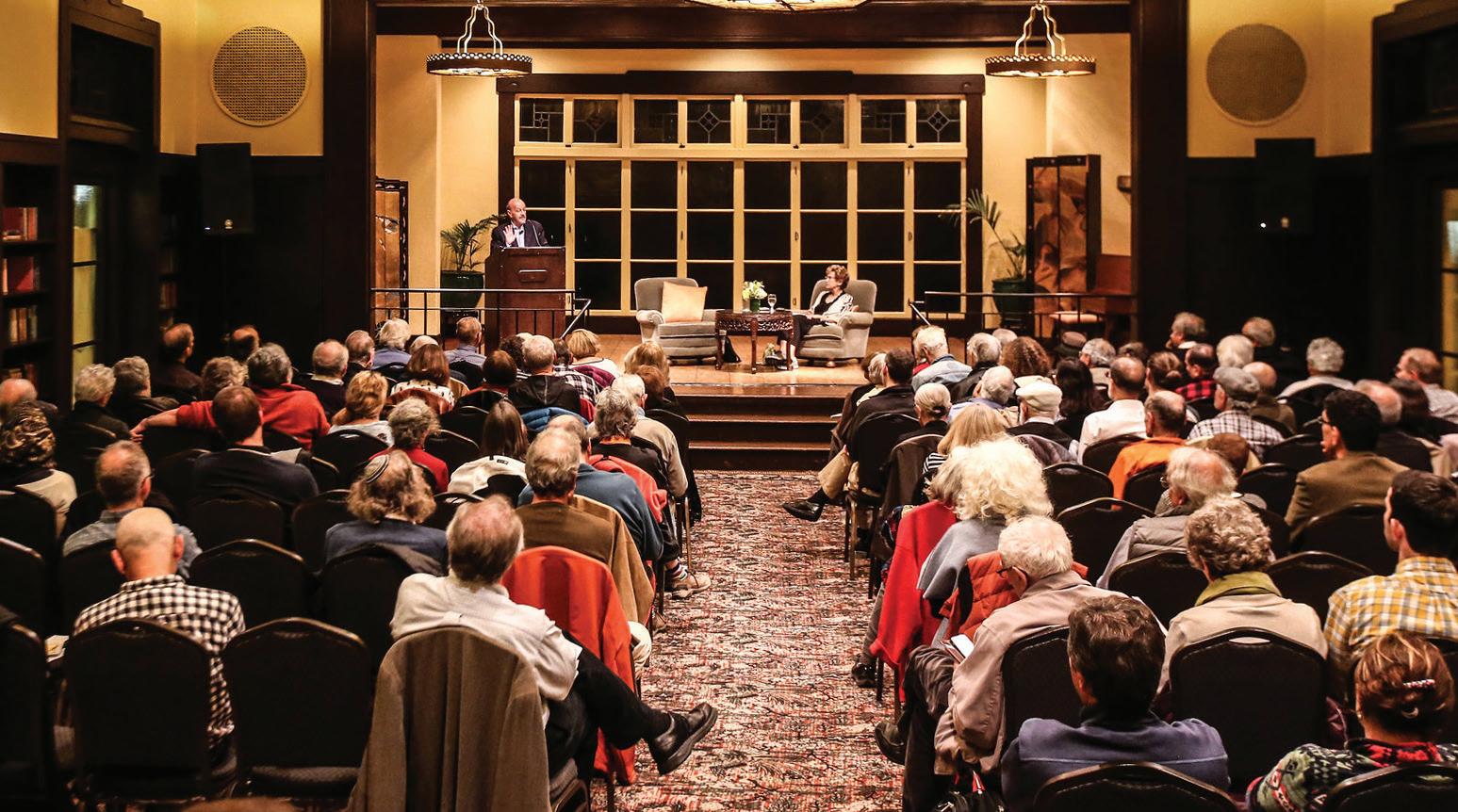

16TH ANNUAL ROBBINS COLLECTION LECTURE IN JEWISH LAW, THOUGHT, AND IDENTITY AT THE HELEN DILLER INSTITUTE
TUESDAY, FEBRUARY 25, 6–7:30 PM PT ROOM 105, BERKELEY LAW BUILDING
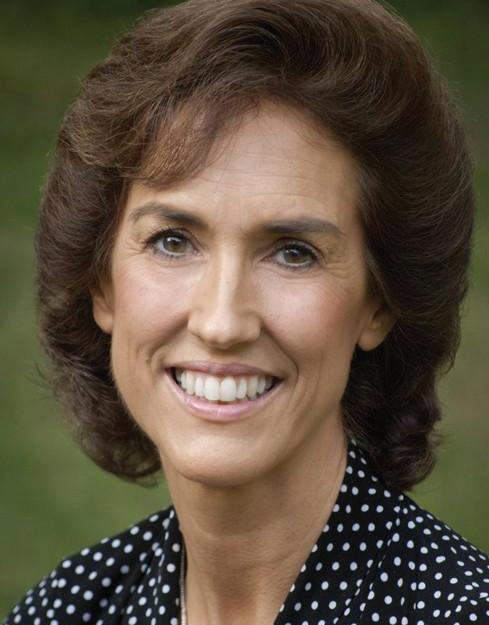
Christine Hayes, Sterling Professor Emeritus of Religious Studies, Yale University
In late antiquity, some Jews began to think of the Torah as a natural law — absolute, immutable, and transcending historical time. Other ancient Jews, particularly the Talmudic rabbis, resisted this new way of thinking and elaborated a conception of divine law as a contingent and dynamic phenomenon unfolding in historical time. This lecture applies insights from performance studies, as well as theories of humor and play, to illuminate the rabbis’ countercultural construction of a historically embedded divine law.
This distinguished annual lecture is a partnership between the Helen Diller Institute and the Robbins Collection and Research Center at Berkeley Law. A light reception will be provided to all registrants.

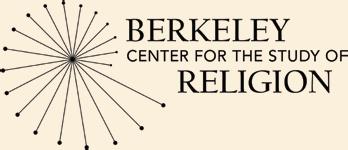
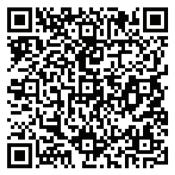
NIVA ASHKENAZI | J. STAFF
San Francisco firefighter Danielle Rosenthal and fellow crewmates on an emergency strike team spent more than two weeks helping local firefighters subdue the devastating wildfires in Los Angeles.
Rosenthal, 32, has worked for the San Francisco Fire Department for 10 years; she served on strike teams in 2020 during fires in Napa Valley and the Fresno area Creek Fire. She recently joined the Ner Tamid Society, a new group formed for SFFD’s Jewish personnel.
She spoke with J. about her experiences while still in Southern California — nearly two weeks into her deployment in Pacific Palisades and a few days before returning home on Jan. 23. e interview has been edited for length and clarity.
J.: How did you come to join the strike team?
DANIELLE ROSENTHAL: e fire started on Jan. 7 and it sounded like something that
could potentially need help. So we signed up on our online accounts for the department and made ourselves available for deployment. I got a phone call from my strike team o cer late Tuesday night, and we le first thing Wednesday morning on Jan. 8. We drove the engines down. We got there in the early a ernoon, and then we were put to work right away. ere are five engines and one strike team leader buggy [command vehicle]. ere are 22 of us down here.
What was it like driving through Los Angeles that day? Was there a palpable feeling of chaos?
Somewhat. I’m from down here, from the San Fernando Valley originally. And I grew up going to these beaches with my family, specifically with my mom. I moved up to San Francisco for a job, and that was in 2015. So my whole life, until that point, I was in the area. So that was kind of crazy. I never thought I’d see all the establishments I grew




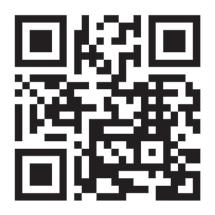
up going to for the first 23 years of my life burnt to the ground. So that was surreal.
What specific duties do you have on the team?
We rotate driving the engine because we’re all qualified to drive it. We all just rotate that duty so no one’s overly exhausted.

When we’re on the fire line, we’re there 24 hours at a time. So we’re awake for that amount of time, just ready to go. And we are tactically patrolling that whole time, staying vigilant, making sure that we’re ahead of everything, so that nothing becomes a bigger problem.
Have you talked to local residents?
We’ve met a couple residents — most of the area has been blocked o to public tra c due to safety concerns. ere are a lot of buildings that are unsafe, a lot are burnt down. And that causes safety concerns.
We have helped a few people search through rubble for valuables. We had a family whose grandmother had a lot of family heirlooms, and so we were looking through what was le , but the incident chain of command eventually told us to stop. ey have a certain team assigned to that.
If we come across people who need that sort of assistance, we can stay with them, but then we call this team who will come and help them look through their stu , just to ensure that there are no looters.
ere’s a huge law enforcement presence, and there were definitely people who shouldn’t be there. We saw multiple arrests being made for people impersonating firefighters, wearing firefighter equipment, who were trying to make it seem like they belong there when they didn’t.
In the two weeks that you’ve been deployed with the team in Pacific Palisades, what’s been the most rewarding experience?
I think the first day was the most rewarding for us. Because resources were not as available at that point, we were fighting a structure fire in a family home. It was just us alone.
We did our absolute best, and we were pulled o of it at a certain point and reassigned to a di erent location. But before we le , we went through the houses as quickly as we could and took any valuables.
ere were some pictures, some art that it was clear a child made for a parent, or a couple of boxes that said “memories” or “wedding.”
We took those out, along with some jewelry, and then put them in their family car and parked it down the street, as much out of danger as we could, and then locked it up and le a note saying: We did what we could.
ere was a lot of damage to their home, but at least they got some irreplaceable things saved.
ere were a couple of synagogues and Chabads in the area that had a li le bit of damage but were mainly saved, so that was exciting for me. It was nice to see that those establishments didn’t burn to the ground.
[For example] at the Chabad center of Pacific Palisades, there wasn’t a ton of damage to the building itself, compared to the rest of the Palisades — some damage but not completely destroyed.
We consider damage like this, just to stu or a small part of the building, as minor, given we saw thousands of buildings and homes actually burnt to the ground. ■
EMMA GOSS | J. STAFF
Two unapologetically pro-Israel billboards will try to catch your eye along Highway 101 over the next month.
“Call me a Zionist. It only makes me prouder,” declares one billboard along the highway near Cal Poly Humboldt in Arcata.
“It’s about pride. Having Jewish pride,” said Tamar Krigel, 52, an Israeli-born resident of Arcata who helped design the billboards.
Humboldt County, which has one listed synagogue and a Chabad center, has dealt with extreme anti-Israel activism over the past year. At Cal Poly Humboldt (formerly Humboldt State) last spring, anti-Israel protesters supporting “intifada” clashed with riot police, occupied buildings and sent the campus into lockdown.
e pro-Israel billboard is one of two coming to Northern California this month. e second one is set to go up on Feb. 10, also along Highway 101 — but 300 miles south, in Redwood City. It will display the message, “America and Israel: Fighting Terrorism Together.” e billboard will show images of an Israeli female soldier and an American male soldier, both in uniform.
e two billboards are the continuation of a grassroots ad campaign started by David Porush of San Mateo.
Porush initially worked with JewBelong to crowdfund enough money last year to replace a provocative anti-Israel billboard along Highway 101 in San Carlos. at billboard
read, “Stopping genocide is not anti-semitic.”
e crowdfunding campaign brought in $41,500, enough to pay for one month of billboard advertising at that location in late 2024, Porush told J.
To Porush’s delight, the JewBelong billboard stayed up an
as a “mass-media campaign for Gaza.”
“Israel is commi ing genocide in Gaza,” the billboard stated in quotes, citing Amnesty International as the source. Underneath the words, the billboard featured the image of a child holding a doll.

extra month for free, displaying the message: “Let’s be clear: Hezbollah and Hamas are your problem too.”
Porush considered the JewBelong billboard a win.
“I think the success was the symbolism of it. It wasn’t just the message. It was the fact that — wow — there’s a pro-Israeli voice being shown in such a prominent place,” Porush said.
When the JewBelong billboard was removed in late December, it was replaced by another anti-Israel billboard paid for by the Unity Lab, which describes itself on its website
Last year’s JewBelong campaign had roughly $19,500 le over, enough for Porush to pay for additional billboards.
To exercise more creative control over the next round of billboards, Porush launched his own organization called Code Blue and White, and JewBelong agreed to transfer the funds. (Code Blue and White’s nonprofit status is pending with the Internal Revenue Service.)
Code Blue and White worked with the Anti-Defamation League’s Center on Antisemitism Research to cra the language for the San Mateo County billboard.
“We survey Americans on messaging about antisemitism to determine the best messages to use to deter antisemitism and gain more allies for the Jewish community,” Marc Levine, director of ADL’s Central Pacific Region, told J. e billboard’s imagery, featuring American and Israeli soldiers, came from Porush, who described it as “patriotic.” Porush said he hopes to install more billboards in the future. ■






RYAN TOROK | CORRESPONDENT
A California study commissioned to examine Holocaust and genocide education in K-12 public schools found little consistency in following the state’s standards.
Just 26% of the state’s local education agencies (LEAs) — school districts and publicly funded charter schools — have formal education programs about the topic in place.
This was one of several key findings in “Holocaust and Genocide Education in California: A Study of Statewide Context and Local Implementation,” a comprehensive report released on Jan. 27, coinciding with International Holocaust Remembrance Day.
Holocaust education in public schools is perceived as a way of combating antisemitism, which has become a more pressing issue for the Jewish community following the Oct. 7, 2023, Hamas massacre and a global spike in anti-Jewish hatred. From individual acts that target Jewish students to a state-sponsored ethnic studies curriculum that initially excluded Jews, denigrated Israel and downplayed antisemitism, the state’s Jewish community leaders have increasingly turned their attention to what’s happening inside the classroom.
One of these leaders is Anita Friedman, executive director of the S.F.-based Jewish Family and Children’s Services and its Holocaust Center. Friedman described the findings in the report as an important tool for charting a path forward.
“We believe, and the leadership in the state believe, that
education of children is the only way to stop hatred and discrimination against Jews,” Friedman told J. in a phone interview. “The real war about antisemitism is happening in K-12 education.”
WestEd, a research, development and service agency, authored the nearly 200-page report, in cooperation with the
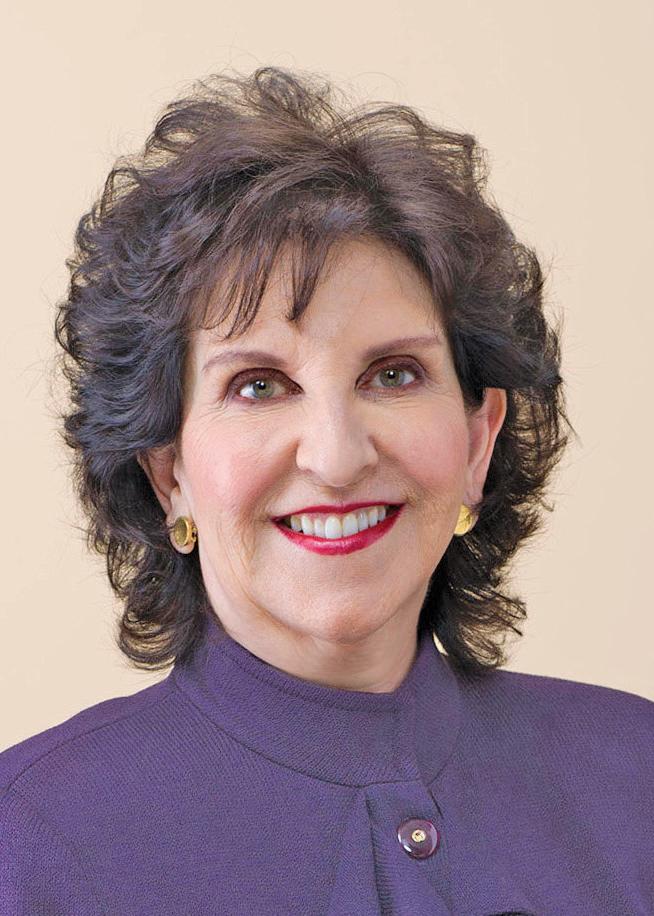
“The
Governor’s Council on Holocaust and Genocide Education, a group of experts in the field convened by Gov. Gavin Newsom. Friedman co-chairs the council, alongside Attorney General Rob Bonta, State Superintendent of Public Instruction Tony Thurmond and Sen. Henry Stern (D-Los Angeles).
Since 1985, California has required public schools to teach
about the Holocaust and genocide. But significant barriers have prevented Holocaust curriculum from being taught on a widespread and systematic basis, according to the report.
The survey sought to examine a representative sample of California public schools, including in urban, suburban and rural areas, ranging in size, while creating an inventory of Holocaust education programs throughout the state.
Teachers in rural and low-income areas often face the greatest hurdles in accessing Holocaust education resources, the report found, due to a lack of funding and of “professional learning opportunities,” among other factors.
Success in bringing Holocaust and genocide education into the classroom, the study said, is “often dependent on individual educator initiative.”
“The findings show that while some districts have developed robust programs, the overall landscape remains fragmented,” the report stated.
The survey included 559 respondents, representing 29% of the 1,914 local agencies in the state. Of the 413 responses submitted by school districts and the 146 submitted by charter schools, only 26% — or 143 respondents — reported having a Holocaust and genocide education program in place.
In the Bay Area, 25% of the local agencies that responded to the survey indicated that they offer Holocaust and genocide education.

DAN PINE | CORRESPONDENT
Tucked away in David Habib’s home is a box packed with thank-you notes he’s received over the years. The notes, friends and family said, are a testament to the impact Habib made on the lives of countless Jewish families as the managing funeral director for Sinai Memorial Chapel’s Peninsula office.
Gregarious, charming and a friend to many, David “Dudu” Habib succumbed to cancer on Jan. 14. He was 46.
“It’s a huge loss for us,” said Sinai Memorial Chapel executive director Liz Orlin. “Our work is about relationships, and he had so many. He had so many friends and was so invested in taking care of his community.”
Added his wife, Shoshi Habib, “He handled everything with care. He gave everyone VIP service at the saddest moment of their life.”
David Habib was born in Netanya, Israel, and grew up in nearby Herzliya until he was 8. His father, a tech sales executive, moved the family to Brussels for several years, where Habib mastered French. From there the family relocated to Palo Alto, where Habib attended Gunn High School.
After graduating, and by then an American citizen, Habib joined the Israel Defense Forces as a lone soldier, serving in a tank division in Lebanon, where he and his crew were wounded by a roadside bomb. After three years of military service, he returned
kindness to the role.
“He was so passionate about the work we do,” Orlin said. “He had such amazing ideas for how we could do better and reach more people. He saw Sinai Memorial as a vital part of the fabric of this community, so he pushed us. There was almost an impatience for us to be all that we could be.”
He initially struggled with the strong emotions he felt serving grieving families, Shoshi Habib said, but over the course of nearly 20 years at Sinai Memorial Chapel, and as manager of Eternal Home Cemetery in Colma, he mastered the art of compassion.
“It took him some time to adjust,” his wife said. “It was difficult at first. He would tell me every day how he felt. He cared for the families so much, but he focused on supporting them and the community. He learned a lot. He went to classes. He gave classes in synagogues. He was a very good speaker and writer.”
Added Orlin, “He was very eager to see us do better at marketing ourselves. He was such a champion for how we could get out from behind our walls and be out there more. It was his personal mission to make sure Sinai could do everything to meet the Jewish value of burying people quickly.”
At home, he was a consummate husband and father. The family visited Israel often, they were huge Golden State Warriors fans, and everywhere the couple went in the Bay Area, Shoshi Habib was amazed how many friends her husband had amassed.
“If you met him you would fall in love with him. There’s something in him that connects with people. It’s a gift.”
Shoshi Habib
to California to earn an MBA from Notre Dame De Namur University.
During his army service, Habib befriended a young female soldier named Shoshi Naymann. When he learned years later she had come to Los Angeles for an extended stay, he called her often, pleading with her to visit him in the Bay Area. According to Shoshi, Habib referred to her among friends as his “future wife.”
He wasn’t wrong. The couple married in 2008, settling in San Mateo. Their son, Edo, now in high school, was born the following year. By then, Habib had launched his career at Sinai Memorial. It turned out to be a job for which he was well suited, bringing his characteristic professionalism and
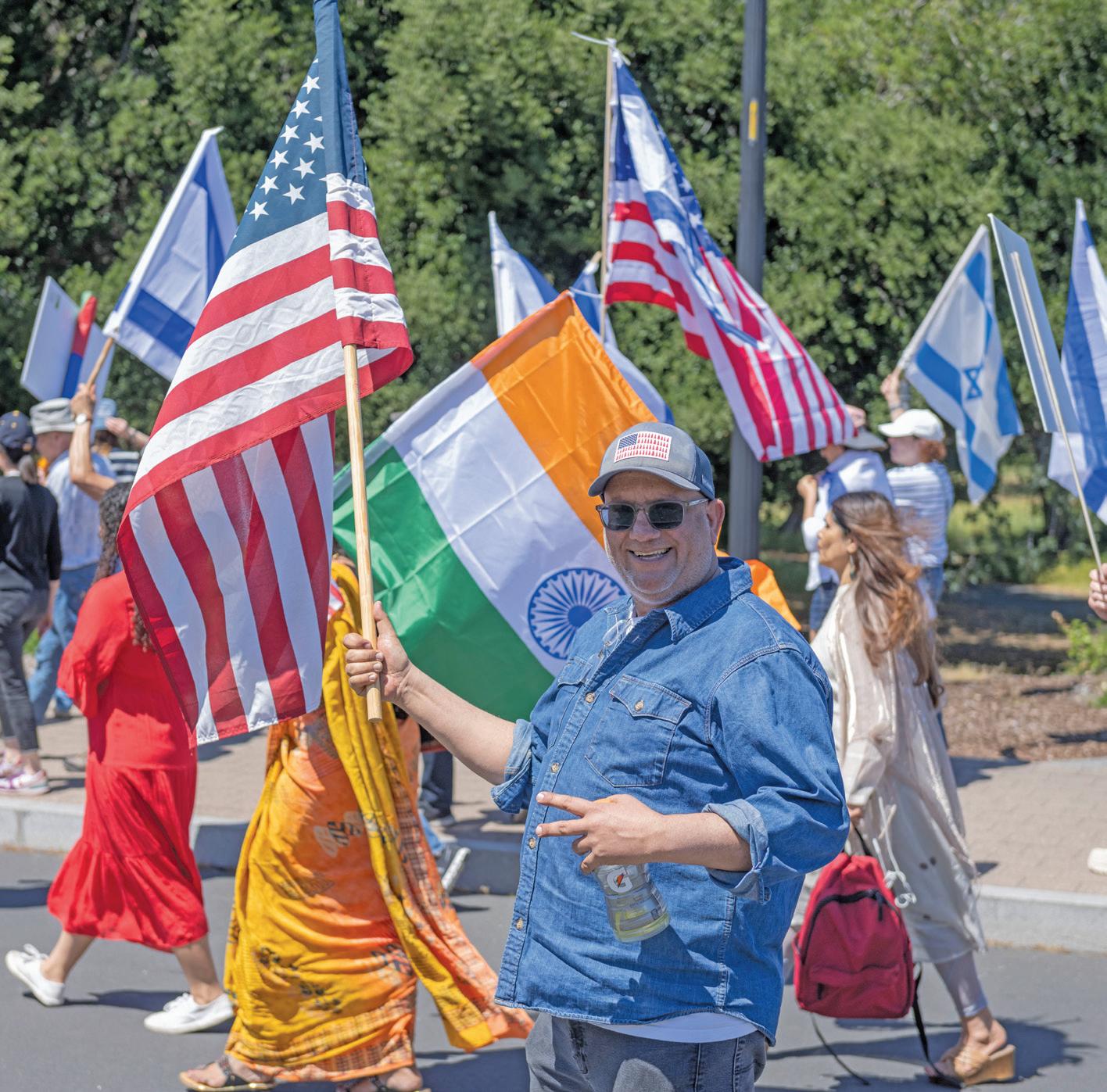
“He was a charmer,” she said. “If you met him you would fall in love with him. There’s something in him that connects with people. It’s a gift. He was able to connect with all the synagogues, rabbis, and the different Jewish organizations. They loved him, and he loved them.”
Even when diagnosed with cancer several years ago, Habib defied the odds and kept working as long as he could. And when he died, he benefited from the venerable Jewish tradition he championed so strongly: He was buried in less than 24 hours.
He is survived by his wife, Shoshi, and his son, Edo, of San Mateo, parents Isaac and Simona Habib of Palo Alto, and brothers Roni Habib and Nathan Habib. A GoFundMe account, tinyurl.com/gofundme-habib, has been set up to support Shoshi and Edo Habib. n





NIVA ASHKENAZI | J. STAFF
San Francisco Hillel has announced a promised gift of $2.5 million, meant to create momentum and set a deadline for a campaign to raise $8.2 million for a major renovation and expansion of its building.
SF Hillel occupies a former residential home on 33 Banbury Drive near San Francisco State University in the southwest section of the city. The Hillel has served S.F. State students since the 1960s but a decade ago expanded its outreach to all college campuses in the city.
The two-story building desperately needs a makeover, SF Hillel executive director Roger Feigelson said in a late December announcement of the $2.5 million gift from San Francisco philanthropist Nancy Grand. The home, built in 1949, has served as a Hillel house since 1982.
SF Hillel began raising money in April 2023 for the renovation project, which would expand the building to four stories and double its size to 3,000 square feet. The renovation will also fulfill Americans with Disabilities Act accessibility requirements and upgrade the building’s security system.
SF Hillel is now $2.9 million away from reaching its $8.2 million goal by a June 30 deadline. Feigelson told J. he wants the building “to show that the community has pride in Hillel and cares about our Jewish students. We want the site to reflect that we take this seriously, so that we’re not just crammed into an old home. So it’s really kind of a statement of pride.”
SF Hillel served about 1,300 students last school year, Feigelson said, including 550 who regularly come to events.
The capital campaign has received several other large gifts, though with some conditions. The endowment trust of late
philanthropist and Chia Pet mogul Joseph Pedott donated $500,000 contingent on SF Hillel meeting half of its goal, which it achieved. Another $400,000 donation came from the Herbst Foundation.
Grand’s gift is also contingent, meaning SF Hillel will only receive the funds if it succeeds in raising the remaining $2.9 million toward its total goal.
SF Hillel was in the news in early December after someone sprayed antisemitic graffiti on the building and broke a window in an apparent attempted break-in. The hate incident backfired, though. Afterward, Hillel received a $250,000 donation for the capital campaign from Chris Larsen, co-founder and former CEO of blockchain company Ripple.
For Grand, the inspiration to donate came from her late husband. She told J. that Stephen Grand, who was a real estate developer and philanthropist, aspired to support a major update of SF Hillel shortly before his death in March 2021. After hosting a fundraising event for the capital campaign at her home, Nancy Grand decided to make the donation in his memory.
“He would be really proud to know that this is happening. I’m sorry he didn’t get to see it,” said Grand, who also recognized the sense of urgency that the vandalism and attempted break-in added to the campaign. “Hopefully other people will realize how important it is and join in.”
Feigelson said that security for the renovated site is an “absolute must” and is built into the construction plan, including constructing an additional entryway.
Feigelson plans to seek additional funds to reinforce safety measures from the California nonprofit security grant program or from Hillel International. n

LESLIE KATZ | CORRESPONDENT
If you attend services at Santa Rosa’s Congregation Beth Ami on any given Saturday, there’s a good chance you’ll spot Susanne Batzdorff, Evelyn Gurevitch and Edith Newman sitting in the pews.
Calling them synagogue regulars doesn’t do the trio justice. All three women are more than 100 years old and have long been pillars of the Beth Ami community, two of them for at least seven decades.
“It’s our second home,” said Newman, the baby of the bunch at 101.
Newman’s two longtime friends nod in agreement as they sit together in late January on the bright blue couch in her Santa Rosa living room, with an original Marc Chagall on the wall behind them.
“It’s part of my being,” Batzdorff, who is 103, said of the synagogue. “I go to services as regularly as possible.”
The three centenarians are deeply woven into the fabric of the Beth Ami community. Together, Newman and Gurevitch helped raise money for the building on Mayette Avenue that was dedicated in 1963, after the congregation met for years in a nearby church.
Batzdorff — a retired public librarian who fled Nazi Germany in 1939 with her parents and brother — started the synagogue library and named it the Celia Gurevitch Jewish Community Library in honor of Evelyn Gurevitch’s mother-in-law, an avid reader. Batzdorff, a playwright, author and poet, also served as its head librarian for 20 years.
Their kids and grandkids went to religious school and celebrated bar and bat mitzvahs at the Conservative synagogue. All three say Kaddish there for their late husbands.
“I live alone, so temple, for me, is people, and I need people,” said Newman, who, like Batzdorff, escaped Nazi Germany as a teen and made it to the U.S., settling in New Jersey with her parents.
Until recently when Newman hurt her left wrist in a fall, she still drove herself to Beth Ami for services. Gurevitch plans to resume driving herself to services and weekly exercise classes at the synagogue once her car is back from the mechanic.
The exercise sessions are just one way that Gurevitch, 102, keeps active — something that she and the other two women say they consider essential to living a long and fulfilling life. Gurevitch also meets monthly with a group of fellow retirees, enjoys the

symphony, plays sudoku and always has a jigsaw puzzle in the works. She’s currently taking part in a study on “super agers,” the term used to describe seniors with the mental or physical capacity of their far younger counterparts.
Gurevitch grew up in Boyle Heights, a Los Angeles neighborhood that was once home to a large Jewish population, before moving to Santa Rosa in 1944 with her husband, Leo, to start a chicken farm.
At the height of operations, she said, “we had 10,000 chickens.” Later, after both kids left home, she worked as an attendance clerk for city schools, a position she held for 25 years.
Newman and her husband, Herbert, also settled on a Santa Rosa chicken farm, and Newman later started a home decorating venture with friends. Both she and Gurevitch laugh heartily when asked whether they ever miss being in the bird business. The answer? A resounding no.
As the three women warmly and enthusiastically share their wide-ranging impressions — of chicken farming, child raising and community building — Judaism repeatedly emerges as a unifying thread. They talk about the thrill of witnessing Israel’s founding, the horror of today’s rising global antisemitism and how their Jewish identity shapes them.
“It’s really a lifestyle,” said Newman, sitting across from a wall adorned with artwork of learned Jewish figures. “I was always proud to be Jewish. It’s in me.”
At the center of that lifestyle is Beth Ami. But as much as the women gain from the synagogue, the synagogue gains from them.
“They inspire all the members to be better
people and better leaders,” said Rabbi Ron Koas. “I am a better rabbi because of them.”
Koas said the women reflect the history and spirit of Beth Ami, which dates back to the 1940s. Both Newman and Gurevitch are founding members. Batzdorff joined after she and her husband, Alfred, moved to Santa Rosa in 1982 to be near family members.
“We have lots of friends,” Gurevitch said. “We don’t see them for weeks on end. But boy, if we just call them and say ‘we need you,’ they’re there.”
Time has, of course, taken many longtime Beth Ami congregants, but the three
“I live alone, so temple, for me, is people, and I need people.”
Edith Newman
women still have each other. Their bond spans decades, “through good and through bad,” Newman reflects — from the births of grandkids to milestone anniversaries to the deaths of spouses and other beloved family members. They knew each other’s parents and now share stories of great-grandchildren and great-great grandchildren.
If one of them doesn’t show up at synagogue, another will check in to see if she’s OK. When Gurevitch can’t attend services in person, she participates online, but she hasn’t succeeded in getting Newman to do the same, despite her best efforts.
“We can’t convince her to be on Zoom, or on FaceTime,” said Gurevitch, who videochats weekly with another Beth Ami friend who now lives in El Cerrito.
Newman chuckles at her friend’s ribbing, and Batzdorff joins in. The trio’s easy laughter, the way they seamlessly fill in details of each other’s histories and the instinctive way they reach for each other’s hands all reflect how inextricably their lives are linked. n
Ready to Meet Your Handsome Prince or Beautiful Princess?
Are you 70 to 80+ years young?
Are you a senior without a partner?
Finding the golden years not so golden?
We are starting a group for singles in the Bay Area who would like to meet someone. No fee. Just fun.
Our first event is coming soon!
Contact Jerilyn.paley@gmail.com or Nancycherniss@aol.com
Looking forward to meeting you!



ACT TWO JANET SILVER GHENT

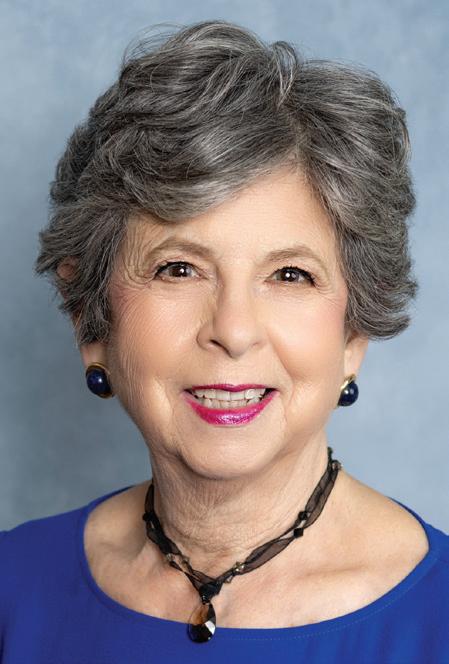
When I joined a Unitarian Universalist church in 1975 in an e ort to find a demilitarized zone for my children and non-Jewish husband, my mother proclaimed, “Hitler would have considered you Jewish.”
Her statement appalled me.
So Hitler was the reason I was Jewish? Why would I lend him that power? My roots, which I began to nourish a er a midlife divorce, grew deeper for other reasons.
In the secular family of my childhood, being Jewish was not about pride. It was largely about antisemitism and the need to create a comfort zone within a hostile world. I was never taught that Judaism had a positive message. While I was given a solid moral foundation, I was not taught where that foundation came from. My mother’s version of the Ten Commandments included honoring parents, but not the Sabbath.
Like many assimilated Jews of the 20th century, my parents and grandparents sought to separate themselves from the “too-Jewish” immigrants who became targets of hate in America. But my family never conveyed why it was good to be Jewish, and I received no Jewish education.
Yet my mother, who had li le use for religion, wanted me to join a Jewish student group when I went away to Oberlin College, where Jews were a minority in the 1960s. Why? It would increase my likelihood of finding a Jewish husband. It didn’t work. In 1965 at age 22, I married a non-Jew who wasn’t open to Judaism.
My father never made a secret of his distaste for ritual and synagogues. Two decades later, when he witnessed me lighting Shabbat candles, he laughed and told my daughter, “Janet didn’t learn any of this from us.” Later, when I began observing Passover, he sneaked bagels into my house. Yet he was ecstatic at my adult bat mitzvah in 1998 and when I married a Jewish man in 2000.
ese days, I enjoy rituals that were spurned by my family. ese are what brought me back to Judaism — not Hitler, antisemitism or even Israel.
They never conveyed why it was good to be Jewish, and I received no Jewish education.
Before my first visit to Israel in 1998, fellow sta ers at the Jewish Bulletin, J.’s forerunner, told me how wonderful it would feel to visit a country where Jews are the majority. But when I stepped into the Old City of Jerusalem, I was still a minority amid cowled monks, ka yehed Muslims and black-ha ed Jews.
As a liberal American Jew, the Jewish homeland was not where I felt at home.
While praying with Women of the Wall on Shabbat, I was told to huddle and to mu e my voice. e boisterous, dancing men on the other side of the divider had no such restrictions. I couldn’t stand the segregation. It made me feel unwanted and alienated. Weeks later, I celebrated my adult bat mitzvah at my Alameda synagogue where I could sing my heart out.
Israel may be a source of reconnection to young adult Jews, who are eligible for free trips through Birthright Israel. But my path of return took place in the Bay Area. During a visit to a JCC, I discovered the Jewish Bulletin and took advantage of a free six-week subscription, which connected me to alternative worship services, Hebrew classes and singles weekends. At the Bay Area Jewish Singles Hiking Club, I experienced Havdalah for the first time during a weekend at Yosemite. I also met rabbis who welcomed me back.
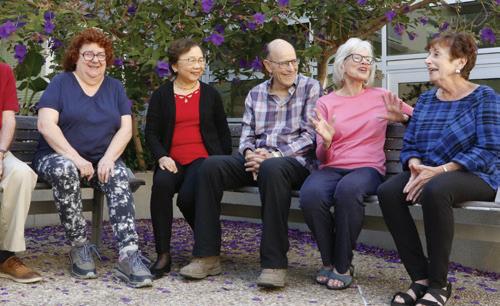
ere are many paths to Jewish reconnection. For some, synagogues may be a first step. But there are other paths, including JCCs, adult education and cultural activities.
Unfortunately, arts and educational organizations barely had time to start recovering from the Covid-19 pandemic before the Oct. 7, 2023, Hamas massacre refocused the Jewish community on Israel and antisemitism. e Contemporary Jewish Museum in San Francisco has temporarily shu ered. e Jewish Coalition for Literacy has folded, and donations have dropped to other local Jewish nonprofits with missions unrelated to supporting Israel or combating Jewish hate.











Jewish survival is critical, and right now, Jews face multiple crises. But to grow our community, we must do more than advocate for the Jewish state and against antisemitism. We must bring Jews and others into the Jewish fold by showcasing what’s great about Judaism. at’s what worked for me. ■
THE MATZO CHRONICLES KAREN GALATZ
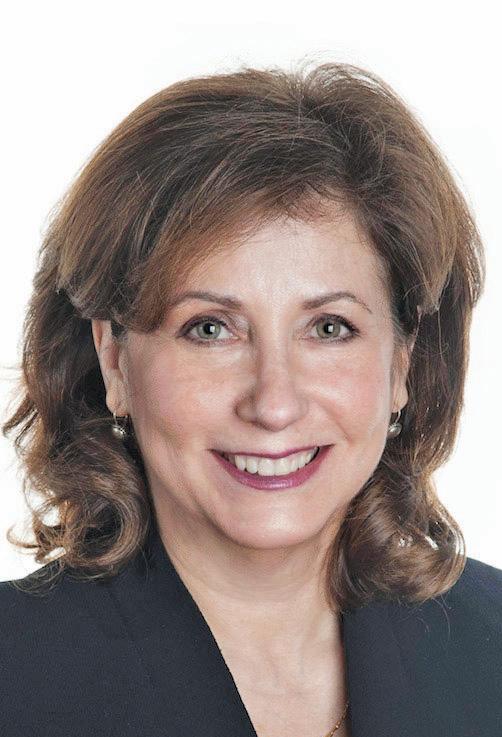
humor blog Muddling Through Middle Age. Karen can be reached at karen@muddling.me
e holidays are long over. I’ve scraped the menorah of its drippy wax. I’ve washed and ironed the hand-embroidered tablecloth. Only the extra weight and the credit card bills remain as evidence of the festivities.
I was yearning for inspiration to keep me moving forward in the new year — amid the unse ling political landscape, the troubled state of the world and especially as we marked International Holocaust Remembrance Day on Jan. 27, the 80th anniversary of the liberation of Auschwitz.
I needed a hero and, happily, I found one. His name: John Pehle.
A son of German immigrants, Pehle was born in Minnesota in 1909. Shortly a er graduating from Yale Law School, he started working at the U.S. Treasury Department.
At Treasury, he co-authored “ e Acquiescence of is Government in the Murder of the Jews,” a 1944 report on the U.S. government’s failure to rescue Europe’s Jewry. Perhaps even worse, the report detailed the government’s e orts to prevent and obstruct such rescue a empts and to block information about Jews from reaching the American public. e report title alone was so damning that it was so ened to “A Personal Report to the President.”
On Jan. 13, 1944, Pehle and Treasury Secretary Robert Morgenthau presented that report to President Franklin Delano Roosevelt. ey also handed him a dra executive order to create a new government agency tasked with the “immediate rescue and relief of the Jews of Europe and other victims of enemy persecution.” One week later that order was signed and created the War Refugee Board. Pehle was its first director. He was 34 years old.
He was interviewed shortly a er his appointment.
“I am aware that we face perhaps the greatest humanitarian task of all time. I am aware of the urgency of that task. We must thwart the Nazi program swi ly and decisively,” Pehle said. “We have no blueprints to guide us. We have no precedents to show us the way. ere are no panaceas, no pat formulas to meet these problems.”
To do the job, Pehle and his self-described sta of “red-tape cu ers” negotiated interagency conflicts, streamlined humanitarian aid to Europe, released detailed reports of the horrors in the Auschwitz and Birkenau death camps, financed evacuation e orts, established refugee camps, issued visas, created false ID papers and reportedly even laundered money and paid bribes to Nazi sympathizers via covert agents. In short, he and his sta did everything they could to save lives.
And save lives they did. By the War Refugee Board’s own estimates, the organization saved tens of thousands of European Jews who otherwise would have died at the hands of the Nazis in the last two years of the Second World War. According to some historians, the number of lives saved exceeded 200,000.
“I am aware that we face perhaps the greatest humanitarian task of all time.”
John
Pehle
Yet, Pehle — a man whose whistleblowing and leadership played a central role in every life saved — was modest in the extreme.
“What we did was li le enough. It was late. Looking back at the board, the resources available were too small to deal e ectively with the problem,” he later said. “But we were able to change the policy of the United States, and we were able to help the private agencies, and we were able to change the moral position of the United States in this area.”
A er the war, Pehle entered private practice as a tax a orney. He died of cancer in 1999. In 2006, Pehle was posthumously awarded a Congressional Gold Medal “in recognition of his contributions to the nation in helping rescue Jews and other minorities from the Holocaust during World War II.” You can read more about Pehle in Rebecca Erbelding’s “Rescue Board: e Untold Story of America’s E orts to Save the Jews of Europe.” Her book, published in 2018, won several accolades, including a National Jewish Book Award. Her research also played a major role in Ken Burns’ 2022 docuseries “ e U.S. and the Holocaust.”
I’ve been thinking a lot about Pehle these days as the new administration restricts immigration and begins mass deportations. I wonder where someone of Pehle’s courage and conviction might fit in.
His example gives me the courage to face the challenges ahead, large and small. ■



Imagine a setting that delights, cuisine that captivates, a powerful approach to vitality called Zest and stimulating relationships with fun-loving neighbors. It’s all here in one remarkably inspiring place. Experience the energy and vitality of our community. Join us for our upcoming event:
SATURDAY, MARCH 8 th | 11:00AM–2:00PM
Soothe your senses with a spatial sound healing & meditation session, explore your creativity through an art class. Enjoy a refreshing juice bar and healthy, chef-prepared appetizers. Call 650.468.2735 to RSVP.
INDEPENDENT & ASSISTED LIVING RESIDENCES
165 Pierce Street, Daly City PeninsulaDelRey.com • 650.468.2735



HEALTH DR. JERRY SALIMAN
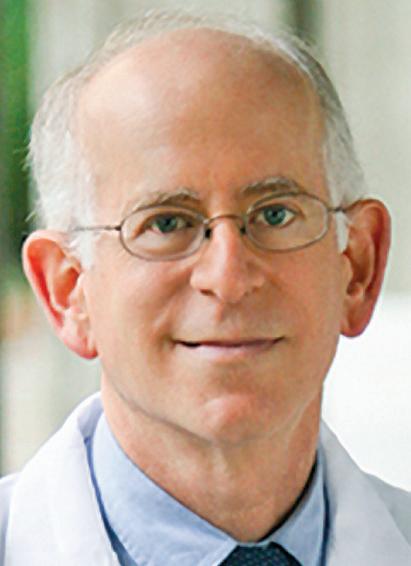
is is a story about kindness and gratitude, but first I need to tell you about evaluating patients with back pain to set the context.
One would think that the most important part of the physical exam to rule out anything serious for a patient with low back pain would be to examine the back, but oddly it’s the feet. If the spinal nerves are compressed in the lower spine, there can be muscle weakness or loss of sensation of the foot, or loss of the ankle reflex.
Another reason to examine the feet in someone with back pain is to rule out peripheral vascular disease. Patients with that disease may have low back pain that comes on with exertion and is relieved by stopping to rest. Before I would examine patients with back pain, my medical assistant at Kaiser always asked them to remove their socks and shoes and, if necessary, helped them do so.
In the mid-1990s, a businessman in his early 40s came to see me with an acute onset of low back sti ness. It was clear that he could barely move. Luckily, examination of his feet was normal so I was able to reassure him that he did not have serious pathology. I told him to avoid si ing for more than 15 to 20 minutes at a time and showed him some simple back and hamstring stretches. It was apparent that there was no way he could put on his socks and shoes, so I put them on for him without giving it a second thought. I did not expect to ever see him again. He wasn’t a regular patient of mine, and I predicted he would recover in a few days.
In summer 2001, Peninsula Temple Beth El held an outdoor Shabbat service at Beresford Park in San Mateo. A er the service ended, my wife and I headed back to our car, and a man



approached me. He asked, “Do you recognize me?” Feeling guarded about a stranger approaching me in a park, I responded “no.” He then went on to say, “A few years ago, I saw you for back pain, and I want to tell you how much it meant to me that you put on my shoes when I was unable to do so myself.”
I thanked him for telling me this, and he quickly walked away. I then remarked to my wife, “Darn, I never asked him his name. I guess I’ll just have to think of him as ‘shoe guy.’”
More than two decades later, in spring 2023, the Peninsula Jewish Community Center hosted an outdoor evening celebration to mark its 75th anniversary. My wife was o talking with former colleagues and friends. I was meandering around, scouting the food options.
It was apparent that there was no way he could put on his socks and shoes, so I put them on for him without giving it a second thought.
A man came up to me and told me he appreciated my recent J. column about gratitude. He then told me a story about contemplating what to give a 95-year-old retired teacher for her birthday. He had decided that a 95-year-old must have everything that she desired by now. But a er reading my column, he sent her a le er of gratitude. A er she received his le er, she le a voicemail telling him that it was one of the nicest gi s she had ever received. It sounded as if she were crying on the voicemail because she was so moved by his le er.
I am o en amazed how small acts of kindness and gratitude can have huge impacts, and I felt compelled to tell this man about “shoe guy.” Until then, I had never shared this story with anyone other than my wife. As I was telling him the story, his eyes got wider and wider, and he began staring at me intently. When I got to the part about the “shoe guy” approaching me in the park, he couldn’t restrain himself any further and exclaimed, “I am your shoe guy!”
continued on page 22
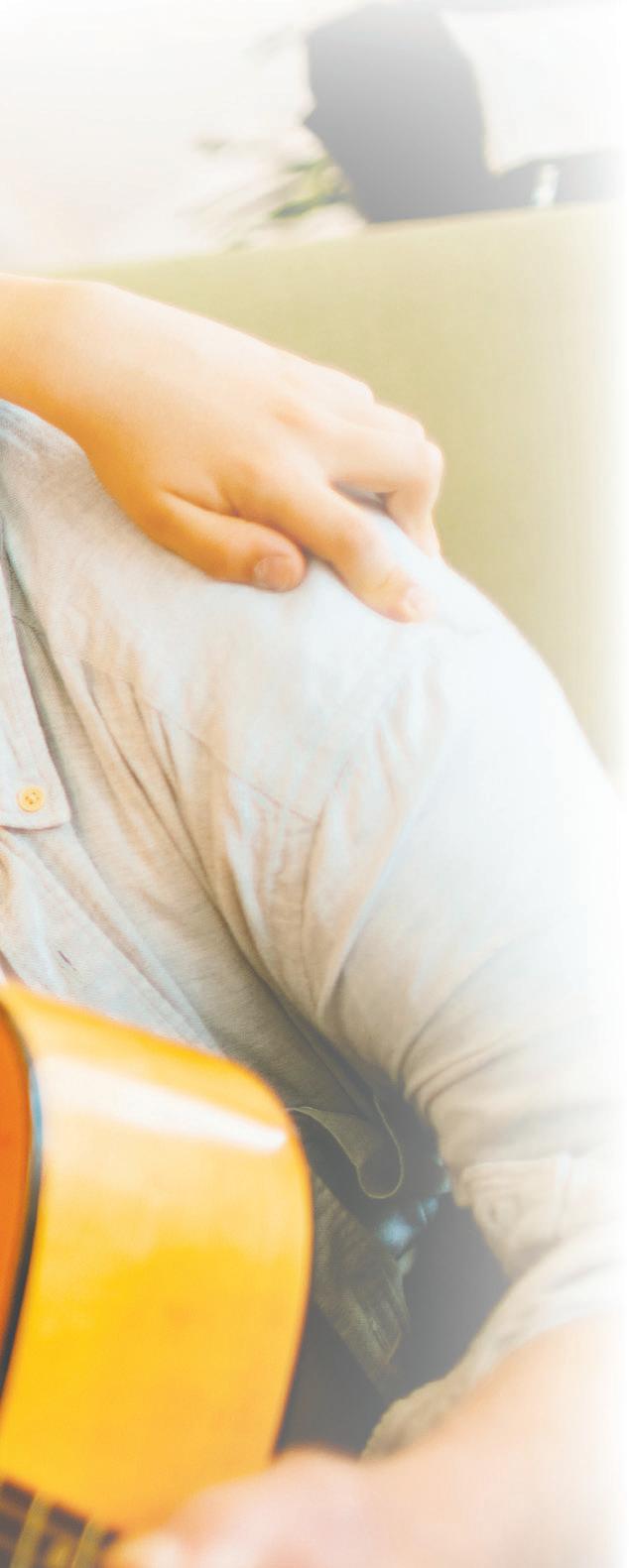
“the warmth, everyone knows my name” “new friends, more fun”
“consistently excellent food” “spacious and deluxe apartments”
“staying healthy and busy”
“we can stay together, every apartment is licensed for Assisted Living” “compared to other places…The Magnolia’s our best decision!”
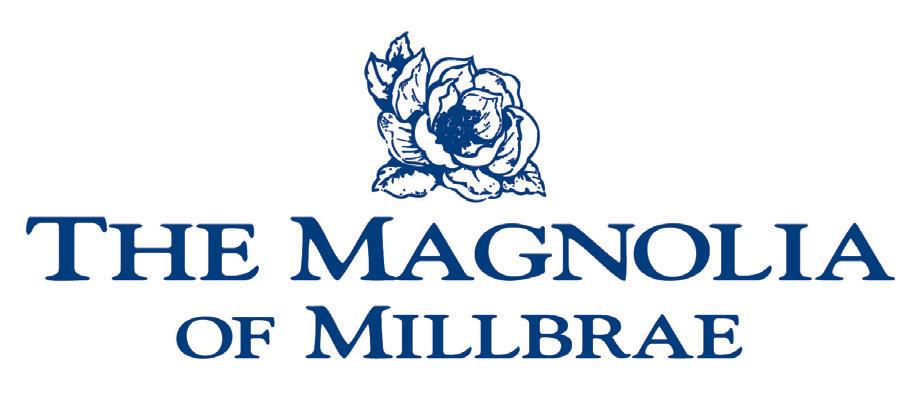






















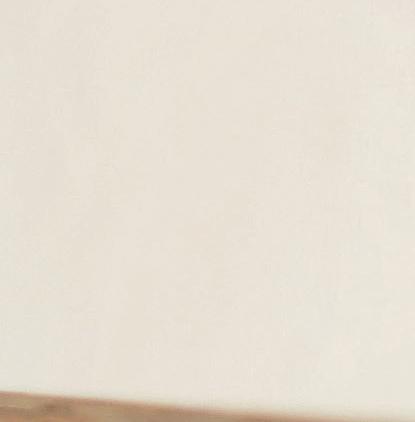



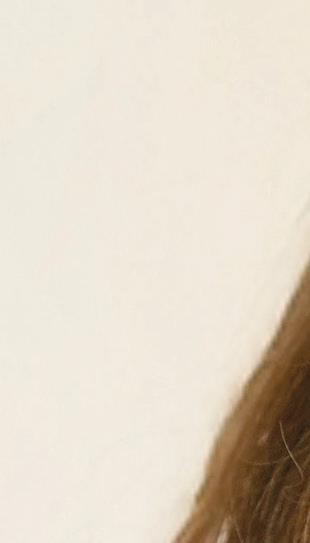
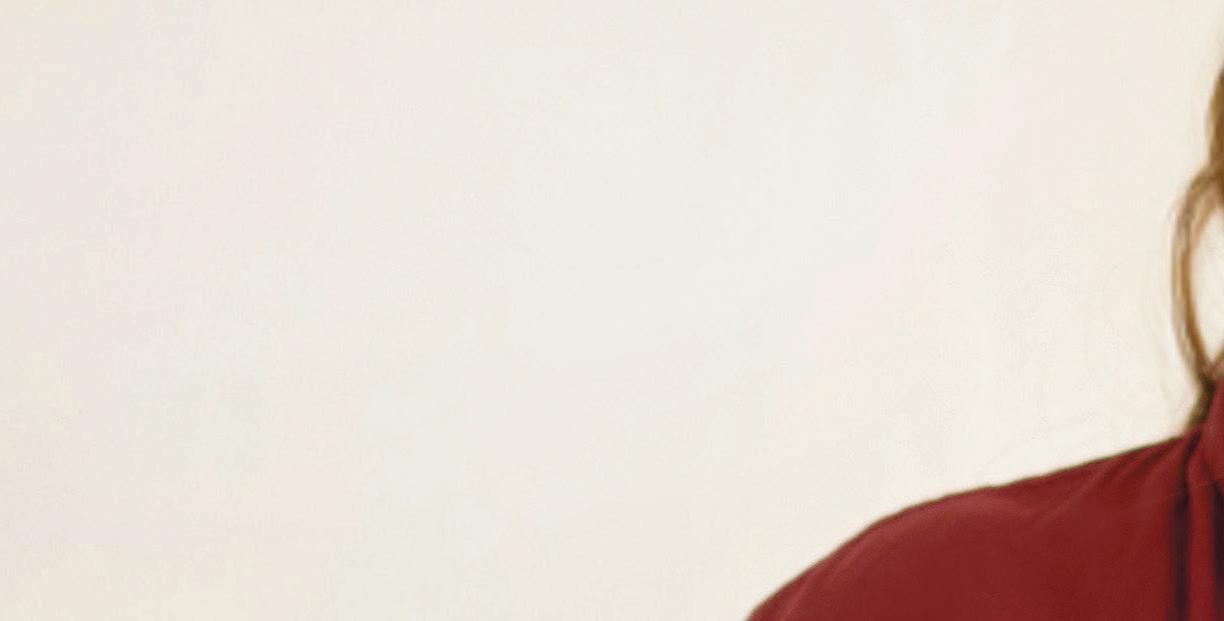

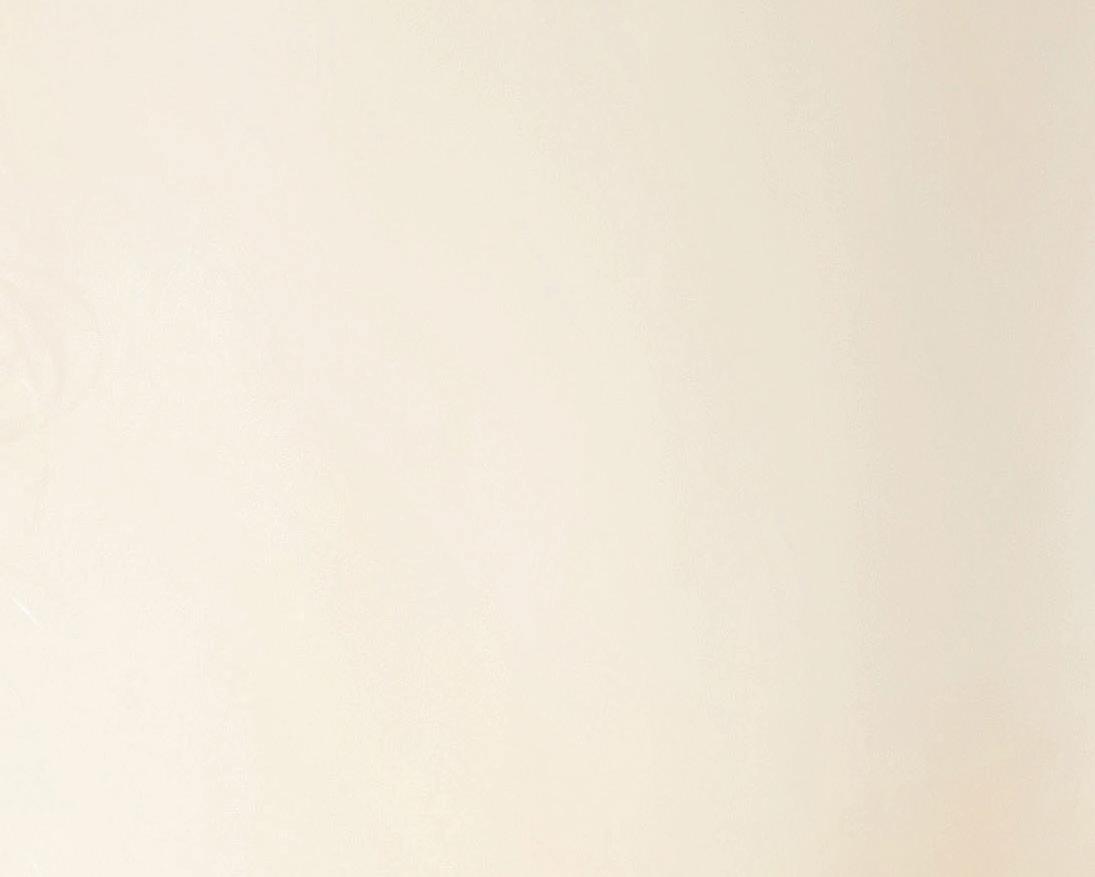




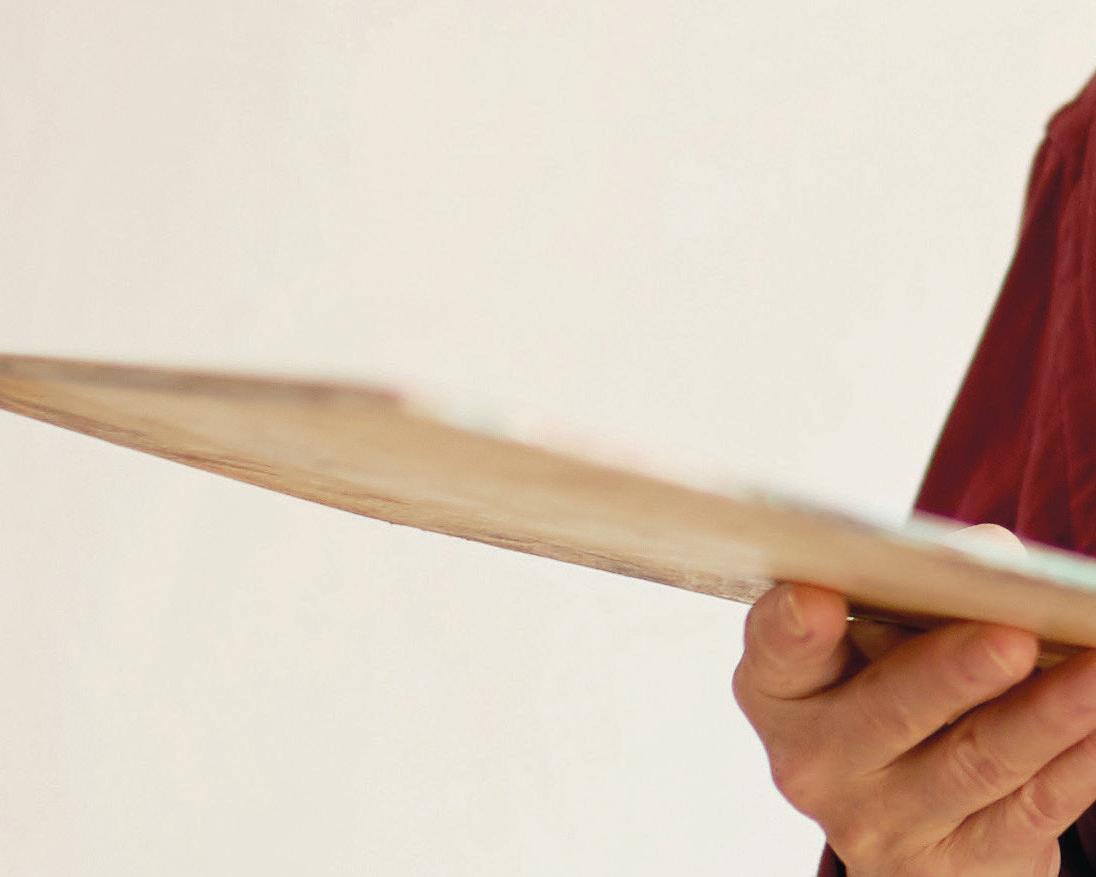
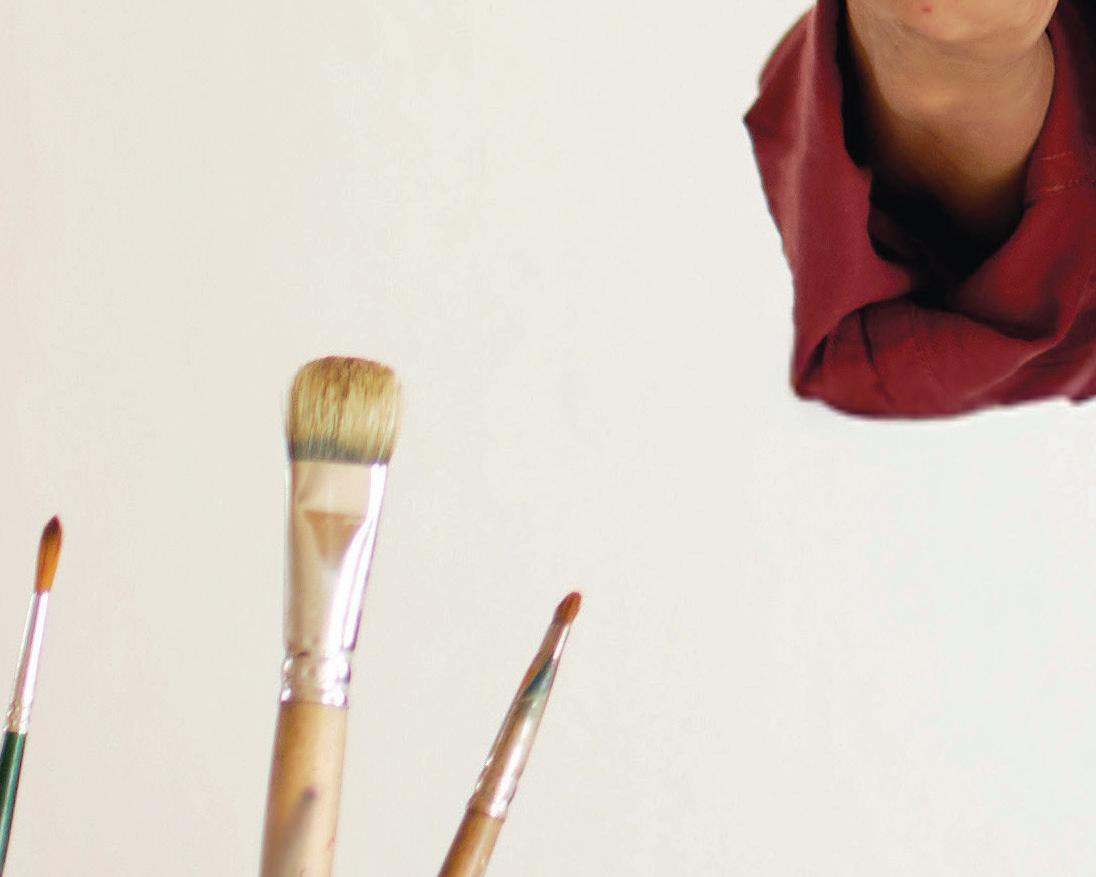
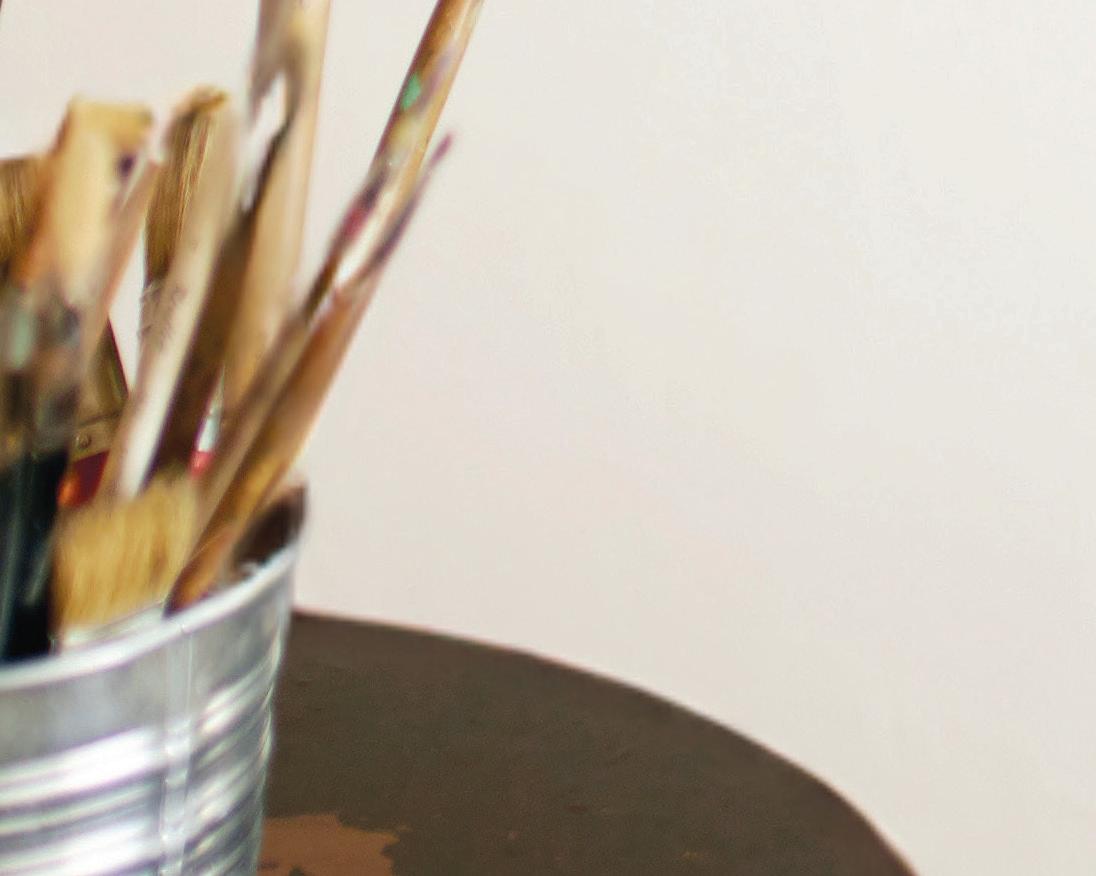

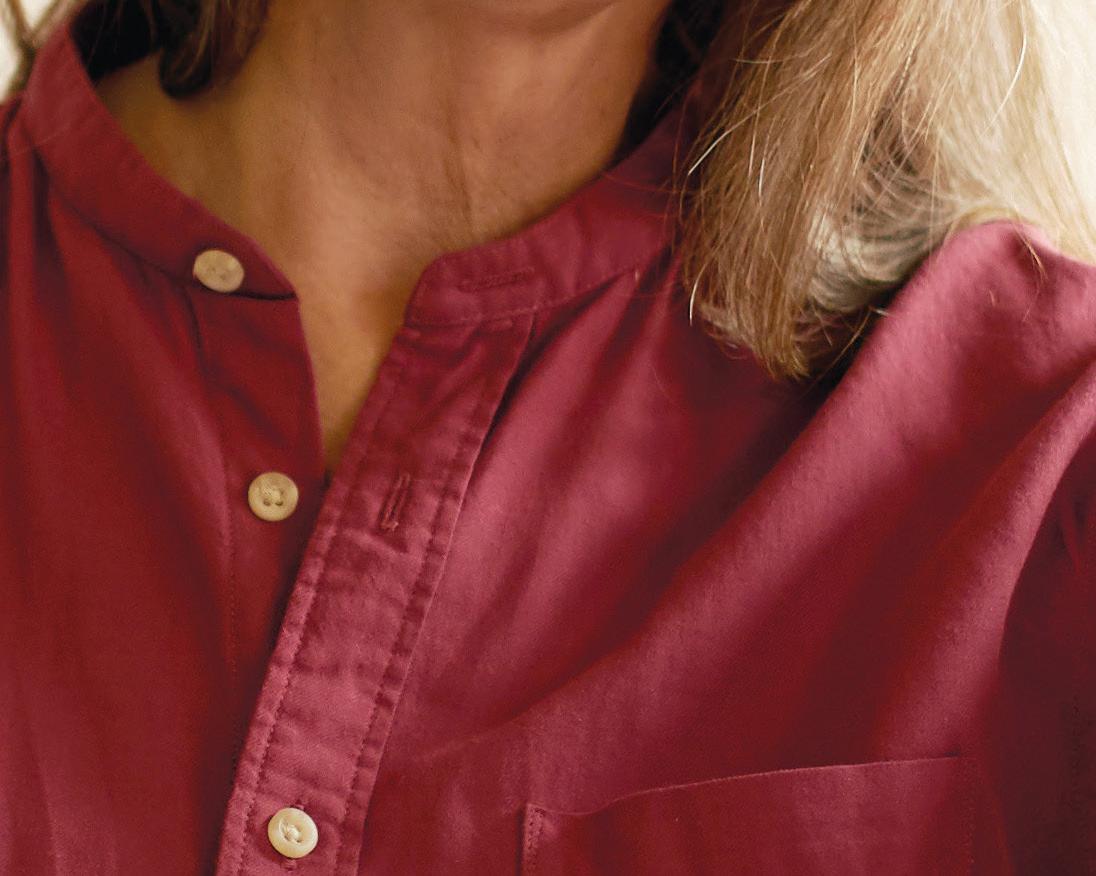
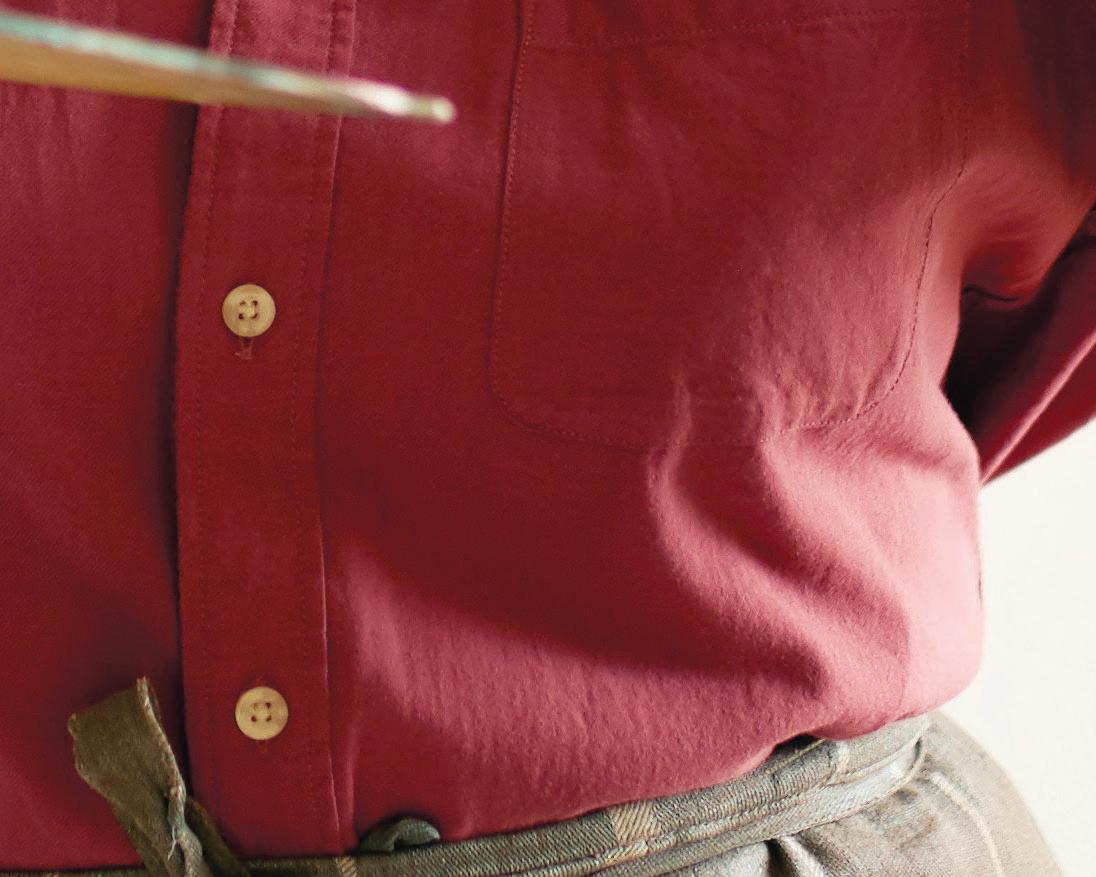
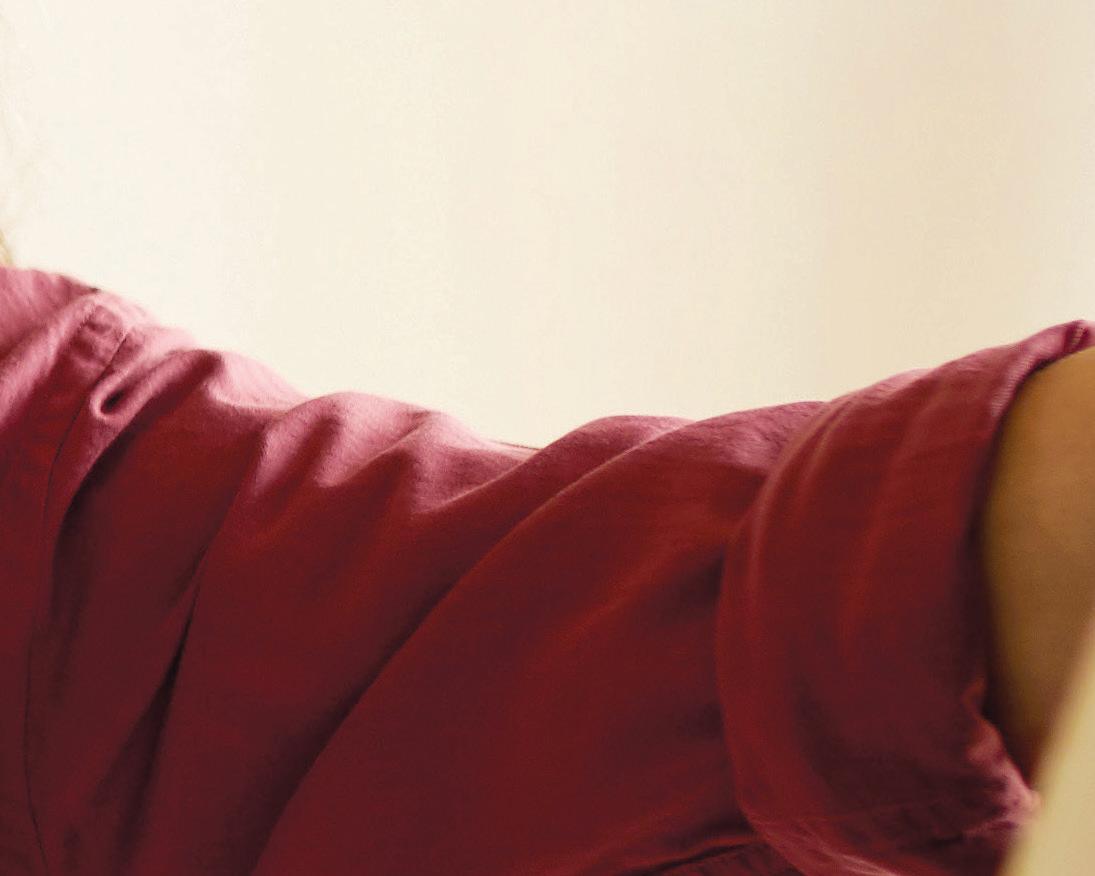
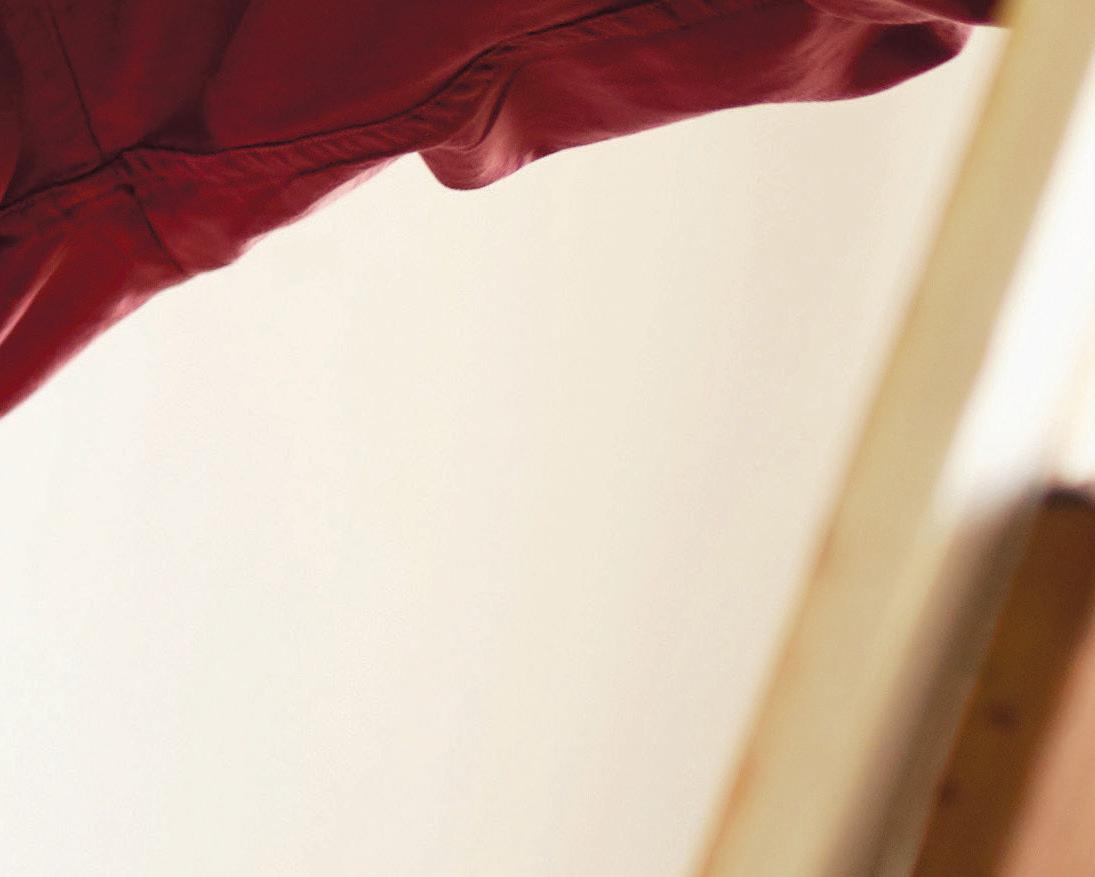


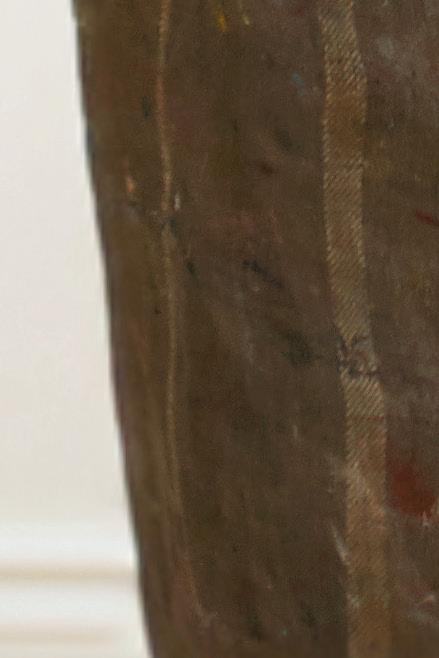




Introducing “Such a Match!,” J.’s first original podcast!
In each episode of “Such a Match!,” host Emma Goss tells the story of a couple who met through the pages of our publication. The third episode, “The journalist who got scooped,” is now available on Spotify and Apple Podcasts.

Listen to “Such a Match!” on Spotify and Apple — or sign up to be notified of each new episode at jweekly.com/podcast
continued from page 20
I stood there speechless for a few seconds before I could exclaim, “Wow!”
Here is an epilogue: In my 2023 column about gratitude, I told the story of a Samaritan House Clinic patient who had been grieving the death of his son for several years. He was overwhelmed with grief when I saw him in 2023, and I suggested that focusing on gratitude might help mitigate his loss. He understood my point but said it would be hard to change his thinking.
He returned to the clinic in fall 2024, complaining of neck pain, but I noticed that he had no hint of sadness. I asked him to explain: He had moist eyes but wore a smile on his face as he told me that he now imagines his family as a large beautiful garden. (Besides his son who passed away, he has three daughters and five grandchildren.) His son was a beautiful flower plucked from his garden, but he was still grateful for the flowers that remain. I thanked him for sharing this wonderful imagery.
After he left, I told my nurse practitioner student who was with me that day, “This is why I love being a physician.”
What will be your next act of kindness or expression of gratitude? n
continued from page 14
In the local agencies with programs in place, the most frequently covered topics were the Holocaust, the Armenian genocide, and the mass killing and forced land removal of Native Americans, including in California.
According to the report, LEAs emphasized the need for state-level support to ensure “equitable, high-quality Holocaust and genocide education statewide.”
The Governor’s Council on Holocaust and Genocide Education was created in 2021 as part of an effort to stop rising antisemitism and bigotry across the state. The council was tasked with identifying instructional resources to teach students across California about the Holocaust and other acts of genocide and providing young people with the tools to respond to antisemitism and bigotry.
Parallel to the formation of the council was the launch of the California Teachers Collaborative for Holocaust and Genocide Education. The statewide network includes 14 organizations such as the JFCS Holocaust Center, the Cambodian Genocide Resource Center, the Uyghur Genocide Online Resource Center and Holocaust Museum LA.
The teachers collaborative provides educational resources and professional development to California’s educators in the hope that middle school and high school students receive impactful Holocaust and genocide education.
A website launched with input from Silicon Valley leaders — one that curates lesson plans and virtual learning opportunities for teachers — is cited in the study as a “significant stride,” and an example, Friedman said, of a “private-public partnership” working toward providing high-quality education.
The teachers collaborative also facilitates in-person events for educators. One such
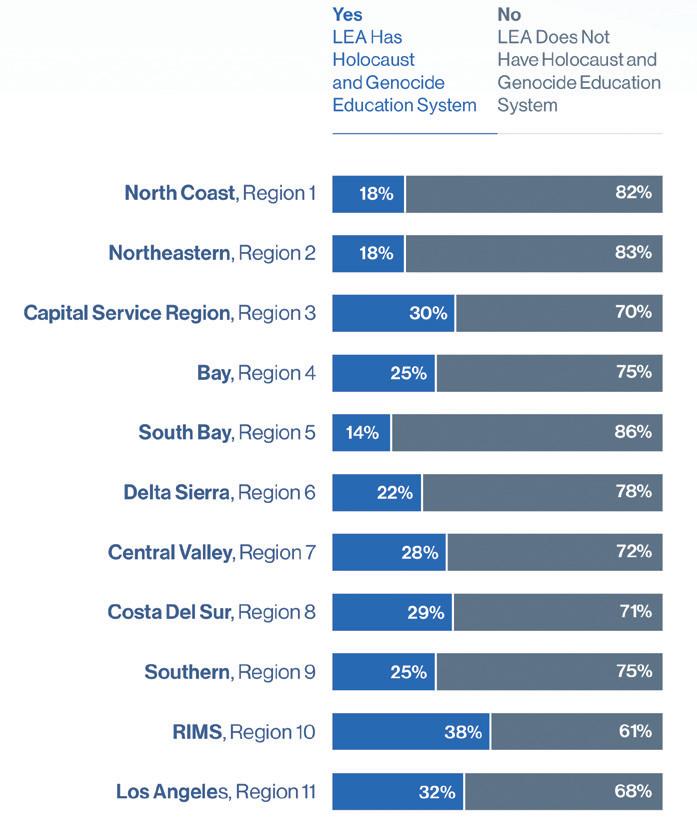
Graph shows the percentage of local educational agencies with Holocaust and genocide programs. (GOVERNOR’S OFFICE)
event took place on Jan. 27 in Sacramento, drawing more than 90 school administrators.
The study offers 10 recommendations for strengthening Holocaust and genocide education in the state. These include more effectively communicating California’s vision for such education, revising the history and social studies content standards, and increasing direct funding to districts and schools.
Newsom said he hopes the report can make a difference.
“Hate is unacceptable, and the shocking decline in awareness among young people about the Holocaust and other acts of genocide is especially alarming,” he said in a statement. “I look forward to reviewing the Council’s recommendations and ensuring that California continues to be a beacon for tolerance, empathy, and education.” n


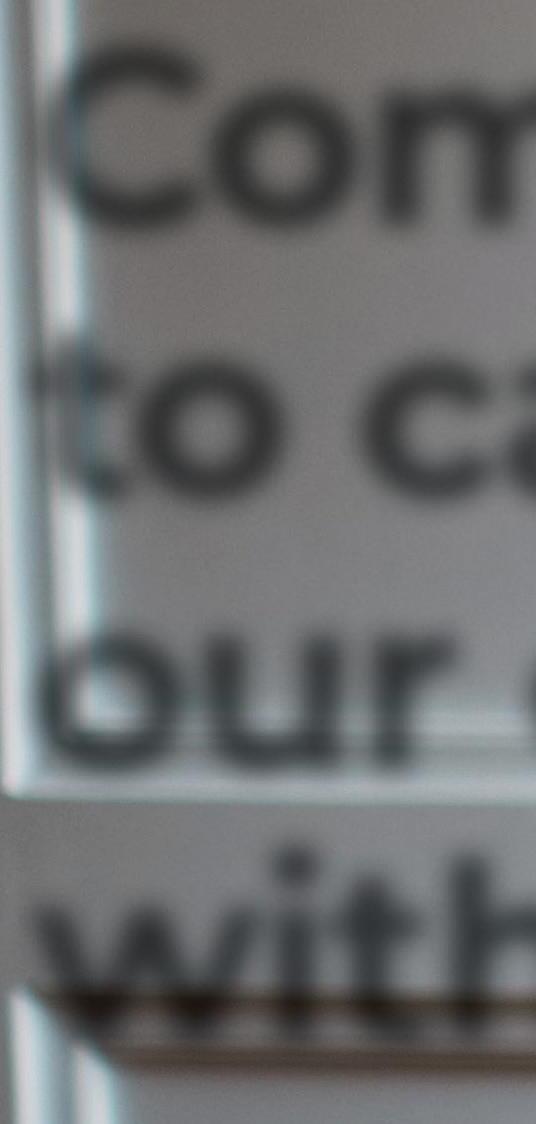


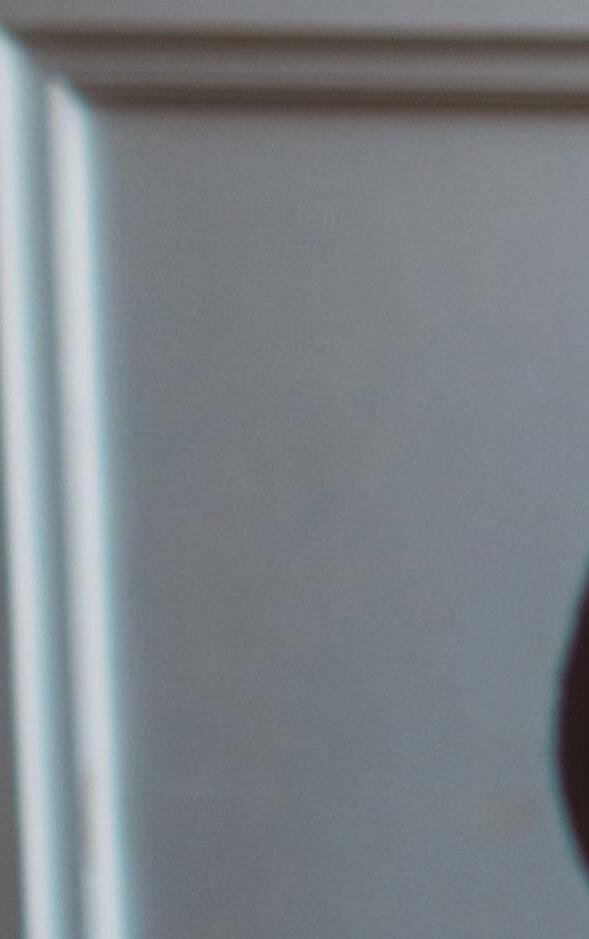




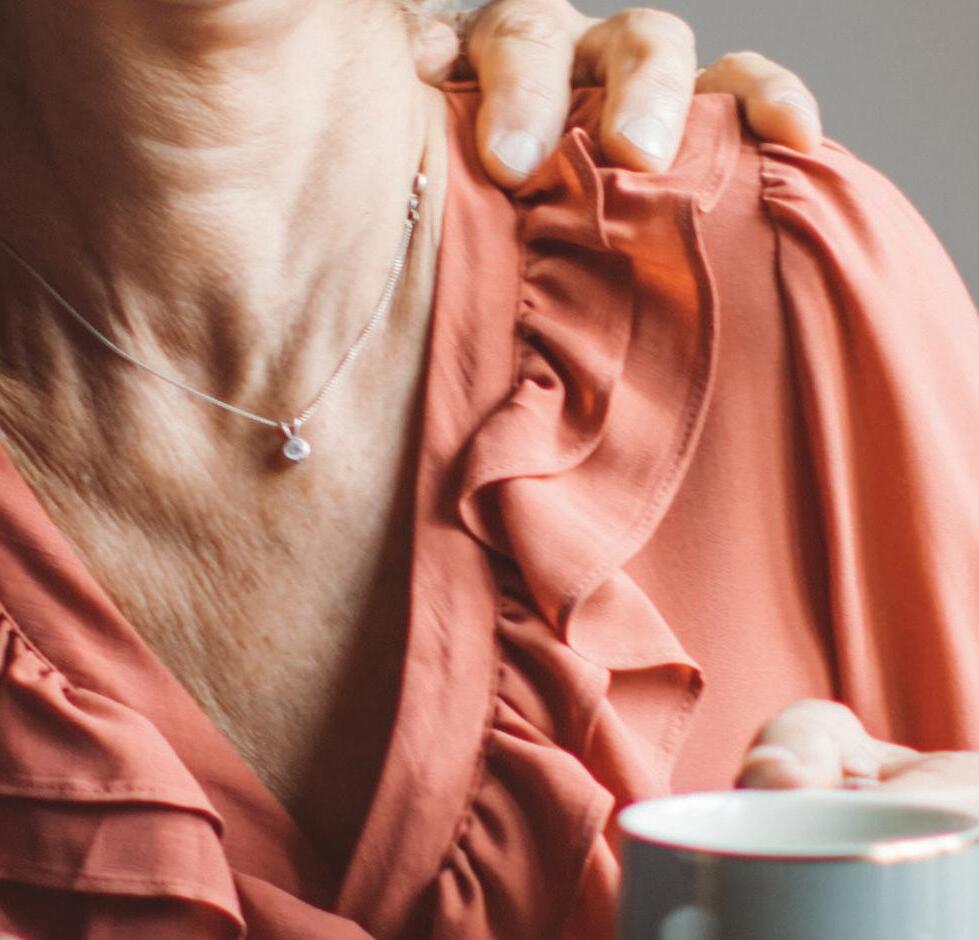
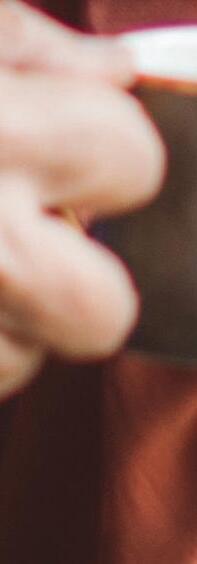



Institute on Aging traces our roots back to the Jewish community’s traditional sense of family and storied heritage, which goes back some 4,000 years. Our founders saw their mission as an expression of this heritage, and we are honored to carry this commitment forward.
Through programs like Corio and Companioa, we enhance the quality of life for aging adults and empower people to live independently.
Institute on Aging’s Corio offers award-winning professional home care services that can provide peace of mind.
n Award-winning home care
n Every case assigned a team of Home Care Aides and a Client Service Manager
n Access to additional IOA care programs and services
n Around-the-clock care services available


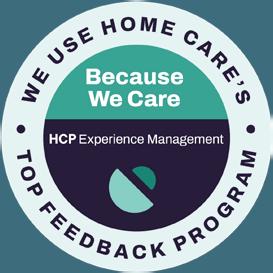
Companioa’s integrated group of dementia care programs includes:
n Concierge Client Care
n Personal Concierge
n Caregiver Coaching
n Care Management
n Home Care
n Enrichment Center in the Presidio

JACOB GURVIS | JTA
When Israeli NBA player Deni Avdija was traded from the Washington Wizards to the Portland Trail Blazers before this season, his prospects for greatness didn’t exactly improve: e Wizards were 15-67 last season, in second-to-last place in the Eastern Conference, and the Trail Blazers were 21-61, worst in the Western Conference.
Avdija went from starting 75 games last season (out of 82) to playing roughly half of his games this season o the bench. With the exception of points per game — which have remained static — his major stats are mostly down this season.
So why write about a 24-year-old forward from Beit Zera, a kibbutz just south of the Sea of Galilee?
Because on Jan. 28, Avdija dropped 30 points with nine rebounds as the Trail
Blazers defeated the Milwaukee Bucks 125-112. It marked the 16th 30-plus point game of Avdija’s NBA career and his first this season. Trail Blazers coach and former NBA great Chauncey Billups called the performance Avdija’s “best game” with Portland, according to OregonLive.
“I’ll give it to him if he thinks that,” Avdija said a er that game. “I believe him. I feel like I just try to help the team every game. But I don’t know why today made it, like, my best performance, but I’ll go with it.”
John Hollinger, a columnist with e Athletic, heaped on the praise on Feb. 1 when he named Avdija one of 10 NBA players worth watching in the second half of the season.
“Deni Avdija has been the Blazers’ best player … Avdija’s coast-to-coast drives, o en

ending in rhino-charge drives to the rim with defenders flying o him, have been Portland’s best source of o ense,” Hollinger

wrote in his column.
en on Feb. 3, Avdija played another solid game, scoring 24 points with eight rebounds before fouling out of the Blazers’ 121-119 overtime win over the Phoenix Suns.
He has also been heralded for his defense — which doesn’t dominate highlight reels or stat sheets in the same way as o ense — and for his increasingly vocal leadership with his new team. His teammates have noticed.
“He’s always willing to listen to what everybody has to say, whether it’s good or bad, coaches or even players,” teammate Anfernee Simons told OregonLive. “His ability to just adapt to what’s going on. Me and him have been having constant communication on what to look for.” ■



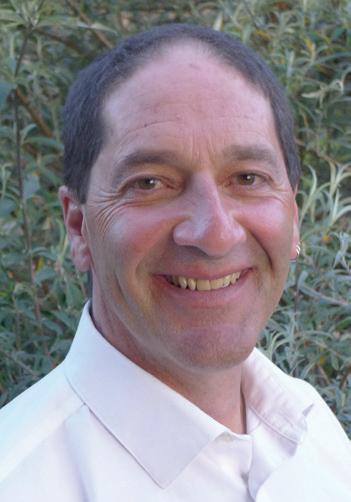





SUNDAY | February 9
“THE JEWISH SAN FRANCISCAN WHO INSPIRED NORTH AMERICA’S MOST FAMOUS FOOTPATH”—Professor Michael Hoberman explores the story of Theodore Seixas Solomons and his role in creating the John Muir Trail. Co-presented by New Lehrhaus. At Jewish Community Library, 1835 Ellis St., S.F. 3-4 p.m. Free, registration required. tinyurl. com/theodore-seixas-solomons
“FEELING JEWISH: NOSTALGIA AND AMERICAN JEWISH RELIGIONS”—Professor Rachel Gross discusses the longing of many American Jews for Eastern European heritage expressed through artisanal delis, children’s books and dolls, historic synagogues and Jewish genealogy. Livestream option. At Congregation Etz Chayim, 4161 Alma St., Palo Alto. 10 a.m.-12 p.m. Free. tinyurl.com/ feeling-jewish
MONDAY | February 10
“TEACHING A DARK CHAPTER IN HISTORY”—Daniela Weiner shares insights about history books and the Holocaust in Italy and Germany from her new book. In conversation with professor of education and Jewish studies Ari Y. Kelman. Presented by Taube Center for Jewish Studies and the English Department at Stanford. At CCSRE Conference room, 450 Jane Stanford Way, Building 360, Stanford. 4 p.m. Free. tinyurl.com/dark-chapter
“THE SOUL’S ETERNAL LIFE”—Author Doron Kornbluth discusses Jewish perspectives on burial, cremation and the eternality of the soul. Presented by Chabad SF and Chabad of MidPen. At a private residence in Hillsborough. 5:30 p.m. $36. tinyurl. com/soul-eternal
TUESDAY | February 11
“STRIKING THE RIGHT BALANCE: PARENTING TEENS WITH ADHD”— Child and adolescent psychiatrist Dr. Sarita Patel discusses strategies for parenting teens with ADHD, fo-
cusing on their special challenges and strengths. Presented by JFCS Center for Children and Youth. Online. 7-8:30 p.m. $45. tinyurl.com/ parenting-adhd
“LEADING WITH YOUR VALUES AT WORK”—A workshop with J.’s CEO Jo Ellen Green Kaiser exploring how professionals, especially Jewish professionals, can integrate their deeply held values into their careers. At Palo Alto location provided with registration. 6:30-9:30 p.m. $18. tinyurl.com/values-at-work
“TALKING TO KIDS ABOUT ANTISEMITISM”—Author Doron Kornbluth discusses ways to talk to kids about antisemitism and how to raise kids to love being Jewish. At the Lent Chabad Center in San Mateo, RSVP for full address. 7 p.m. $18. tinyurl. com/kids-love-jewish
THURSDAY | February 13
“YIDDISH SAN FRANCISCO”—Jewish Community Library director Howard Freedman explores the overlooked history of non-German-speaking Eastern European Jewish immigrants in San Francisco through Yiddish language, culture and community life. Co-presented by the library, KlezCalifornia, Jewish Folk Chorus and New Lehrhaus. Online. 7-8 p.m. Free, registration required. tinyurl.com/yiddish-sf
FRIDAY | February 14
“EXPLORING WISDOM OF THE BODY THROUGH FELDENKRAIS”—Physical therapist Ilana Nachoum leads class using the Feldenkrais Method, a spiritual and somatic therapy created by Israeli Moshé Feldenkrais that uses gentle movement and directed attention to improve quality of life. Bring heavy blanket, pillow and small towel. Through March 14. At Chochmat HaLev, 2215 Prince St., Berkeley. 10:30 a.m.-12 p.m. $90 series or $18 per class for members, $120 series or $24 per class for nonmembers. tinyurl.com/ feldenkrais-class
ADULT EDUCATION: BEREAVEMENT—
Rabbi Steve Finley and Reb Neal Attinson lead three in-depth sessions on grief and loss. With guest teacher Kristie Kesel Walthard of the Hanna Bereavement Program. Also Feb. 20, 27. At Congregation Shir Shalom, 252 W. Spain St., Sonoma. 1-2:15 p.m. Free. tinyurl. com/adult-education-class
SUNDAY | February 23
“WELCOMING THE IMMIGRANT: JEWISH ETHICS IN THE FACE OF RISING NATIONALISM”—Rabbi Armin Langer explores the Jewish concept of the “resident alien” and how this legal category could inform contemporary migration discourse. With kosher buffet brunch. Presented by Or Shalom Jewish Community. At JCCSF, 3200 California St., S.F. 10 a.m.-12 p.m. Free. tinyurl.com/ welcoming-immigrant
“THE JOY OF JEWISH MUSIC AND DANCE”—Five-part workshop series to learn klezmer music technique and Yiddish dance. With dance party, informal music jam and a series of performances/teachers including Ilya Shneyveys, Sarah Myerson and Saul Goodman’s Klezmer Band. Also March 23, April 27, May 18. Presented by JCC East Bay and KlezCalifornia. At JCC East Bay, 1414 Walnut St., Berkeley. 1-4 p.m. Series, $180. Drop-in class, $18-$54 sliding scale. tinyurl.com/ joy-25
TUESDAY | February 25
“WHAT’S GOD PLAYING AT?”—Christine Hayes, professor emeritus of religious studies at Yale, explores Talmudic conceptions of Divine law through performance studies and theories of humor and play. 16th Annual Robbins Collection Lecture in Jewish Law, Thought and Identity at the Helen Diller Institute. With light reception. At Room 105, UC Berkeley School of Law, 2763-2719 Bancroft Way, Berkeley. 6-7:30 p.m. Free. tinyurl.com/god-playing
WEDNESDAY | February 19
“AND THEY AROSE EARLY TO DO SEXUAL VIOLENCE”—Launch event for Ethan Daniel Davidson’s new book, which draws on his own experiences and the events of Oct. 7, 2023, to explore Torah and modern responses to violence. With refreshments and free copies of the book. Co-presented by Reboot. At Jewish Community Library, 1835 Ellis St., S.F. 6:30 p.m. Free. tinyurl. com/arose-early
“IN PLAIN SIGHT: JEWISH ARTS AND LIVES IN THE MUSLIM WORLD”— Exhibit showcasing Jewish objects originating from Muslim lands that reflect cultural affinities and common threads between the cultures. Through May 15. At the Magnes, 2121 Allston Way, Berkeley. magnes. berkeley.edu
“ROOTS AND WINGS”—Exhibit by Israeli artist Ronit Shalem reflecting the balance between two powerful forces: the “roots,” representing Shalem’s connection to Israel and her personal experiences, and the “wings,” symbolizing her continuous artistic journey and growth. At Osher Marin JCC, 200 N. San Pedro Road, San Rafael. tinyurl. com/omjcc-art
SATURDAY | February 8
“6 FEET APART”—Opening reception for Ari Salomon’s exhibition exploring pandemic-era social distancing marks through photography, sculpture and site-specific works. Through March 16, with closing reception and artist talk. At Birdhouse Gallery, 2548 Judah St., S.F. 2-6 p.m. Free. tinyurl.com/6-feet-art
SATURDAY | February 8
SHABBAT SHIRAH CONCERT AND GALA—Honoring Cantors Henry Greenberg and David Morgenstern (z”l) with Yiddish and show tunes by Cantor Sharon Bernstein. Hap -
py hour, catered dinner, dancing to tunes of Jon Frank Jazz Trio. Silent auction included with ticket. At Am Tikvah, 625 Brotherhood Way, S.F. 5-10 p.m. $100. tinyurl.com/ am-tikvah-gala
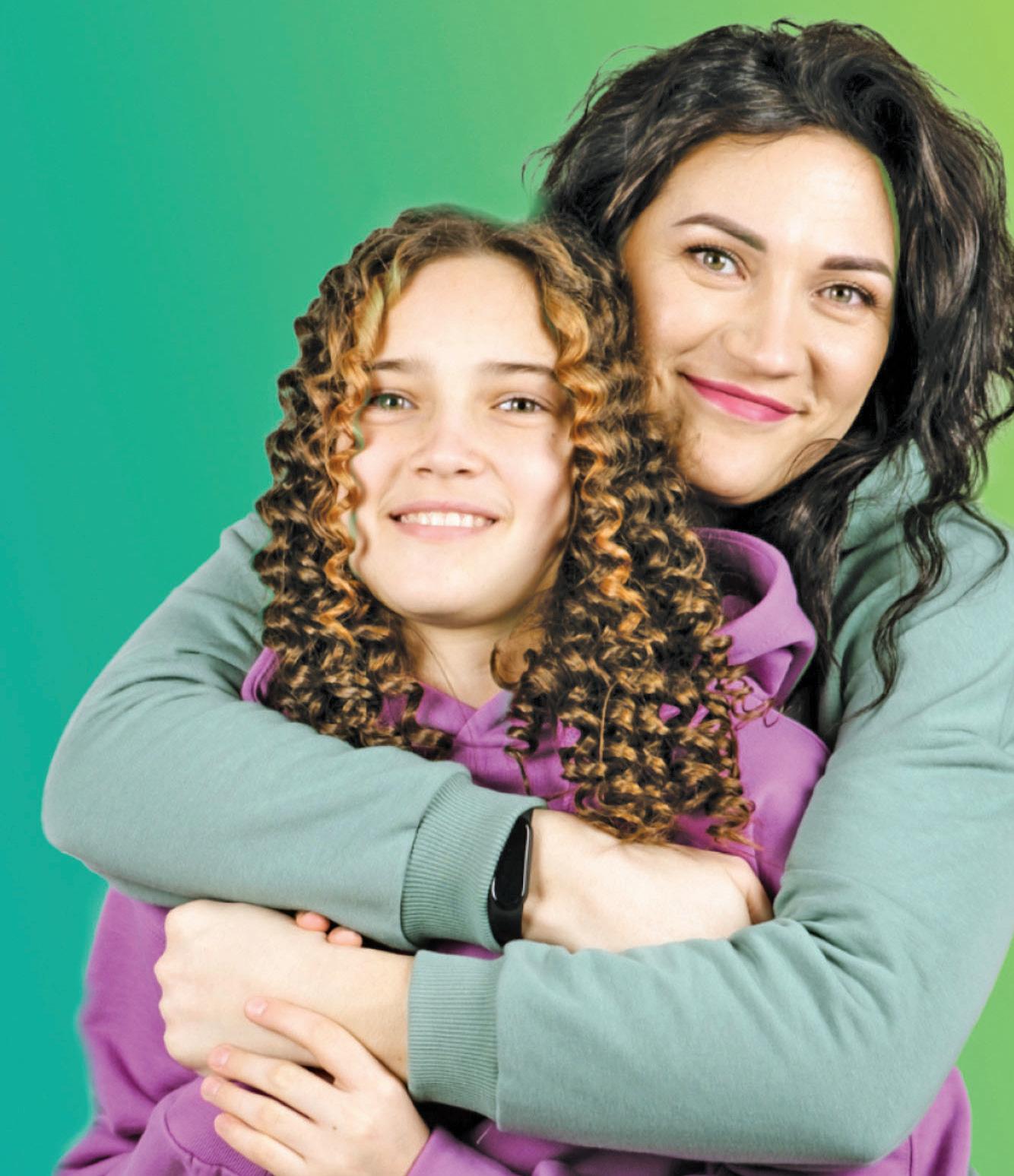
(COURTESY JFCS CENTER FOR CHILDREN AND YOUTH)
Expert parent educators will lead a four-session workshop, providing practical tools for raising self-assured teens. Topics include risk-taking behaviors, parenting through divorce, navigating difficult conversations and supporting Jewish teens in an era of rising antisemitism. The first session on Feb. 11, “Risky Behaviors and Responsible Decisions with Teens,” will be available in person at Temple Sinai in Oakland and online from 6:45 to 8 p.m. Subsequent sessions will be online-only on Feb. 25, March 25 and April 17. $36 for series. Presented by JFCS Center for Children and Youth. tinyurl.com/jfcs-teen-workshop

FRIDAY | February 7
KLEZMER SHABBAT—Hazzan Sandy Bernstein, the Shir Hadash Band and klezmer artist and violinist Cookie Segelstein perform music for Kabbalat Shabbat. With herring tasting, Ashkenazi signature cocktail and oneg. At Congregation B’nai Shalom, 74 Eckley Lane, Walnut Creek. 6 p.m. Free. tinyurl.com/ shabbat-klezmer
WEDNESDAY | February 12
TU BISHVAT SEDER—Urban Adamah presents its annual seder with the Seven Sacred Species, farm-crafted liquor, seven-course menu made with local seasonal ingredients and entertainment. At Urban Adamah, 1151 Sixth St., Berkeley. 6-9 p.m. $54-$118, sliding scale. tinyurl.com/ tu-bishvat-seder
THURSDAY | February 13
“SOUND JOURNEY: NOURISH YOUR ROOTS”—JCCSF presents soundscape meditation using chimes, crystal singing bowls and gongs to clear mind and body, promote relaxation and release tension using the Logos Method. Bring mat, blanket and pillow. At JCCSF, 3200 California St., S.F. 6:30-8 p.m. JCC members $30, public $35. tinyurl. com/feb-sound-bath
FRIDAY | February 14
“IMMIGRANT SHABBAT: LOVE THE STRANGER”—Shabbat service with guest panel of immigration law experts discussing recent immigration policies and the impact on the lives of refugees, asylum seekers, immigrants and the larger community. Livestream option. At Congregation Sha’ar Zahav, 290 Dolores St., S.F. 7:30 p.m. Free. shaarzahav.org
SATURDAY | February 15
“IN CELEBRATION OF TREES”—Experiential hands-on half-day program in honor of Tu Bishvat exploring the interrelationships of

trees, humanity, the unseen world and a Jewish approach to ethical harvesting. With guided walk. Presented by Maggid Jonathan Furst and Fork in the Path. Berkeley location provided with registration. $40-$100 sliding scale, portion of fee benefits nonprofits supporting Indigenous rights. tinyurl.com/ celebration-trees
SUNDAY | February 16
TRI-VALLEY CULTURAL JEWS TU BISHVAT—Holiday celebration with farm day, secular seder and potluck. Bring dish to share. At Livermore location provided with registration. 7 p.m. $15, members free. RSVP at culturaljews@gmail.com
FRIDAY | February 21
BENJAMIN D. SOMMER—Professor of Bible and Ancient Semitic Languages at Shalom Hartman Institute presents three days of talks as part of scholar-in-residence at Congregation Netivot Shalom. On Feb. 21, “Praying with Angels: Psalm 29 and the Kedushah Prayer,” from 8:15-9:15 p.m. On Feb. 22, “Complaint, Appeal, Protest: The Psalms of Crisis,” from 1:15-2:15 p.m. On Feb. 23, “Sacred Space in the Torah: Two Memories, Two Theologies,” from 10-11 a.m. At Netivot Shalom, 1316 University Ave., Berkeley. Free. tinyurl.com/benjamin-sommer
FRIDAY | February 28
SHERITH ISRAEL REFUGEE SHABBAT— Seventh annual HIAS Refugee Shabbat with guest speaker Adoubou Traore, founder and executive director of the African Advocacy Network. At Congregation Sherith Israel, 2266 California St., S.F. 6-7 p.m. Free. tinyurl.com/ sherith-refugee
FAMILY SHABBAT—Family-friendly Kabbalat Shabbat service with special musical guest Lior Ben Hur. At Congregation Emeth, 17835 Monterey St., Morgan Hill. 7 p.m. Free. tinyurl.com/family-shabbat
Aleeza Ben Shalom — matchmaker, dating coach, author and host of Netflix’s “Jewish Matchmaking” — will share behind-the-scenes secrets about her dating show and provide live matchmaking on stage for four lucky singles. She also will be joined for a fireside chat by Tinder AI expert Ayal Prizant, who will explore tech-driven matchmaking.
7 p.m. Wednesday, Feb. 19 at Oshman Family JCC, 3921 Fabian Way, Palo Alto. $71. tinyurl.com/jewish-match
Aleeza Ben Shalom (COURTESY NETFLIX)
THE GIVING KITCHEN—Seeking volunteers to cook meals for those in need at Chabad’s kosher community kitchen. At Chabad of SF, 496 Natoma St., S.F. Times vary. Registration required. tinyurl.com/ giving-kitchen
CLOTHING DRIVE—Congregation
Sha’ar Zahav is collecting blankets, jackets, and new or lightly used clothing and socks to be distributed to the homeless by the Gubbio Project. At Sha’ar Zahav, 290 Dolores St., S.F. Weekdays 9 a.m.-5 p.m. shaarzahav.org
“OPERATION DIGNITY”—Jewish Silicon Valley and Jewish Family Services Silicon Valley are raising funds for a community needs campaign to support 250 local Holocaust survivors living below the poverty line. Every dollar donated will be matched by the Joseph Gringlas National Kavod Shef Fund. Donate online. tinyurl. com/operation-dignity
DIAPER DRIVE—Temple Emanu-El in San Jose is collecting boxes of new/unused diapers and wipes for Jewish Family Services of Silicon Valley. Through March 16. Dropoff at Emanu-El, 1010 University Ave., San Jose. tinyurl.com/ diaper-drive-25
SUNDAY | February 9
“TU BISHVAT MITZVAH DAY”—Celebrate the new year of the trees by participating in social action projects to make the world a better place. At Congregation Beth David, 19700 Prospect Road, Saratoga. 10 a.m-1 p.m. Free. tinyurl.com/ mitzvah-day-25
TU BISHVAT: NATIVE PLANTING— Holiday event restoring the waterway and wildlife corridor at Foothills Nature Preserve by planting native species and learning about their ecological importance. Bring reusable water bottle, wear long pants and close-toed shoes. Gloves, tools and light snacks provided. At Foothills Park Nature Interpretive Center, 3300 Page Mill Road, Palo Alto. 9 a.m.-12 p.m. Free, registration required. tinyurl.com/ native-plant
THURSDAY | February 20
SACRAMENTO JEWISH FILM FESTIVAL—Opening day of the 26th annual festival with 25 films, featuring “The Blond Boy from the Casbah,” “Janice Ian: Breaking Silence” and “Bliss.” Available for viewing online or in person; details vary. At Crest Theatre, 1013 K St., Sacramento. Feb. 20-23. Livestream Feb. 24-March 9. sacjewishfilmfest.org
SATURDAY | February 22
EAST BAY INTERNATIONAL JEWISH FILM FESTIVAL—Opening night of the 30th annual festival featuring “Midas Man” and 36 other films. Available for viewing online or in person. At Century 16 Theater, 125 Crescent Drive, Pleasant Hill. Feb. 22-27. Livestream March 9-20. $180 festival pass, $12-$15 individual films. eastbayjewishfilm.org
JFI WINTERFEST—Opening night of the 12th annual festival with six films, featuring “Among Neighbors.” Presented by Jewish Film Institute. Also Feb. 23. At Vogue Theater, 3290 Sacramento St., S.F. $75-$100 festival pass. tinyurl. com/winterfest-25
“UNDER G-D”—Documentary examines the complex struggles individuals face exercising their reproductive rights. Followed by discussion centered on how these issues align with Jewish values of human dignity, autonomy and justice. Presented by Tri-Valley Cultural Jews. At Castro Valley location provided with RSVP. 3-4:30 p.m. $15 nonmembers, free for members. RSVP at culturaljews@ gmail.com
TUESDAY | February 25
“SCREAMS BEFORE SILENCE”— Screening and discussion of Sheryl Sandberg’s documentary about the sexual violence committed by Hamas in Israel on Oct. 7, 2023. Facilitated by executive director of Shalom Bayit Naomi Tucker. At Peninsula Temple Beth El, 1700 Alameda de las Pulgas, San Mateo. 7-9 p.m. Free. tinyurl. com/screams-film
SUNDAY | February 9
“TU BISHVAT TOY SWAP”—Event for families with kids ages 3-11 to trade gently used toys and celebrate reuse and recycling. Registration fee will be returned as tickets to use as money during the swap to purchase toys, snacks and other fun items. At Addison-Penzak JCC, 14855 Oka Road, Los Gatos. 11 a.m. $5, proceeds benefit Russian Speaking Jewish Programs and PJ Library. tinyurl. com/jsv-toy-swap
“BIRTHDAY OF THE TREES”—Jewish Baby Network holiday event for families with children ages 0-36 months to celebrate Tu Bishvat. Bring a blanket. At Conservatory of Flowers, Golden Gate Park, 100 John F. Kennedy Drive, S.F. 10 a.m.11:30 a.m. Free. tinyurl.com/sf-trees
“OAKLAND BIRTHDAY OF THE TREES”—Jewish Baby Network holiday event for families with children ages 0-36 months to celebrate Tu Bishvat with music, dancing, puppets and tree-related crafts and activities. Bring a blanket. At Temple Beth Abraham, 327 MacArthur Blvd., Oakland. 10:30 a.m.-12 p.m. Free. tinyurl.com/ oakland-trees
TU BISHVAT CONCERT AND NATURE EXPERIENCE—Jewish Baby Network and Congregation Kol Emeth present nature-themed event with singing, dancing, outdoor play, parsley planting activity and natural snacks. At Kol Emeth, 4175 Manuela Ave., Palo Alto. 3:30-5 p.m. $18 suggested donation. tinyurl.com/nature-concert
WEDNESDAY | February 12
“TU BISHVAT: OUTSIDE IN”—Holiday event with live trees, handson crafts, Jewish wisdom and rituals, fruit and nuts for snacks, nature-inspired art and a treehouse-themed book nook filled with stories about trees, nature and the changing of the seasons. At JCCSF, 3200 California St., S.F. 3-5:30 p.m. Free. tinyurl.com/ outside-in-tree
TU BISHVAT FAMILY CELEBRATION— Hands-on, interactive holiday experience with crafts, tree planting ceremony, singing, activity stations inspired by the Seven Sacred Species and treats. At Urban Adamah, 1151 Sixth St., Berkeley. 5-6:15 p.m. $9-$36, sliding scale. tinyurl.com/tu-bishvat-fam

‘Tu’
much fun for Tu Bishvat
WEDNESDAY | February 12
“BAGGAGE FROM BAGHDAD”—Valerie David performs play about her father and his family’s journey of being forced to flee from religious persecution during the 1941 Farhud pogrom in Baghdad. Followed by panel discussion with David.
Presented by Wornick Jewish Day School. At North Peninsula Lent Chabad Center, San Mateo. 6:30 p.m. refreshments, 7 p.m. show begins. $54, or 2 tickets for $100, all proceeds benefit Wornick’s Annual Chai Excellence Fund. tinyurl.com/ baggage-play
This year’s options for celebrating the “new year for the trees” include an experiential half-day workshop on ethical harvesting, native species planting at Foothills Nature Preserve, a sound bath at JCCSF, a sustainable toy swap at Addison-Penzak JCC, a seven sacred species seder at Urban Adamah and several Jewish Baby Network parties across the Bay, including one at the S.F. Conservatory of Flowers.
Tu Bishvat begins at sundown Feb. 12 and ends at sundown the next evening. For details and more events, see Holidays & Spiritual, Kids & Families and Take Action.
JASON HARRIS | GUEST CONTRIBUTOR
Why are so many people invested in trying to prove Elon Musk is not an extremist? The dispute about whether Musk’s Inauguration Day salute was a “sieg heil” or an unintentional gesture was too juicy to pass up. The Anti-Defamation League, Rep. Alexandria Ocasio-Cortez of New York, Al Jazeera and just about everyone else on the internet piled onto the controversy.
We were treated to freeze-frames of Taylor Swift, Justin Trudeau, Michelle Obama and other notables raising their hands mid-wave, as if proving some kind of equivalence. This is the kind of drama guaranteed to garner sensationalist headlines, passionate arguments and lots of attention.
But it really doesn’t matter.
That’s because Musk already has a demonstrated history of antisemitism. We don’t need to know whether his gesture was intended as a Nazi salute. Musk uses his massive social media platform, X, to support and spread antisemitic lies, conspiracies, accusations and attitudes to tens of millions of people.
After Musk bought what was then Twitter in 2022, he reinstated white supremacists, Holocaust revisionists and other far-right figures who had previously been banned for their nastiness. He uses his personal account to attack Jewish organizations that critique his decisions. He declared that the “great replacement theory” — the conspiracy that Jews are intentionally supplanting white Americans with minorities — was “the actual truth.”
Yes, he has done photo-ops at Auschwitz and with Prime Minister Benjamin Netanyahu. But whatever lessons Musk should have learned from those experiences clearly haven’t changed the way he uses and manages X.
After donating hundreds of millions of dollars to the Trump campaign, Musk is now extending his influence to European elections, where he has become an outspoken promoter of some of Europe’s most far-right political parties, including the increasingly extremist Alternative for Germany. Moderate Europeans, who have worked so hard to try to eradicate the demons of the 20th century, are watching with trepidation as Musk helps resurrect them.
Musk’s ideological leanings are plain to see. He’s certainly not the first world-changing industrialist to adopt bigotry and antisemitism. Devoted antisemite Henry Ford had the Dearborn Independent newspaper to promote his noxious hatreds. Musk has X — and where that doesn’t suffice, he has the attention of the global media obsessed with his newfound power as head of Trump’s newly created Department of Government Efficiency.
Does Musk really hate Jews in his heart of hearts? I have no idea. But it doesn’t matter. Whether he harbors anti-Jewish prejudice or just thinks it’s funny to troll Jews, the effect is the same.
Wave after wave of bigotry is directed at Jews on the platform he owns and in the public discourse he takes part in. He has the power to curtail the abuse and certainly to refrain from engaging with it himself, but refuses. Let’s not absolve him of responsibility for his behavior.
Regardless of his intentions, antisemites took his salute at face value, assuming he was sincere in signaling his support for their extremism.
“We are so back,” a right-wing commentator posted on X. And now Musk’s supporters are repeating the Nazi salute as a show of solidarity.
We can’t stop Musk from gesturing. We can’t stop him from promoting extremist conspiracies. But we don’t have to indulge or make excuses for him. So let’s not focus on the debate about whether Musk is, or is not, an antisemite. Someone of his temperament should not be given such power in our government. He doesn’t deserve the benefit of our doubt. n
Jason Harris is a local Jewish writer and educator and the creator of “Jew Oughta Know,” a podcast on Jewish and Israeli history. He lives in Alameda.
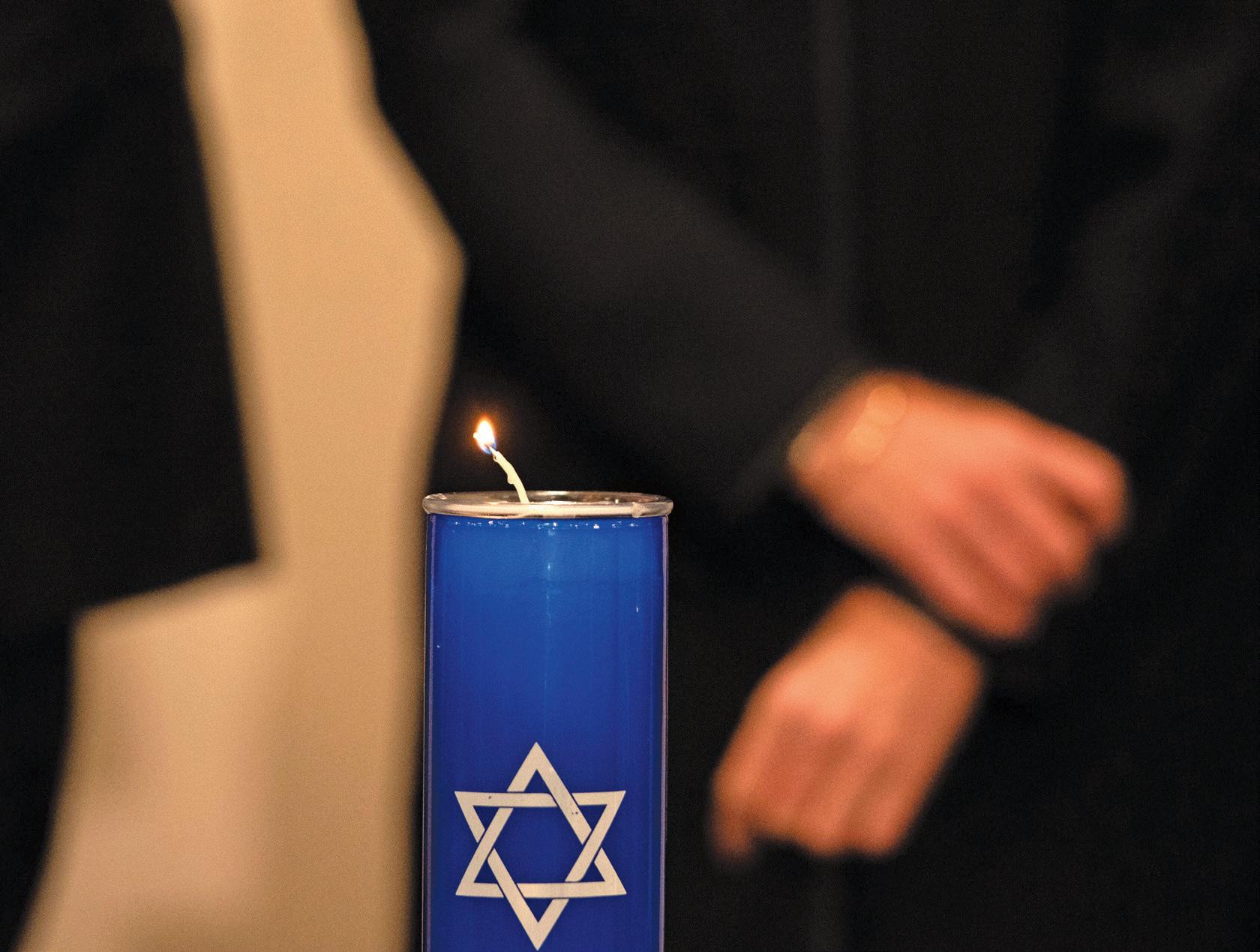
Alix Wall keeps educating me
Every time I read Alix Wall’s food column I discover something new. In her Jan. 24 column “Foraging led this mushroom enthusiast to ‘Fork in the Path” I learned that “to hunt for common mushrooms, like chanterelle, porcini or morels, one must know what their tree partner is,” according to Carrie Staller. The column was so good that I went right home to enjoy a bowl of “krupnik,” the name of mushroom barley soup for Polish Jews of Eastern Europe. For me, hot, fragrant, delicious mushroom barley soup is a true cold-weather classic.
GEORGE Z. BANKS | SAN LEANDRO
Alameda County’s narrow focus on Israel
On Nov. 12 and Dec. 10, the Alameda County Board of Supervisors discussed an ethical investment proposal. (Alameda County proposal will advance BDS, opponents say,” Dec. 20) The proposal covered a wide range of issues that should direct ethical investment, such as climate change, income inequality and human rights abuses in the world. A large and well-organized group rallied in support of the proposal. Treasurer Henry Levy joined in support.
However, any objective observer would notice the supporters’ narrow focus and would question the true intent behind the proposal. They found a single villain behind all the misfortunes that befall our planet — one country that has been desperately trying to rescue kidnapped hostages, including American, Thai and Nepalese citizens and two little toddlers.
Nobody disputes the profound suffering of Gazan civilians. Yet not a single supporter of the proposal, including Levy, put even a shred of responsibility on the government elected by Gazans, the one that led the killing and kidnapping of hundreds of civilians on Oct. 7, 2023, prompting a military response by Israel.
Before the board even voted on the proposal, Levy announced that he had proactively divested from the American company that trades with Israel.
Private citizens can exercise their free speech rights and continue accusing a country of 10 million Jews and Arabs of all the world’s ills. As an elected official, Levy must exercise some restraint and avoid joining an openly biased chorus or taking openly biased actions.
TAMARA GURIN | BERKELEY
JONAH “SAM” KAYE | GUEST CONTRIBUTOR

Jonah “Sam” Kaye (she/ her and they/them) is an artist and writer in Palo Alto. Kaye is the creator of the webcomic “She Used to Be Fractal.”
We are just weeks into Donald Trump’s second term — and already my fears of what a second Trump administration would mean for trans people like me are materializing rapidly.
Trump has already signed a flurry of executive orders, including several designed to remove trans people from public life.
One executive order claims to restore “biological truth” and states that it is the “policy of the United States to recognize two sexes, male and female. These sexes are not changeable and are grounded in fundamental and incontrovertible reality.” This both reinforces a blatant lie about the complexities of biological sex — intersex people exist — and conflates gender and sex as a means of erasing trans people despite our existence throughout history.
Another executive order bans trans people from serving in the military — a replay of 2017. The language of the order is particularly nauseating, stating that a “man’s assertion that he is a woman, and his requirement that others honor this falsehood, is not consistent with the humility and selflessness required of a service member.”
The intent of this order is laid bare in its dehumanizing language, which is one step toward an end goal — in one MAGA commentator’s words from 2023 — that “transgenderism must be eradicated from public life entirely.”
But the most damning executive order is one to end all gender-affirming medical treatment for those under 19.
I am an American Jew and I support Alameda County Treasurer Henry Levy in divesting from Caterpillar. The Jan. 24 op-ed by Ken Bravmann and Itamar Landau, “Alameda County’s divestment undermines trust and fairness,” raises valid points about the importance of consistency and transparency in applying county policies. Yet I ask, do we need to wait for laws and policies to stop monetary support for a company that for decades has knowingly supplied an occupying army with bulldozers to unlawfully demolish homes and endanger and kill civilians?
According to an American Friends Service Committee’s investigation, Caterpillar D9 bulldozers have been used to demolish homes, schools, roads and infrastructure in Palestinian communities and as “crowd control” during protests including the notorious killing of Rachel Corrie in 2003.
I am reminded of the Rev. Martin Luther King Jr.’s statement that “One has not only a legal, but a moral responsibility to obey just laws. Conversely, one has a moral responsibility to disobey unjust laws.”
I applaud Levy for divesting the county from Caterpillar — even before the existence of a formal policy — and I support the development of an ethical investment policy in Alameda County that would prohibit investing our tax dollars in additional companies
These are necessary medical treatments, ones that have near unanimous support of the medical community. The American Medical Association sees gender-affirming care as essential health care. As the ACLU writes: “Medical experts agree: Gender-affirming care is medically necessary care that can be life-saving for transgender youth. Medical decisions belong to trans youth, their parents, and their doctors.”
According to the largest-ever survey of trans people, conducted in 2022 with over 100,000 trans people across all 50 states: “Nearly all respondents (97%) who had at least one form of surgery for their gender identity/transition reported that they were either ‘a lot more satisfied’ (88%) or ‘a little more satisfied’ (9%) with their life.” Medical transitioning — whether puberty blockers, hormones, speech therapy, or surgery — is necessary and life-saving for many trans people.
Communal acceptance of transitioning is just as vital. Research shows that 56% of trans youth “reported a previous suicide attempt and 86% reported suicidality.” And importantly: “School belonging, emotional neglect by family, and internalized self-stigma [also] made a unique, statistically significant contribution to past six-month suicidality.”
This exact statistic is used by anti-trans pundits and politicians as a twisted smokescreen to claim that being trans causes the devastatingly high suicide rate. This lie is insidious because medical transitioning combined with social community support is what prevents such awful outcomes.
This election cycle was exhausting for trans people — and now the trans community, along with all other minority groups, will reap the rotting seeds sown by Trump’s anti-trans, anti-democratic, anti-empathy administration. The American people spoke, and they spoke with fear in their hearts.
These executive orders are purposefully cruel. Trans children will die as a result of this executive order denying necessary care.
Contrary to what Trump said before the election, Project 2025 is being implemented. And though lawsuits are being
that are complicit in human rights violations.
ALISON HAMBURG | OAKLAND
Alameda County Treasurer Henry Levy cites universal values in divesting from Caterpillar, which he holds complicit in the demolition of Palestinian homes. (“Why I divested Alameda County from Caterpillar,” Jan. 10)
What Levy’s divestment does is expose the hypocrisy of the BDS movement, of which it forms a part. I look forward to news of Alameda County or any other entity divesting from entities in the United Arab Emirates that support the Sudan Rapid Support Forces paramilitary, which launched a civil war that has killed tens of thousands.
I would welcome a probe into which companies in China, India, and elsewhere are paying blood money for U.S.-sanctioned Russian and Iranian oil.
These are just two examples. The list could go on.
ILYA GURIN | MOUNTAIN VIEW
Thank you, Treasurer Levy
I just wanted to send a note of appreciation for publishing
prepared and filed to block some of these executive orders, the Trump administration and Congress will continue to pump out new and insidious executive orders and legislation.
I need my Jewish community to understand that these discriminatory actions against trans people are dragging us down the same dehumanizing road that Jews have been down before. “Dehumanization” is Stage 4 of the U.K.-based Holocaust Memorial Day Trust’s “Ten Stages of Genocide.” It states: “Those perceived as ‘different’ are treated with no form of human rights or personal dignity.”
With so many crises in America and the world, it is easy to become overwhelmed. But there are little things you can do in your own life that will collectively add up to a massive positive impact.
Protect the trans people in your life. Make it clear you support their transition and take their concerns seriously. Let those not yet out of the closet know that you are a safe person to talk to by being vocal about your support for trans rights. Call out transphobic comments, jokes and misinformation among your friends. Read up on a variety of different trans perspectives, from authors and journalists to nonprofits and therapists. Donate to LGBTQ advocacy organizations like GLAAD and the Trevor Project, and use their websites for resources and information.
And while we are still able to, vote against legislation or candidates who seek to limit trans rights. Jewish people have the opportunity to make a meaningful impact in a country that is enthusiastically accelerating policies that will marginalize, hurt and kill trans people.
I’m very fearful for not just the next four years but for the next week. Trans people are in danger. Please help us. n
The views expressed on the opinion pages are those of the authors and do not necessarily reflect the views of J.
Alameda County Treasurer Henry Levy’s thoughtful editorial.
As a Jewish resident of Alameda County who has felt deep anguish over the loss of life in Israel and Gaza, I feel inspired by actions like Levy’s which are nonviolent, principled and push for human-centered solutions over militaristic ones. Californians want and need a way to respond to the heartbreaking loss of life and suffering we have witnessed over the last 16 months. Divestment is a way for citizens of a democracy to advocate for another way forward and eventually a world safe for all.
AMMI KELLER | OAKLAND
The Jan. 24 article “Probe: OUSD teacher created divisive climate for Jews” implies that not just one single teacher, but the entire teachers union known as the Oakland Education Association continued on page 30
J. welcomes letters of no more than 300 words. Submissions are subject to editing. See guidelines and form at jweekly.com/letters, or email to letters@jweekly. com.
REBECCA GOLBERT | GUEST CONTRIBUTOR
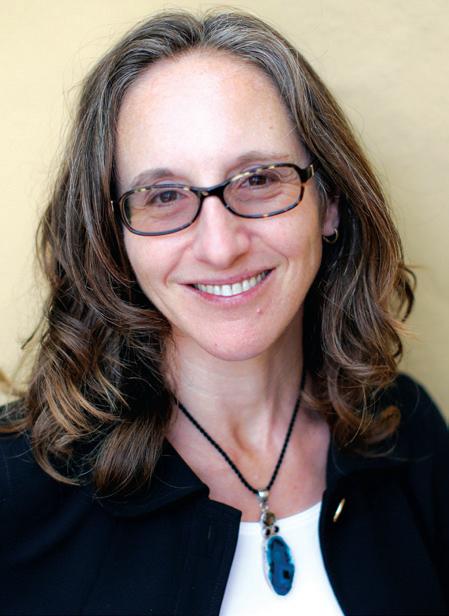
When we moved in 2013 so I could take a job at UC Berkeley, I wanted to write a children’s story of our time in Altadena. I thought every child should know a place like Altadena existed, a sheltering, community-centered and easily navigable town.
For us, Altadena was magical. From our front door, we could see the San Gabriel Mountains standing tall and majestic. We lived four blocks from the greatest bakery-cafe, Patticakes. Mira and Sam were 3 years old and 5 months old, respectively, when we moved from a Pasadena townhouse to La Paz Road in Altadena. The street stretched one long block, high up in the foothills; few cars passed through, allowing kids to play ball in the street and neighbors to gather. On the 4th of July, when the Altadena Country Club hosted its fireworks display, all our neighbors set up chairs and blankets in their front yards and driveways to watch.
La Paz was a microcosm of the diversity of Altadena — its artistic creativity, its haven for Black families, its religious communities. We had artists, actors and musicians, nurses and educators, and at least one engineer (my husband). We lived five minutes from the Pasadena Jewish Temple and Center and the Weizmann Day School. Our Catholic neighbors lived close to Saint Elizabeth of Hungary Catholic Church and St. Elizabeth Parish School. The neighbors two doors down sent their kids to Saint Mark’s School. Both PJTC and St. Mark’s burned down in the Eaton Fire in January. The Saint Elizabeth church and school miraculously survived.
Our neighbors had a high-school daughter who frequently babysat our kids. The mom two doors down coached her daughter’s t-ball team that Sam joined. When another neighbor took her morning walk, she brought our newspaper to the front door. She and her husband, a legendary jazz drummer, bonded with us over politics, especially when we put an Obama sign in our yard before the 2008 election. Yet another neighbor hosted an annual Halloween party, gathering the neighborhood kids to trick or treat
(OEA) has created an unwelcoming or unsafe environment for Jewish students across the district, citing a December 2023 “teach-in” as one piece of evidence.
Toward the end of the article, a flyer for a union-led information session called “Teaching Palestine in 2025” was cited as further evidence of the union’s continued bias against Jewish students.
As a Jewish member of OEA, I attended that very information session the day after reading the article. Upon arrival I encountered two veteran Jewish teachers leading the session and facilitating a diverse group of participants (including several
together down our street. One neighbor was the kids’ favorite nurse at their pediatrician’s office; her politics could not have been more opposite to ours.
The most remarkable example of community came when I received a phone call from a neighbor as I was driving home from work. He saw bees swarming above our chimney. Before I got home, he and his friend rescued our caregiver Desiree and our children, barefoot, from the house, then
retired regular at Patticakes. It hangs on our wall, alongside Ansel Adams photos of Yosemite.
It is so hard for me to write about the destruction of the Pasadena Jewish Temple and Center. It holds so many memories, and so many people dear to us are congregants. My kids grew up at PJTC, and we met our closest friends there, the kind who stick with you after you move. Mira and Sam attended B’nai Simcha Pre-School before it relocated to the grounds of PJTC. Its facilities burned down alongside the sanctuary. B’nai Simcha’s founding director, Judy Callahan, is an incredible Jewish educator, knowledgeable about early childhood education, Jewish education, creating learning through play and instilling love for Judaism. She was our hook.

After their preschool years, Mira and Sam attended Weizmann Day School, housed on the grounds of PJTC, which became their home away from home. They knew every nook and cranny. The playground was redesigned while we were there, spearheaded by a group of parents. It’s hard to believe all of that is gone.
During my first parent-teacher conference at Weizmann, I looked out the window to see a peacock peering down at us from atop a picnic table. The peacocks ran wild in Eaton Canyon and were known to stop traffic on Altadena Drive. I wonder whether the peacocks survived.
vacuumed and sealed up the fireplace. Hours later, after the bee swarm was removed from our chimney by fumigators, we were allowed to return. Unfortunately, Mira stepped on a remaining bee with her bare foot, but that one sting made me think how much worse it could have been if our neighbor hadn’t rescued our kids.
Beyond La Paz, I loved walking the four blocks to Patticakes. It wasn’t just that it had the best croissants, muffins and cakes. It was the neighborhood regulars — the retirees, the families with young children and folks on their way to and from work. Patticakes captured a slice of everyday Altadena, including its political, social and economic diversity. When we moved away, I bought a black-and-white photo of San Francisco’s Fort Point from a hobby photographer and
I was a board member of PJTC for my last four years in Altadena. As vice president of membership, I worked to bring in young families. In the warm summers, when Kabbalat Shabbat services took place on the synagogue’s patio, we lured families with an ice cream social and picnics on the grass. By the time we moved away, I knew so many congregants, spanning several generations.
Our kids have thrived in the Bay Area, but we all left a piece of our heart in Altadena.
I know places don’t stay the same. Patticakes closed its doors following the pandemic. Weizmann closed too. Some friends moved away. But Altadena has remained familiar. When I really ask myself why the fires broke my heart, I think of the people on La Paz Road, at PJTC and in the community at large who made me feel more at home than I have ever felt before or since. n
other Jewish members) in nuanced discussion around teaching strategies to support inclusion and respect for all people. I even heard one teacher speak happily about the marked reduction in antisemitic behavior that she observed in her class after they participated in the 2023 teach-in. Not so scary after all.
KATIE KELLY-HANKIN | BERKELEY
With friends like the Socialist Workers Party…
Your glowing article “Local members of Socialist Workers Party defy the far left on Israel” (Jan. 21, online) gives the
impression that you did not look too deeply “under the hood.” Having just spent some time I can’t get back perusing its website, themilitant.com, I can tell you that among other things, it seems oddly supportive of North Korea’s government, has an article called “‘Enshrining’ abortion weakens fight for women’s rights” and has a lot of complaints about “woke” and transgender people.
This is not a group whose support about which I would boast. “With friends like these, who needs enemies?” is more like it.
FILM | MAYA MIRSKY | J. STAFF
Now in its 12th year, the Jewish Film’s Institute short WinterFest is showing half a dozen films at San Francisco’s Vogue Theatre, kicking off with the Bay Area premiere of “Among Neighbors,” a documentary directed by Berkeley-based Yoav Potash and executive-produced by Anita Friedman, longtime executive director of S.F.-based Jewish Family and Children’s Services. It is screening once, on Feb. 18, and is co-presented with the San Francisco IndieFest.
The documentary combines real footage and handdrawn animation to tell the chilling story of a small town in Poland both before and after World War II. It is based on research that Friedman and her family did into their own roots and some of the secrets that were uncovered.
For bibliophiles, “Free for All: The Public Library” is a must. Co-directed by Dawn Logsdon and Lucie Faulknor, both of San Francisco, the uplifting documentary celebrates the library as a civic home for the masses where intellectual freedom is a core value — and where something amazing happens every day.
Tatyana Tenenbaum’s documentary “Everything You Have Is Yours” explores the complicated legacy of Zionism and art. The film follows Israeli American choreographer Hadar Ahuvia as she examines the Arab roots of the Israeli folk dances she grew up with and grapples with the issues she uncovers. Tenenbaum and Ahuvia will also join a Feb. 23 festival panel discussion on “Creative Interventions: The Role of Art in Healing Political Division.”
Also showing at WinterFest will be “Outsider. Freud,” a documentary on the legacy of Sigmund Freud, as well the darkly comedic “Most People Die on Sundays” and the first three episodes of “The Zweiflers,” a critically acclaimed German television series about a modern Jewish family’s everyday challenges.
Meanwhile, Jewish films are screening for free in Santa Cruz County. The Santa Cruz Jewish Film Festival is already underway and runs through May 25.
On Feb. 9, the festival will present “Kidnapped,” in collaboration with the Dante Alleghieri Society, at Cabrillo
College. The “based on a true story” film tells about a Jewish boy living with his family in Bologna, Italy, who was secretly baptized by his nanny as an infant and later taken from his family to be raised as a Christian.
On Feb. 16, “The Killing Roads” will be shown at Temple Beth El in Aptos. This film, from director Igal Hecht, documents horrific acts perpetrated on Oct. 7, 2023, on two Israeli highways, where terrorists killed 250 people.
On March 8, again at Beth El, a slate of short films will be shown, including “If Only,” by Santa Cruz resident Sherry Halperin, about a Muslim woman and Jewish woman who discover what they have in common.
More movies follow through May 25. Check out the Santa Cruz fest at tinyurl.com/5sshcxvu.
JFI WinterFest Feb. 18, Feb. 22-23 at the Vogue, S.F. Festival pass $75 members, $100 general. (Pass does not cover “Among Neighbors.”) Single tickets $15 members, $20 general, $19 seniors/students. Panel, $10. jfi.org/programs/winterfest-2025
From the opening scenes of “Bad Shabbos,” the centerpiece film of the upcoming Sacramento Jewish Film Festival, you know you’re in for a wild comedic ride.
Nice Jewish boy betrothed to a nice Catholic girl? Check. Parents of the bride coming for dinner? Check.
Kid brother who can’t keep his mouth shut? We’re off and running.
The 2024 comedy rolls all the stereotypes of New York Jews into one fast-paced, well-acted entertainment that still manages to say something about family and about growth — the concepts that put the “warm” in “heartwarming.”
Festival director Teven Laxer told J. that “some of the scenes remind me of ‘Annie Hall,’” Woody Allen’s angsty 1977 comedy about interfaith relations.
“What I really love is having a theater full of people laughing,” Laxer said. When he saw the film at the San Francisco Jewish Film Festival last summer, “I laughed so hard I missed some of the lines I had started laughing at.”
The Sacramento Jewish Film Festival, a program of the Jewish Federation of the Sacramento Region, has presented films related to Jews and Judaism since 1997. This year, 11 films will be screened live at the Crest Theatre from Feb. 20 to 23, followed by 14 films that will stream online from Feb. 24 to March 9. About half are foreign, from Israel or other countries. Some have talks after the screenings.
The program includes three regional premieres. “Welcome to Yiddishland,” a documentary about a global movement of artists reviving Yiddish language and Jewish identity through their art, is billed as a Western U.S. premiere. The timely Israeli documentary “Checkpoint

Women: Memories,” about Machsom Watch, an organization of Israeli women who act as human rights observers at checkpoints between Israel and the West Bank, is a Northern California premiere, as is the nostalgic feature “The Blond Boy From the Casbah.”
Also on the program is the touching new Israeli feature film “Bliss (Hemda).” The tender domestic drama explores the lives of both a 73-year-old Israeli man who is dealing with impotence, and his vibrant second wife, alongside the web of family relationships they navigate. Despite these
mundane details, director Shemi Zarhin brings forth a sense of the complexity of everyday Israeli life.
“It’s just a sweet intersection of real life in Israel,” said Laxer, describing the film as “poignant and relevant.”
Also playing is “Love in Suspenders,” an Israeli rom-com about a mismatched widow and a widower who fall in love, and “Sabbath Queen.” The 2024 documentary follows the unconventional Rabbi Amichai Lau-Lavie’s journey to reinvent Jewish ritual and religion.
More views about Israel and Judaism are found in the diverse program of streaming films, which in Laxer’s words, touch on “practically the whole range of the post-war Jewish experience in the 20th and 21st centuries.” Be sure to check when purchasing tickets whether your chosen streaming films have any geographical restrictions. n Sacramento Jewish Film Festival Feb. 20-23 at Crest Theatre, 1013 K St., Sacramento,
FILM | MAYA MIRSKY | J. STAFF
The Jewish film festival in Contra Costa County started small in 1995, with just four movies. Thirty years later, the East Bay International Jewish Film Festival is set to screen more than 20 films in theaters and online in February and March.
“We pick films that will be remembered and talked about for long after the festival is over,” said longtime festival director Riva Gambert.
In-person screenings will take place at the Century 16 in Pleasant Hill from Feb. 22 to 27, and at Vine Cinema in Livermore on March 16. Sixteen films, including some not shown in person, will be available online from March 9 to 20.
For nearly two decades, the festival was affiliated with the Jewish Federation of the East Bay and the Contra Costa JCC. In 2016, it spun off into an independent entity.
This year, the film festival kicks off with 2024’s “Midas Man,” a fictionalized account of the life of Brian Epstein, the first manager of the Beatles, starring Jewish actor Jacob Fortune-Lloyd. Epstein “discovered” the Beatles, secured their first record contract

and managed them until his death from an accidental overdose in 1967 at age 32.
“We’re delighted to open our festival with ‘Midas Man,’ a British light drama, and close the in-theater part of our event with the Israeli drama ‘Soda,’” Gambert said. “They’re both new films that our audience will be glad they saw.”
“Soda” stars Lior Raz, of “Fauda” fame, and Rotem Sela. The story is set in the 1950s and is based on director Erez Tadmor’s own family. Raz plays a tough but haunted former anti-Nazi partisan, now living in Tiberias. When he meets a beautiful new neighbor, played by Sela, he falls for her — but begins to suspect she collaborated with the Nazis during her time in a concentration camp.
Another highlight in the festival comes from Nir Bergman, the esteemed Israeli director known for the TV show that later became the American series “In Treatment.” His new film, 2025’s “Pink Lady,” tells the story of an ultra-Orthodox couple after the husband is blackmailed for his homosexuality and the wife must confront her feelings, both about



him and the values she has taken for granted. It was written by Mindi Ehrlich, who was raised in the haredi community. Also showing is “Auction: The Stolen Picture,” a 2024 film directed by Pascal Bonitzer. It’s a “thrilling satire about the
highbrow art world of Parisian auctioneers.” There’s also a new documentary about songwriter Diane Warren, who has made hits for artists as diverse as Aerosmith and Celine Dion.
Jewish film festival favorite “Sabbath Queen,” about Amichai Lau-Lavie, a rabbi and drag queen, will screen at the fest, as will “Mazel Tov,” an Argentine comedy about a family coming apart at the seams at a bat mitzvah, and “The Glory of Life,” a fictionalized account of the love story between Franz Kafka and Dora Diamant.
Festivalgoers will also have a rare chance to see “Turn Left at the End of the World,” a well-loved Israeli movie from 2004 about Indian families in Israel in the 1960s who have to come to terms with their neighbors and a new life in the Negev desert. n
East Bay International Jewish Film Festival Feb. 22-27, Century 16 in Pleasant Hill, and March 16, Vine Cinema in Livermore. Online, March 9-20. Theater festival pass $180. Individual tickets $12$15. Online passes $180. Individual online tickets $13.50, on sale Feb. 10. eastbayjewishfilm.org
Does your organization have an anniversary coming up? Do you want to celebrate its rich history and share your successes with the Jewish community?
Let J. help you tell your story through our archives, going back 130 years to our founding as The Emanu-El in 1895. J. can help you bring your organization's past to life through stories, editorials, advertisements and more.
If you have an anniversary coming up, let us know! Create a memorable chronicle of your organization’s proud history, adding meaning to celebrations and anniversaries, whether marking 25, 50, 75, 100 years or more!
Contact Steve Gellman [steve@jweekly.com] at least six months before your milestone for pricing and a sample copy. Let us help you create an invaluable gift for your community.
IDEAS | NIVA ASHKENAZI | J. STAFF
Asking how Jewish culture has evolved over time may be just as important as asking where it has best flourished, according to New Yorker writer Adam Gopnik.
For him, the answer is nestled in the disparate chapters of history as Jews have repeatedly migrated to cities.
About 350 people listened at the JCC of San Francisco on Jan. 21 as Gopnik wove a thread through his decades of writing on Jewish Scripture, history and culture — exploring their relationship to cities, both ancient and modern. His position on city life is clear.
with Jewish Theological Seminary Chancellor Ismar Schorsch after getting invited to serve as the “Purimspieler” for the Manhattan-based Jewish Museum’s Purim Ball.
At the time, Gopnik wanted to gain a deeper understanding of the Book of Esther.
At the Jan. 21 lecture, more than 20 years later, he reframed the story of Esther as an ancient symbol of how Jewish culture thrives in cosmopolitan environments.
“The point of the Book of Esther is exactly that Esther can be of her people and of the adopted Persian life of the king who she marries, without it being contradictory,”
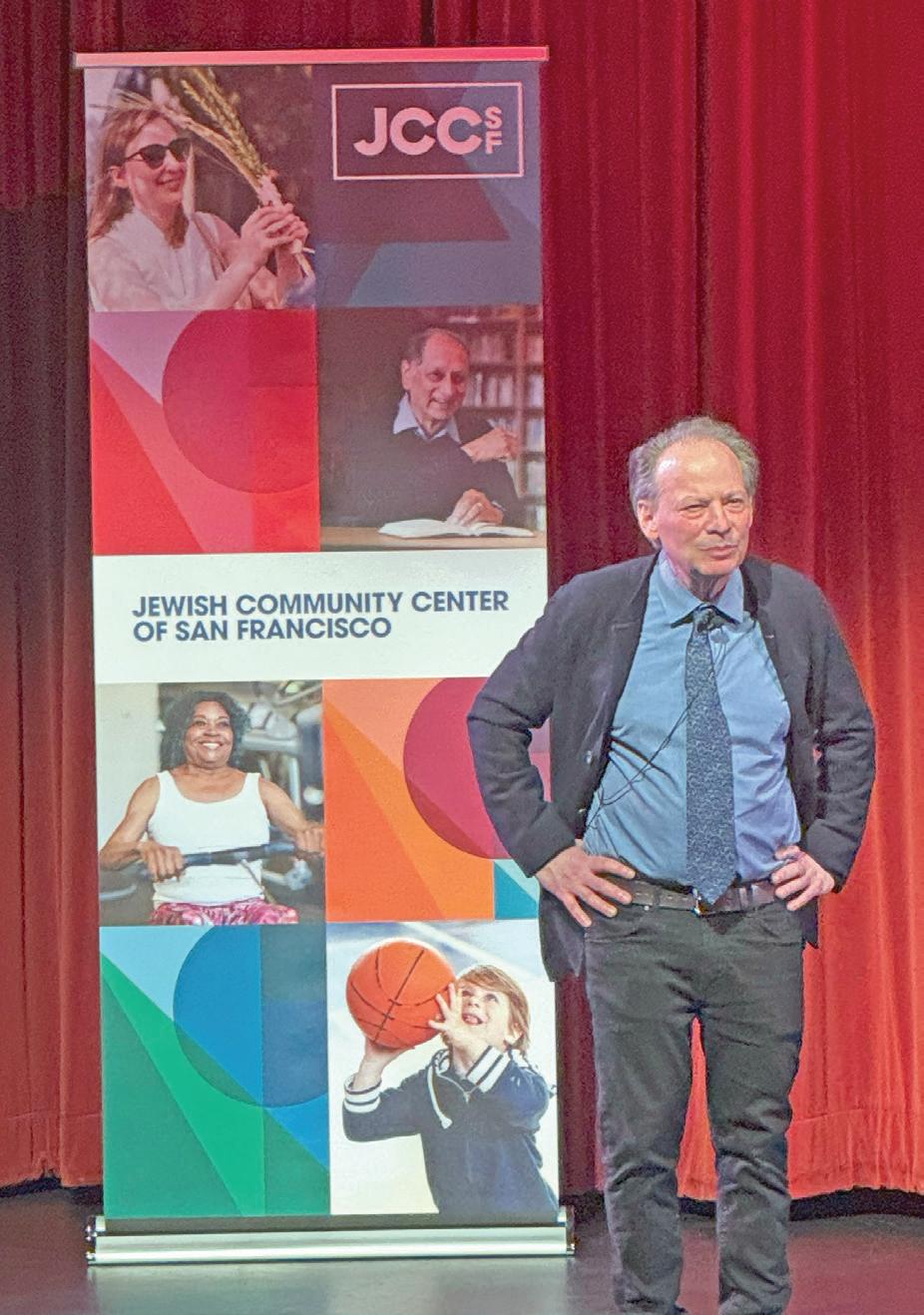
“The best lives are double, and the best communities are ones that have the city virtues, the particular cosmopolitan virtues of passing from block to block, learning,” Gopnik said. “Wine and rapture, those pagan joys, are good opiates. Coffee and consciousness, the Jewish ones, are better.”
JCCSF partnered with the Contemporary Jewish Museum to invite Gopnik as the Marilyn Yolles Waldman Distinguished Speaker, part of a series launched by the CJM last year. Because the CJM has temporarily closed its doors due to financial problems, JCCSF provided the venue for this year’s lecture.
Gopnik opened his lecture by calling back to “A Purim Story,” a New Yorker piece he wrote in 2002, about his consultations
“Wine and rapture, those pagan joys, are good opiates. Coffee and consciousness, the Jewish ones, are better.”
Writer Adam Gopnik
Gopnik told the audience.
But he also did not sugarcoat the history of Jewish urban life as an ever-peaceful coexistence with other cultures and religions. When Gopnik was invited in 2016 to speak at the Metropolitan Museum of Art in honor of its exhibition
“Jerusalem 1000-1400: Every People Under Heaven,” he recalled his surprise at learning how swiftly the Crusades tore through the delicate social fabric among the Jewish, Muslim and Christian inhabitants of the holy city.
“That uneasy practice of coexistence not only dissolved very rapidly when the Crusades came, it dissolved in blood in the most horrific ways imaginable,” Gopnik said. “How do you turn the human practice of coexistence, however uneasy, into an ongoing principle of pluralism that not only sustains a kind of coexistence, but insists on the mutual respect of different groups?”
In an attempt to answer that question, Gopnik referred to his readings on the role
of 18th- and 19th-century European coffeehouses as engines of the Enlightenment, inspired by the works of German philosopher Jürgen Habermas and Hebrew literature scholar Shachar Pinsker. Jews recently arrived from the shtetl found solace in these urban coffeehouses among writers, philosophers and artists.
“Coffeehouses were where that double consciousness of modern Jewishness was made,” Gopnik said. “[They] created the kind of space in which it was possible to escape the narrowness of your own identity while asserting the Jewishness of your identity as a writer or thinker.”
That paradoxical ability of Jews to assimilate into local cosmopolitan culture and civil society while maintaining their unique tradition is the very thing, Gopnik said, that drove the Nazis to pursue the elimination of the Jewish people.
In what he describes as the hardest piece he has ever written for the New Yorker, Gopnik closely examined in 2020 the life of Dr. Josef Mengele, including his infamous post at Auschwitz where he performed
horrifying medical experiments on Jewish prisoners.
What’s stuck with Gopnik to this day was the extent to which Jews’ flexibility and versatility threatened the pure Aryan racial identity the Nazis strove for.
The assimilated Jews of Western Europe, Gopnik said, were the “real danger because they speak two tongues at once, they live two lives at once, they understand what it is to be practitioners of their own faith, and yet at the same time participate in the broader democratic enlightenment culture of yore… capable of having plural identities.”
Rather than tracing the origins of this quality to a specific moment in history, Gopnik said that the ability of the Jews to thrive in diverse cosmopolitan settings is baked in.
“Jewish tradition, in its very nature … is mutable, changing, liquid and liminal,” Gopnik concluded. “The great virtue of these 25 years I’ve spent studying Jewish history, Jewish writing, Jewish experience is to make us aware of the special virtue, the unashamed virtue, of living double lives.” n
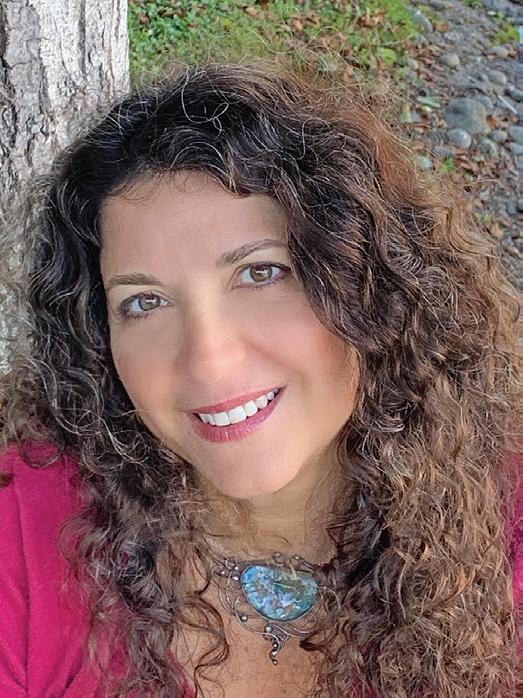
You can take pride in the success of our particular match … we feel that it was “b’shert.” Dr. Lou F. in San Francisco
Best money I ever spent! True love is truly priceless. We can’t thank you enough. I.F. in S.F. Bay Area

STARTUPS | MAYA MIRSKY | J. STAFF
The two major fires that ripped through Los Angeles in January killed 29 people, destroyed 16,000 homes and businesses and consumed nearly 38,000 acres. It’s led people to wonder if any of it was preventable.
Climate change, including unpredictable weather and drought, means that fire danger in the West has never been higher. Stopping that kind of destructive spread is what an Israeli startup called FireDome seeks to tackle with its monitor and suppression system, which it will test in Northern California in 2025.
“Almost every year there’s a huge fire — two, three fires — that create havoc in California,” Gadi Benjamini, co-founder and CEO of FireDome, told J.
FireDome is named after Israel’s Iron Dome, the missile defense system that relies on precisely targeted launchers intercepting airborne threats from neighboring enemies.
The technology behind FireDome isn’t quite that ambitious, but the concept is similar — both use airborne defense. For FireDome, cameras are set up on a property to detect fire lines or spot fires caused by flying embers. Once identified, a launcher sends a capsule of fire retardant where needed.
“The concept was creating kind of a peripheral protection around the property, any property,” Benjamini said. “It could be an agricultural property, it could be utilities, could be a neighborhood, could be historical landmarks.”
Seth Schalet is CEO of the Santa Clara FireSafe Council, a nonprofit that works on wildfire risk reduction projects, sells fire detection tech and runs evacuation and fire safety workshops in Santa Clara County. Schalet, who is also on the advisory board for FireDome, sees potential in the technology.
“There really isn’t anything on the market today that goes after what’s known as spot fires,” Schalet said. Those are the fires that pop up when embers are carried by the wind and end up starting fires elsewhere.
Winds were the major driver behind the quick spread of the Palisades and Eaton fires in the Los Angeles area.
Wade White, a former assistant chief of the Los Angeles Fire Department, is a consultant to FireDome, advising the
company on ways to promote its use by fire departments as well as property owners. He said the technology’s potential to put out spot fires could be especially valuable.
“You usually get spot fires with a wind-driven fire that could be a quarter to half mile downrange from the fire itself. And if we could hit those spot fires, this might be pretty beneficial,” he said.
also been in talks with utilities in Southern California and resorts in Lake Tahoe, he said.
“I think California is really interesting in many ways for FireDome because it’s a state with many different markets,” Schalet said. “Each of them has different climatic challenges, different topography challenges.”

White also sees promise in a mobile version, where cameras can monitor fire triggers like lightning strikes.
“If you’ve got technology that’s monitoring these lightning strikes that take place, it’s going to really give us good situational awareness on what’s going on in a massive forest, and maybe be able to stop these fires, or at least slow them down, before they turn into these mega-fires,” White said.
The system will be tested later this year in Northern California, which Benjamini said was a perfect location because of the variety of terrain that’s under threat.
“We have two vineyards, one in Napa and one in Sonoma, that we’re partnering with,” Benjamini said. The company has
DANCE | MAYA MIRSKY | J. STAFF
Chaos, stillness and movement will collide onstage when Israel’s Batsheva Dance Company appears for two nights in February at Cal Performances in Berkeley.
Israel’s premiere dance company, based in Tel Aviv, will present the Bay Area premiere of “MOMO” on Feb. 22 and 23. The 70-minute piece reflects the company’s lithe athleticism and seeks to embody duality.
“‘MOMO’ has two souls,” according to the event website. “One sends long roots to the depths of the earth — a soul that embodies archetypes and myths of hardened, raw masculinity, and the other is in a constant search for an individual and distinct DNA.”
The choreography is set to the music of Laurie Anderson, the Kronos Quartet, Philip Glass and Arca. The piece does not shy away from challenging the audience, according to the Jerusalem Post. “Chaos is something that does not
frighten us in the least,” choreographer Ohad Naharin said at a press conference in Israel to launch the piece in 2022. “The opposite is true. Chaos is very present in the how and the way of how we work. In dance, we have the ability to use chaos to speak about what we want to speak about.”
In the Bay Area, the 2017 Tubbs Fire in Napa and Sonoma counties killed 22, destroyed 5,600 structures and wiped out URJ Camp Newman. The 2020 LNU Lightning Complex in the same counties killed five and destroyed 1,500 structures.
Benjamini, who served more than a decade in the Israel Defense Forces, started FireDome last year. He and co-founder Adi Naor Pomerantz, a materials engineer, decided to create the company after hearing about the need for better solutions in the fire industry as climate change increases risk factors. Benjamini said there’s crossover between his work in the IDF and at FireDome.
“I think there are a lot of similarities between how you plan defense and protection strategy and how you plan a strategy to defend yourself or the community from catastrophic disasters such as wildfires,” he said.
The next step for FireDome is to move its headquarters from Tel Aviv to Santa Clara County, which Benjamini is prepping for right now, and to start testing in the field at some of the state’s most vulnerable properties. There will be challenges along the way, he said. Flying capsules, even if biodegradable, could face regulatory issues. The launcher must still be perfected. And people need to be convinced it’s safe, effective and worth the cost. But Benjamini is confident, especially when he looks at fires that have already pummeled California in past years.
“We could have been there and helped prevent some of the damages,” he said. n
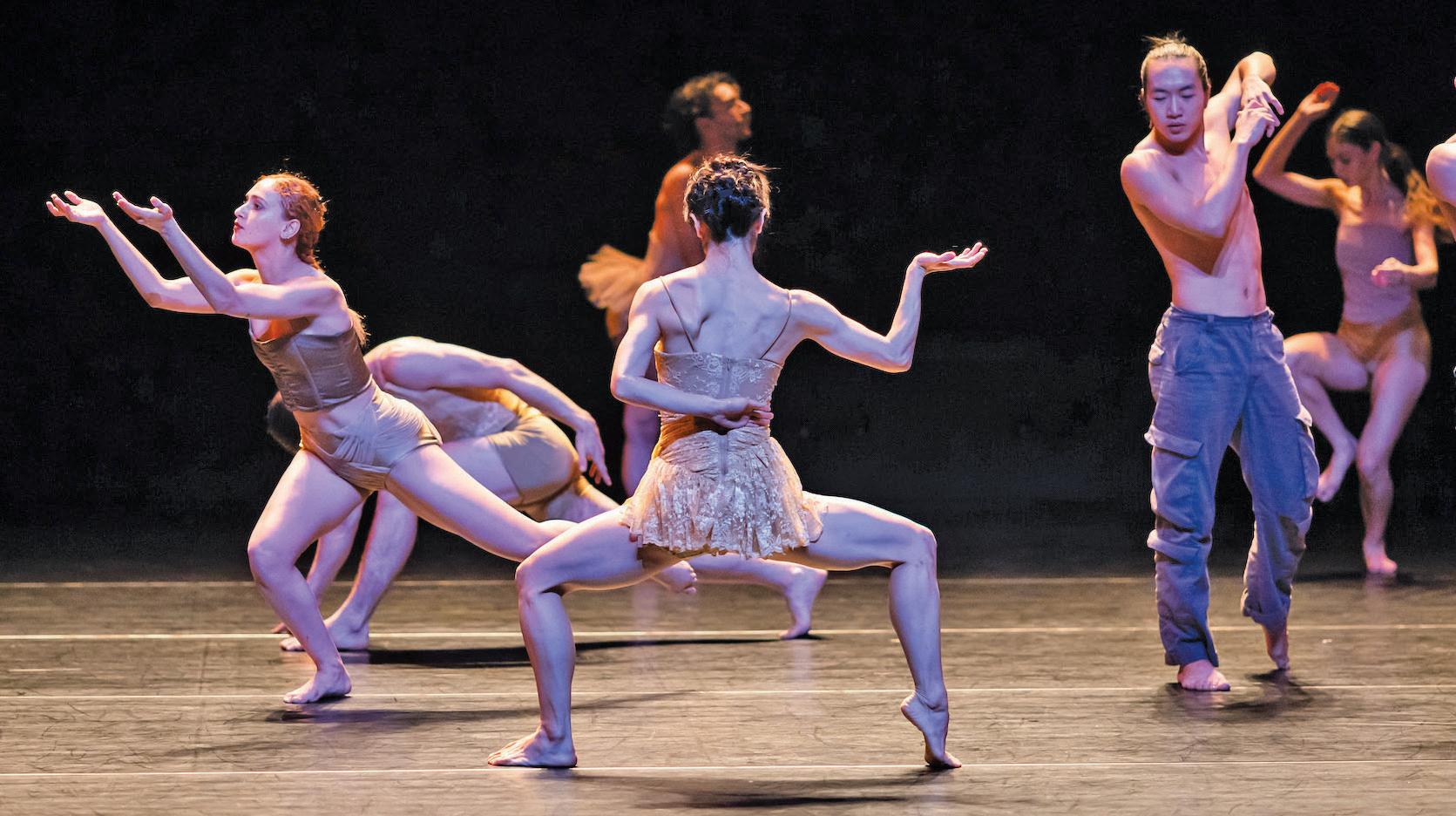
Naharin has been Batsheva’s choreographer since 1990. He’s also a star in his own right as the founder of Gaga, a system for expression through movement that is popular worldwide. (Classes are available in San Francisco.) He was the subject of the 2015 documentary “Mr. Gaga.”
Batsheva was founded in 1964 by Baroness Batsheva de Rothschild, with Martha Graham, the esteemed modern dance pioneer and a mentor to Rothschild, serving as its
artistic adviser.
Batsheva’s upcoming U.S. tour, which also takes it to Los Angeles, Santa Barbara and New York City, faces a call for boycott by a group called the U.S. Campaign for the Academic and Cultural Boycott of Israel. Cal Performances declined to comment on the boycott effort. n
“MOMO” 8 p.m. Feb.
The
TORAH | RABBA SARA HURWITZ
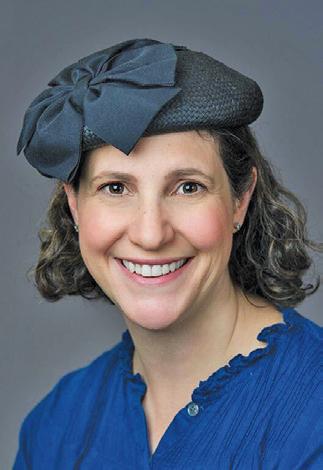
Beshalach
Exodus 10:1-13:16
The miracle of the splitting of the Red Sea in Parashat Beshalach is replete with creation imagery, mimicking the creation story from the Book of Genesis.
In the first chapters of Genesis we learn that the world was chaotic, covered in darkness and God hovered above the surface of the waters. Then God gathered the waters and dry land appeared: “And God said: ‘Let the waters under the heavens be gathered together unto one place, and let the dry land appear.’ And it was so.”
(Genesis 1:9)
In Beshalach, the verse also describes chaos and darkness with God’s presence hovering above. Then the waters are split, and dry land is revealed: “Thus there was the cloud with the darkness, and it cast a spell upon the night, so that the one could not come near the other all through the night. Then Moses held out his arm over the sea and the Lord drove back the sea with a strong east wind all that night, and turned the sea into dry ground. And the waters were split.” (Exodus 14:20-21)
The gathering of the waters in Genesis culminated in God creating living beings, allowing life to flourish on Earth. On the shores of the Red Sea, the splitting of the waters culminated with the creation of a nation, the children of Israel. God reenacts creation in the Exodus story with the Jewish people as the central characters. From this point on, the Jews are called Ivrim (Hebrews), a unified people, a nation to which God has given birth.
The Midrash connects these two creation stories, explaining that the splitting of the sea was a stipulation of the original creation story. In Exodus 14:27, the verse reads: “Moses held out his arm over the sea, and at daybreak the sea returned to its original strength [l’aytano], and the Egyptians fled at its approach.”
The Midrash explains that l’aytano should not be read as “to its original strength,” but rather as tanai (“stipulation”). In other words, the waters returned to the original stipulation that was made at creation. That is to say, during the creation of the world God stipulated that the very waters that God
FEB. 7 | SHEVAT 9, 5785
Light candles at 5:22 p.m.
Shabbat ends Feb. 8 at 6:22 p.m.

drew together would split once again so that God’s nation could be born.
But there is a distinct difference between the creation in Genesis and the re-creation at the Red Sea. It can be argued that there was something lacking in the original creation story. Shortly after the world was created, God destroyed almost all living creatures in the flood and began the creative process again with Noah and his family. The creation at the sea, however, is a creation that endured, a final act of divine creation. What was different about the creation of the Jewish people?
The creation of the world was marked by the words vayomer elokim, “and God said.” God said, “let there be light.” God said, “let the waters separate.” And so on. However, in the Exodus story, at the moment the Jewish people reached the other side, there was no prose — there was song.
Exodus 15:1 tells us: “Then Moses and the children of Israel sang this song to God … I shall sing to God for God is
FEB. 14 | SHEVAT 16, 5785
Light candles at 5:30 p.m.
Shabbat ends Feb. 15 at 6:29 p.m.
exalted.” It is through the medium of song that we are bidden to recognize and celebrate God as the ultimate creator of the world.
The Hasidic master known as the Sefat Emet explains that the word “then” in that verse comes to teach us that Israel had always longed to sing God’s praises, for Israel’s essence is to give testimony to God’s power. But this song could not be sung while the Jewish people were enslaved. It was only after the people were freed that they were able to recognize God as the God of creation at the sea. Then, they could sing.
Creation is sustained through song. Each morning as part of our daily prayer we sing these same verses of song that the Israelites sang at the sea. We are bidden each morning to bring song into our lives. In this way, on each day anew, we must sing out and praise the God of creation. n
This column first appeared on MyJewishLearning.com and is reprinted with permission.
FEB. 21 SHEVAT 23, 5785
Shabbat ends Feb. 22 at 6:36 p.m TU BISHVAT Feb. 12-13 | Shevat 15, 5785
Light candles at 5:37 p.m.
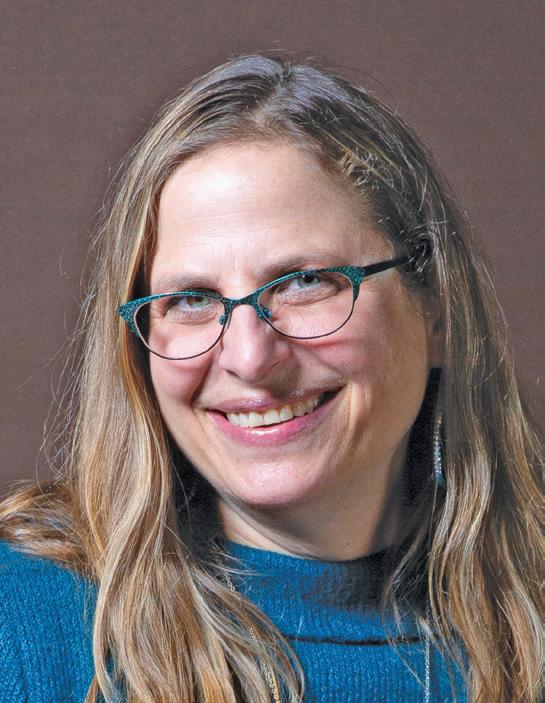
Alix Wall is a contributing editor to J. She is also the founder of the Illuminoshi: The Not-So-Secret Society of Bay Area Jewish Food Professionals.
Gigi’s Wine Lounge is a new neighborhood wine bar and bottle shop in San Francisco. With dishes like a tuna tartare with fish sauce, a Caesar salad with fish sauce dressing and a Wagyu beef hot dog with “pork floss,” it isn’t exactly an obvious candidate to be featured in this column. But there is, in fact, more than one Jewish story to tell.
There’s Madison Michael, the general manager and wine director of Gigi’s, who came late to her Judaism and grew up loving Vietnamese culture. And there’s award-winning Vietnamese American chef and author Tu David Phu, whose first job out of culinary school, at age 23, was at Saul’s Deli in Berkeley.
I learned this bit when I interviewed Phu in 2017 for Edible East Bay, after the San Francisco Chronicle named him a “rising star chef” and just before he competed on Bravo’s popular cooking competition “Top Chef.”
Phu came to Saul’s in 2009, when Peter Levitt and Karen Adelman still owned the popular Jewish deli. They saw his potential and invested in him, even paying for Toastmaster classes to help him improve his communication skills.
Levitt and Adelman jokingly called him Tu “The Jew” Phu.
“I fell in love with Jewish culture and food because I could relate to it like my own,” he told me at the time.

Phu, 39, was raised in Oakland and lived here until very recently, when he moved to L.A. and wrote a cookbook (“The Memory of Taste: Vietnamese American Recipes from Phú Quoc, Oakland and Everywhere in Between,” co-authored by Soleil Ho).
When Phu was opening Gigi’s at 299 Divisadero St., he had one person in mind — and

Ten years ago, when I met Tu, we had such a connection. There were his connections to Judaism and mine to Vietnamese culture. We found kindred spirits in each other. I call him my brother.”
Madison Michael, Gigi’s general manager
Jewish, it was her mother, a spiritual “seeker,” who adopted Jewish practices — and tried to impose her new belief system on the family. Michael was a rebellious teenager at the time and said her mother’s attempts to make the home kosher did not go over well. Michael demanded to know why suddenly the family could not eat foods they’d been eating forever, and her mother’s “because I said so” wasn’t a good enough answer.
It was years later, when Michael was studying gender politics in the Middle East at San Francisco State, that Judaism began to strongly resonate for her, she said.
“What drew me in was the understanding that there is so much in Judaism that is deeply tied to an actualized life,” she said.

one person only — to be the manager and sommelier: Madison Michael. They met a decade earlier and connected immediately on a number of things, including Michael’s love for Vietnamese food and culture. Her father had a Vietnamese business partner when she was young.
“For the first five years of my life, I was eating their food, and spoke Vietnamese as a toddler speaks it,” she said. “Ten years ago, when I met Tu, we had such a connection, both coming from fine dining and being heavily tattooed people raised in the Bay Area. And then there were his connections to Judaism and mine to Vietnamese culture. We found kindred spirits in each other. I call him my brother.”
Michael grew up in Healdsburg and spent some years in Fort Worth, Texas. She has a strong Jewish identity now, but wasn’t raised that way. Though it was her father who was
Michael practices in her own, nondogmatic way. She tries to take Yom Kippur off, but when she couldn’t last year due to a staff training, she still fasted. About being heavily tattooed, she said, “I’m a proud tattooed Jew still loved by HaShem, and if anyone has a problem with that, they can take it up with someone else.”
“My Judaism shows up in trying to leave the world a better place than I found it, trying to be fair, and merciful, and giving tzedakah whenever I can,” she said.
At 34, Michael has a long and impressive resume for someone her age; she said she’s opened 16 restaurants, including Mourad and Merchant Roots, which she co-owned for a time.
While she doesn’t know how long she’ll stay at Gigi’s, since her favorite thing to do is open up new restaurants, she loves it for its uniqueness. She said she isn’t aware of any other wine bar with a Vietnamese menu. And she’s committed to having at least one or two wines available for around $10 a glass, and some snacks on the menu that should
make it a ordable as a neighborhood place.
“I feel really strongly that workers earning minimum wage should be able to get a glass of wine and a snack for less than an hour of their life,” she said. “While I can’t fix the cost of rent or living prices, I can make sure there’s delicious wine at an approachable price point no ma er what you do for a living. We have an obligation as a small business in a residential neighborhood to make sure all people can come here if they want to.”
I was lucky enough to try Gigi’s, and definitely felt it was the kind of place I’d frequent if I lived closer. We loved the playfulness of all the dishes we tried, and it had a sophisticated yet fun vibe.
“We’re trying to be an o ering to this neighborhood and this city, where we’re losing these midlevel neighborhood spaces, where we o er something for everyone,” Michael said, “If you want to come drop $400 on a bo le of Champagne, I’ve got you. If you want to slam sparkling wine in a Chambong with friends” — reader, look it up if you don’t know, but we drew the line at trying one — “I’ve got you. Or, if you just want to read a book with a glass of wine, we can o er that, too.”
Spencer Horovitz, chef of the Hadeem pop-up who is cooking his own interpretation of modern Jewish food, is a semifinalist for the James Beard Awards in the emerging chef category. e Beard Awards are widely considered the Oscars of the culinary world. Hadeem also was named “pop-up of the year” in 2023 by Eater SF.
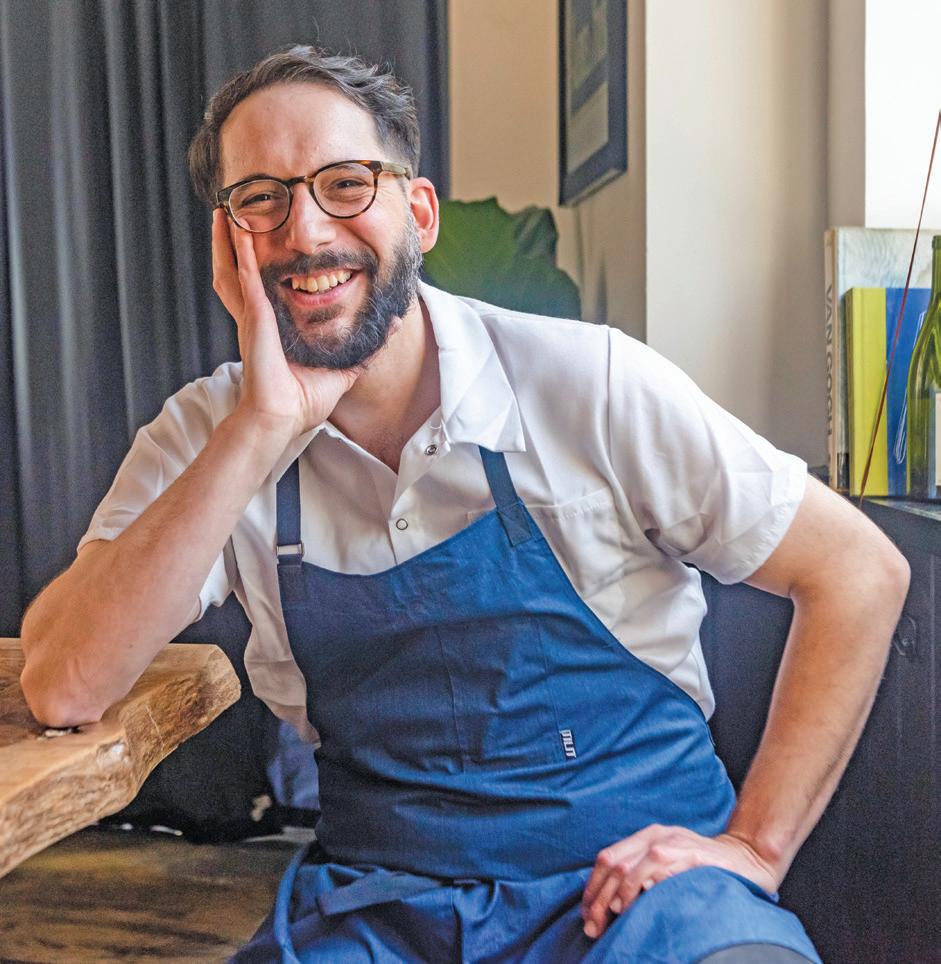
His popups have been wildly popular, with long lines. We first wrote about Horovitz in May 2023 when he started Hadeem, which means “echoes” in Hebrew. At the time, he was o ering an egg noodle kugel with créme fraiche, aged French cheese and black tru es. He’s also known for his love of babka, making both sweet and savory versions.
Horovitz definitely leans into his Jewishness. On his personal Instagram account, he describes himself as an “alter kocker with a ‘rye’ sense of humor.” Meanwhile, the Hadeem Instagram promises some exciting pop-ups in February and March, so look there for announcements soon (instagram.com/wearehadeem).
Ari Weiswasser chef-owner of Glen Ellen Star in Sonoma County, is also a James Beard Award semifinalist, for best chef in California. Finalists will be announced later this year. Weiswasser also owns Park Avenue Catering, where in past years latkes have been among the o erings, Mazel tov to chefs Spencer and Ari!
While many restaurateurs have been holding fundraisers for those a ected by the fires in Los Angeles, SFGate reported that Square Pie Guys founder Marc Schechter not only raised $2,500 for fire relief, but drove down to L.A. to make pizzas for people who lost their homes. e first time we wrote about him, back in 2018, he was making pizza for the homeless in Oakland, so this latest e ort is not at all out of character for the Jewish pizza chef.
Anya El-Wa ar will be competing on the coming season of Bravo’s “Top Chef,” EaterSF just reported. El-Wa ar was chef-owner of the now-closed Birch & Rye, the highly lauded modern Russian restaurant in San Francisco that was a James Beard semifinalist for best new restaurant. It was on our radar, but we missed our chance to write about it in the two short years it was open. El-Wa ar, who is Jewish, was born in Moscow. We’ll be watching to see how she does on “Top Chef,” which premieres on March 13. While there have been Jewish contestants on previous seasons of the popular cooking competition, we believe this is the first time a Jewish contestant from the Bay Area is in the mix. ■
IN FOUR COURSES



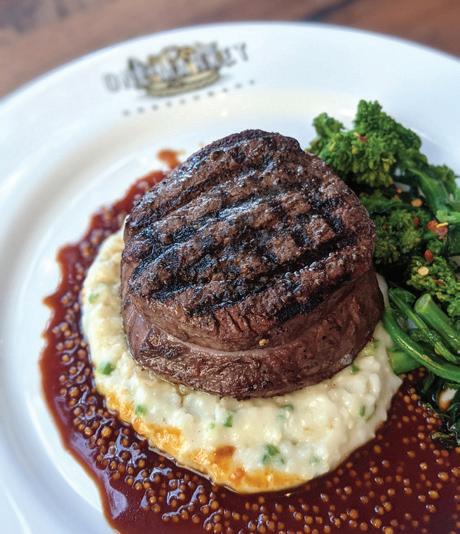
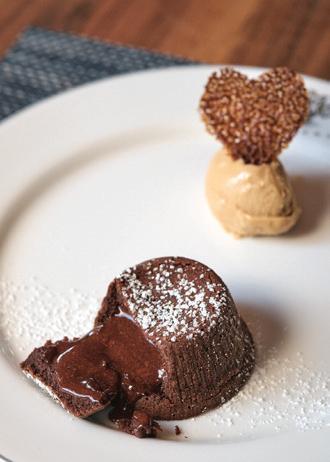
Romance your Valentine with a special dinner on Friday, February 14.
Start your evening with a stroll along the Embarcadero to whet your appetite, then head over to savor Chef Mark Dommen’s mouthwatering menu that will have you swooning, from the White Sturgeon Caviar and Avocado Latke Amuse Bouche to Appetizers, Main Courses and Desserts with plenty of options to please every palate.
It’s the perfect way to say I Love You.
See the menu and reserve your table at onemarket.com
WE’RE READY TO PARTY!
Whether it’s a birthday bash, anniversary celebration, bar/bat mitzvah or any special occasion, we offer the perfect setting for your festivities.
Contact our events experts to get your party started: events@onemarket.com or 415.777.2233





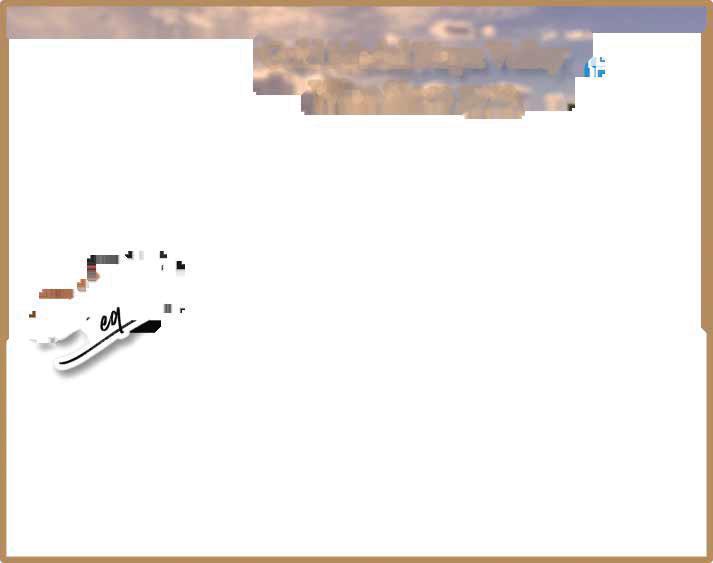
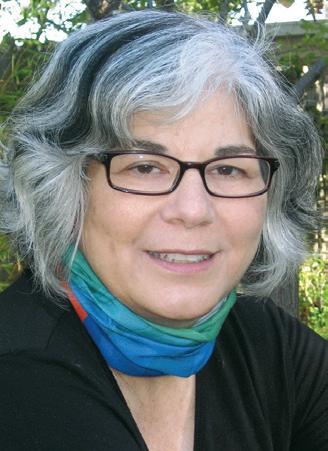
This creamy vegan coconut custard tart has an easy-to-make crust and a topping featuring the four symbolic types of fruits in Tu Bishvat seders. The holiday, also known as the new year of the trees, starts at sundown Feb. 12 and ends the evening of Feb. 13.
When making your own tart, you can substitute your favorite fruits to represent the four symbolic types:
• The first fruit eaten during the seder is hard on the outside and soft on the inside, such as coconut, almonds, walnuts, pistachios and citrus fruits with inedible peels.
• The second fruit is soft with a pit in the center, such as dates, apricots and peaches.
• The third fruit is soft throughout and completely edible, such as berries, figs, seedless grapes and raisins.
• The fourth fruit has a tough exterior and a sweet interior, such as bananas, mangoes, and sabras (cactus pears).
1 tart crust (recipe below), baked and cooled
1 Tbs. date syrup (silan) or agave
1 recipe Vegan Coconut Custard, chilled (recipe below)
¼ cup pomegranate seeds or raisins
1 cup tangerine or orange segments
Serves 6-8
1 cup pitted, dried dates halved lengthwise, or peach or apricot slices
1 cup blueberries, raspberries, blackberries or sliced fresh or dried figs
1 cup banana slices (tossed in lemon juice to prevent browning) or mango slices
Coconut Crust Tart Shell: In a food processor bowl, combine 1 cup flour, ¼ cup finely shredded unsweetened coconut, ⅛ tsp. salt, 1 stick (4 oz.) chilled vegan butter or parve margarine cut into small pieces, 2 Tbs. sugar and 1 tsp. vanilla extract. Process until a shaggy dough ball develops. Scoop up the dough, roll into a uniform ball and flatten. Wrap in plastic and chill for 30 minutes.


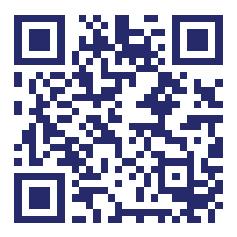
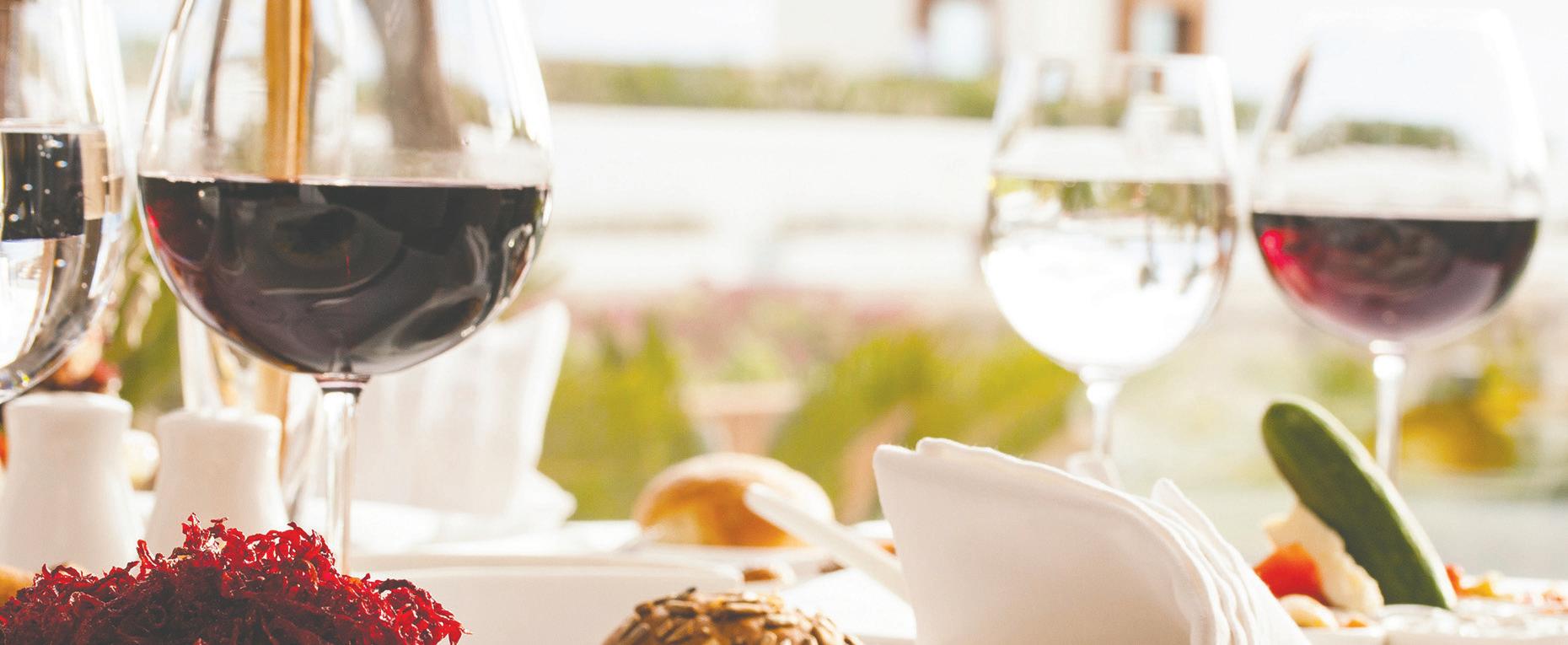
Heat oven to 425 degrees. Press pieces of dough evenly on bottom and up sides of an ungreased 9-inch tart pan with removable bottom. Pierce bottom and sides of crust all over with fork. Place pan on baking sheet and bake for about 16-18 minutes until light brown. Cool in tart pan on rack.

Vegan Coconut Custard: In a saucepan, add 1 can (13.5 oz.) coconut milk, 6 Tbs. sugar, 2 tsp. vanilla extract, 2 Tbs. stick vegan butter or margarine, ¼ tsp. crumbled saffron threads (optional, for color) and ⅛ tsp. salt. Stir over medium-low heat until simmering. In a small bowl, mix 3 Tbs. cornstarch with 3 Tbs. water until dissolved. Whisk into liquid until it becomes glossy and begins to thicken (about 1-2 minutes, do not overmix). Pour into a medium bowl. Stir in ⅓ cup finely shredded unsweetened coconut. Place plastic wrap directly on top of custard. Chill 4-6 hours until thick and cold.
To prepare tart: Brush the bottom of the cooled crust (still in pan) with date syrup. Whisk chilled custard to soften. Fill tart. Using pomegranate seeds to draw lines, divide the top of the tart into four rectangular or wedge-shaped sections. Top one section with tangerines, another with dates, a third with berries and the fourth with bananas. Remove tart pan outer ring. Serve immediately.
Notes: Bake shell up to 2 days ahead. Store at room temperature. Make custard up to 5 days ahead. Keep refrigerated. Use solid, stick vegan butter or margarine, not tub or soft style. Custard recipe adapted from “The Vegan Pantry” by Miyoko Schinner. n
Alexandra Corvin and Eric Walder*
Julie Dorsey and Daniel Leemon
Jill Tonkin-Finegold and Jeff Finegold*
Emily and Dave Fisher
Virginia and Randy Hess
Gilah and Mark Abelson
Jenny Goodman Abrami and Dan Abrami
Betty Denenberg Adler
Nancy Alpert*
Susan Andrade
Edward J. Anisman
Asya and Alex Arzhintar
Vivian and David Auslander
Patricia Avery
Cara and Jonathan Baker
Gail Ben-Zeev
Sheri Benjamin
Rona Miller Berger
Arlene and Dan Berkley
Laurie and Mark Berman
Suzan Berns
Fredi B. Bloom
Nersi Boussina
Marilyn J. Boxer
Bethanie Brandon
Eleanor Bronner
Roy Bukstein
Jerome Burke
Ineko and Joshua Callman
Jeanette and Martin Carr
Alysa Chadow
Harve Citrin
Aviva Cohen
Elly and Steve Cohen
Linda Coon
Coryell and Weinberg Family
Susan David
Daniel Davidson
Elinor DeKoven
Beverly Derish
Marcia Dorfman
Avi Downes and David Bilsker
Diane Ehrlich
Bette Emanuel
Leah Emdy
Bette and Robert Epstein
Nadyne Porter Epstein
Janice and Stephen Farber
Beverly and Bruce Feder
Toby Flax
Janice Fonteno
Joan and Michael Fox
Barbara and Dan Freeman
Janet Frost
Anne and John Fuchs-Chesney
Leslie and Philip Gardner
Robert Gardner
Bob Goldberg
Janet Goldberg
Gayle and Steve Goldman
Ellen Goldstein
Steve Goldstein
Nina and Howard Gorbach
Helene Gordon and Alan Houser
Shirley Gottesman
Lauren and Seth Greenberg
Angeline and David Greenblat
Ina Levin Gyemant
Lea Hallert and Jeremy Korito
Katherine and Newton Harband
Devorah Harris and Larry Abrams
Ellen and Allan Hauskens
Phyllis Helfand
Ruby and Gerald Hertz
Leslie Schwartz Herzberg
Floris and Dan Hoffenberg
Karen and Allan Horn
Julie House and Stan Lekach
Joanne Howard
Leslie Isaacs
Phyllis W. Isaacson
Stephen Jackson
Mady and Mel Kahn
Bonnie Kalbrosky
Josephine Kamin
Adena and Seth Kaplan
Jane Kaplan and Donatello Bonato
Barry Katz
Susan and Gene Kaufman
David Kharakh
Alina Khayms
Allyce Kimerling
Deborah and David Kirshman
Linda and Robert Kiss
Emmeline Klama and Andy Levine
Shirley Klapow
Esther Kletter
Naomi Rebecca Klughaupt
Greg Knell
Gail and Steve Koff
Deborah Kohn
Barbara and Geoffrey Kotin
Felicia Kramarz
Clarissa Kripke and Gail Ludwig
Eunice Kushman
Eric Lamm
Bernard LaPedis
Barbara Lasinski
Karen and Mark Lawrence
Miriam Leiseroff
Ellen Lent
Allan Lerch
Tina and Wayne Levenfeld
Ira Levy
Zachary Libow
Laura Lowe
Cassie and Mickey Luckoff
Elise and Norman Lustig
Valerie Jonas
Tamasin Partridge and Jack Halperin
William Schwartz
Jill and Stefan Zechowy
Denni Mador
Linda and Harvey Matlof
Julie H. Mayer
Shoshana Melmon
Craig Meltzner
Donna Mendelsohn
Malcolm Mendelson
Harry Meyer
Gail and Matthew Mintz
Carol J. Misrack
Joseph Nadel
Sheila Namir
Sarah and Max Neiman
Jane Parnes
Randy and Irving Pike
Lory Pilchik and Rich Bayer
Janis Plotkin
Lori and Harry Price
Fran Quittel
Shelly Ress-Weinstein
Julie and Bill Rettberg
Cindy Rogoway and Joe Goldberg
Arlene and Leonard Rosenberg
Marlene and Stanley
Rosenberg
Lois and Arthur Roth
Jane Tzinberg Rubin
David Salem
Barbara Scharf
Aliza Schnayer
Jeanie and Richard Schram
Sara Segal
Lynne Newhouse-Segal and Edward Segal*
Arna and Hersh Shefrin
Carole and Doug Sheft
Barbara Shufro and David Steuer
Dassi Shusterman
Deborah Sloss
Judy Slotsky and Allan Schwartz
Ilene Sokoloff and Victor Ringel
Beth Solomon and Jeffrey Casper
Eta and Sasson Somekh
Eric B. Stein
Jim Stern
Joan C. Stern
Gail and Gene Taback
Anita and Stuart Tanenberg
Nancy Toder and Dan Closky
Jon Tolson
Debbie Tully and Larry Weisgal
Jacqueline and Steven Tulsky
Carole Veiss
Alice Wald and Paul Overmyer
Jane and Gary Ware
Stephanie and Elliott Warshauer
Robin and Barry Weinzveg
Allison Kent Weiss and Paul Weiss
The Weissman Foundation
Abraham Weitzberg
Lewis Wexler
Peter Wexler
David L. Williams
Deanne and Frank Winer
Gary Winter
Fern Yaffa
Joyce C. Yaffe
Natalya and Michael Zatkin
Marsha Zipkin
Anonymous
We tell the story of Bay Area Jews like nobody else. J. covers the range of what it means to be Jewish today — from politics to culture, from religion to food, from local news to global trends. These are stories you will only find in J.
We’ve been here for 129 years, and we’re not stopping now.
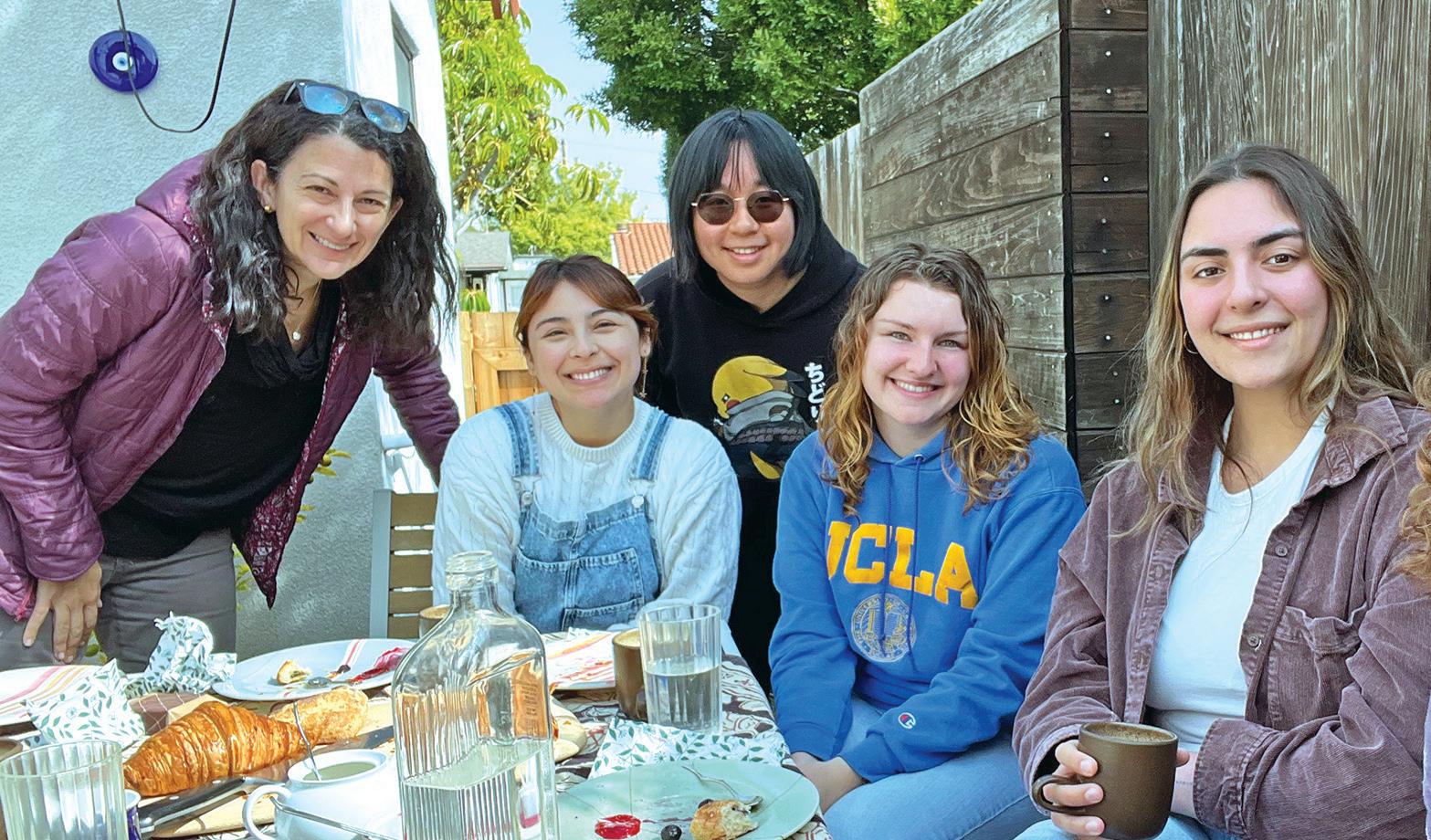
J. is an independent, nonprofit publication and relies on your donations. Say ‘yes’ to local Jewish journalism.
You can make your tax-deductible gift securely at jweekly.com/givetoday, scan the QR code below, or phone Allison Green, development director, at 415.796.0227.
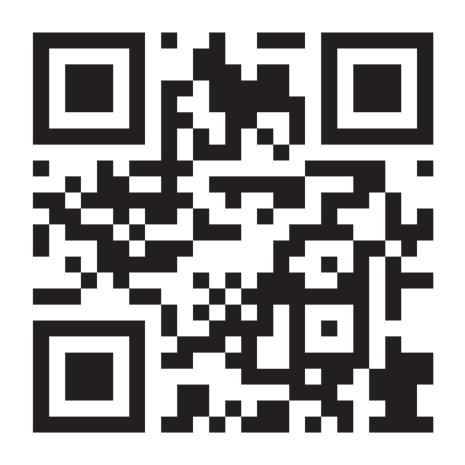
Our Employer Identification Number is 94-1089387 and we are listed as San Francisco Jewish Community Publications, Inc.
Our mailing address is: J. The Jewish News of Northern California PO Box 192604, San Francisco, CA 94119-2604

ROMI DREW CITRON was born on Dec. 20, 2024. She weighed 6 lbs. 5 oz. and was 19.5 inches long. Her Hebrew name is Romi Tziona. She is the daughter of Michael and Carly Citron of Encino. Her grandparents are Eric and Dvora Citron of Orinda, and Steven Rosenblit and Cynthia Keller of Encino. Her great-grandparents are Lorraine Sasner of Rossmoor in Walnut Creek and Rosalind Citron of Fremont.
Romi is named after her paternal great-grandfather, Robert (Bob) Sasner. Grandpa Bob was a Korean War veteran and the ultimate family man: helping raise three children — and later nine grandchildren — while also running his retail stores. He constantly taught us life lessons and also saved room to joke around and have fun. We hope Romi embodies Grandpa’s values of family, service and hard work, shares his commitment to Judaism and Israel, and has a great deal of fun along the way!
Romi’s middle name, Drew, is in memory of her maternal great-bubbe, Doba (Debbie) Rosenblit. Bubbe Debbie was a determined woman who escaped the Vilna Ghetto during the Holocaust and joined the Partisan movement, risking her life to help children escape to safety and freedom. We hope Romi has her bubbe’s bravery and passion for helping others.
HANA GELMAN married NICKOLAS ZURLINDEN on Jan. 23, 2025, at the Santa Barbara County Courthouse. The bride is the daughter of Ingrid Engelberg Gelman and Marc Gelman of San Rafael, and the groom is the son of Natalie and Donald Zurlinden of Santa Barbara. Hana, a pharmacist, and Nickolas, a manufactured home real estate developer, live in Los Angeles and Santa Barbara.
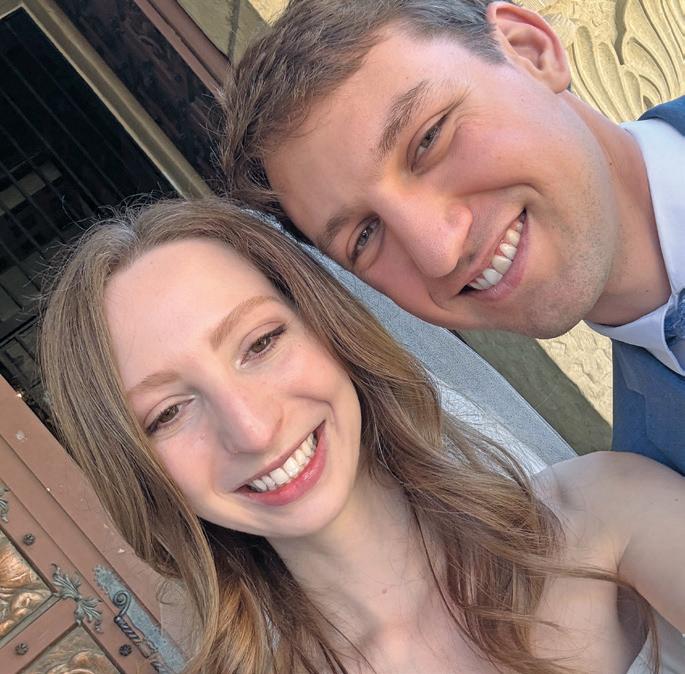

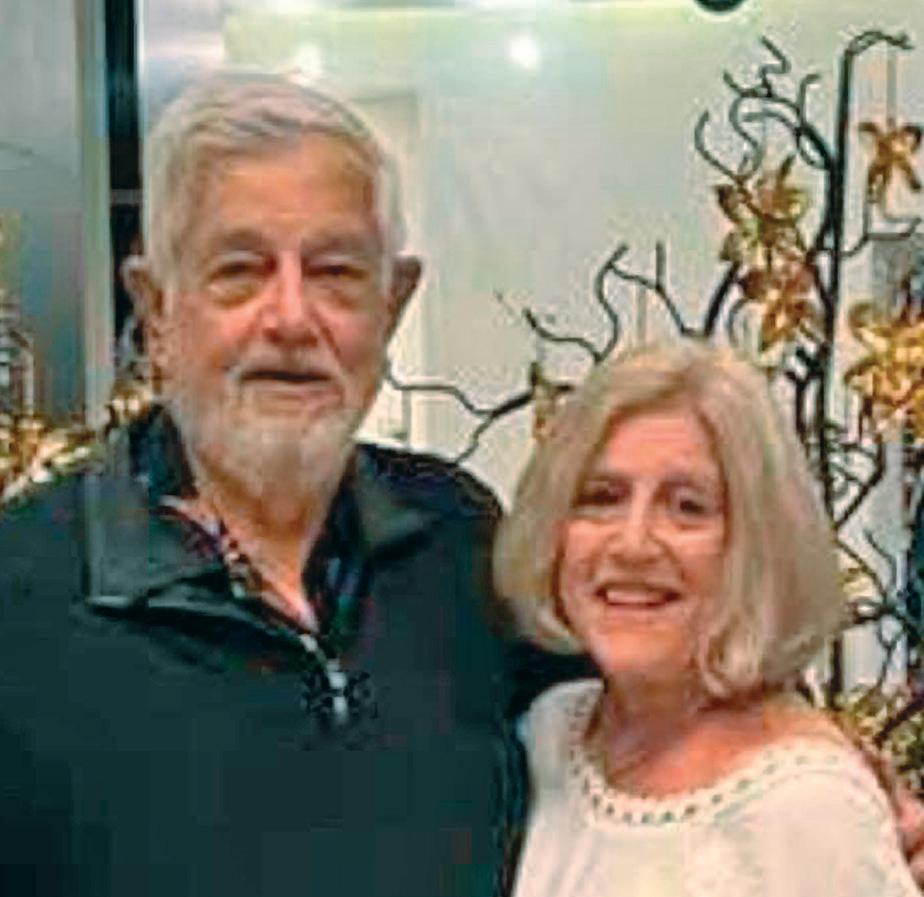
on Jan. 30, 1965. They are a remarkable couple celebrating a remarkable milestone, 60 years of wedded bliss.
They continue to travel the world and enjoy good food and good wine. They like spending time with friends and family and are often found relaxing in Lake Tahoe and Palm Springs. They remain loyal Cal fans (Go Bears!) and are involved in the Jewish community.
Their three children Michele Quiat (Ken), Melanie Roberts (Jeff), Brian Ogren (Sharon) and their five grandchildren Sarah, Megan, Katie, Danielle and Nicholas all wish them many more years of love, laughter and adventure together. Happy 60th anniversary to an amazing couple. Cheers to many more years! If you know either of them, be sure to reach out, they love hearing from old friends.

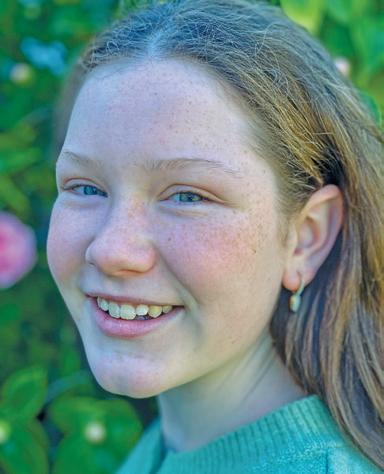
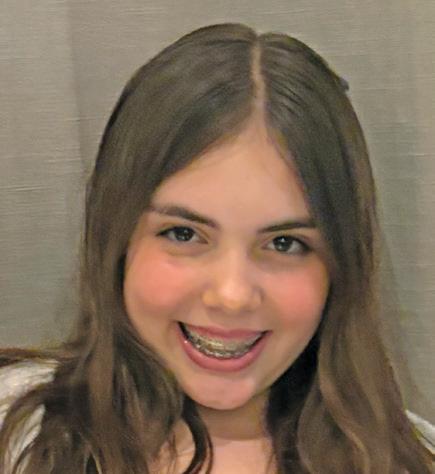
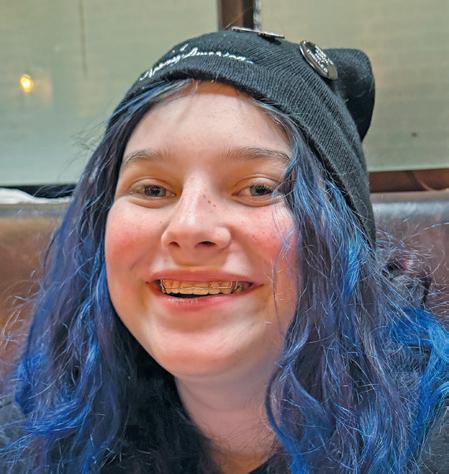
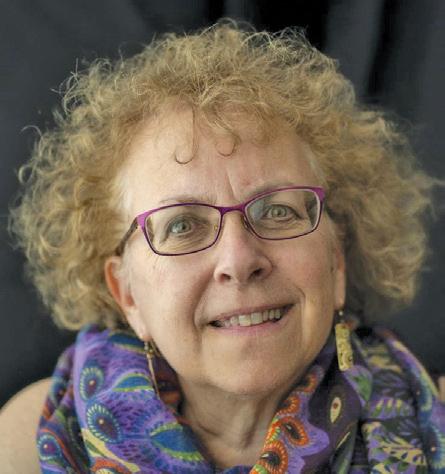
KANIGEL Daughter of the late Charles and Beatrice Kanigel, wife of Laird Harrison and mother of Dashiell and Trevor Harrison, Saturday, Feb. 15, at
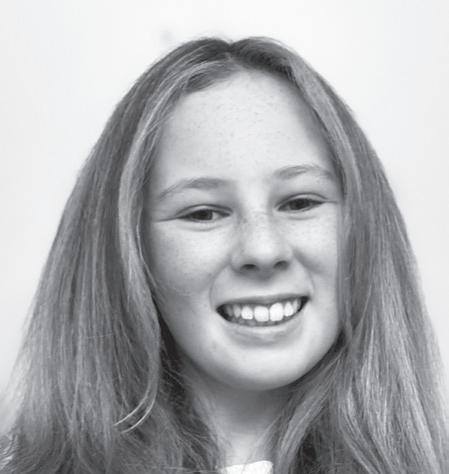
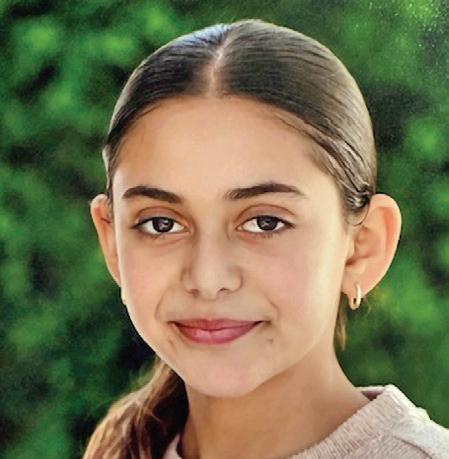
YISHAI BASKIN Son of Aaron and Helem Baskin, Saturday, Feb. 8, at Beth Jacob Congregation in Oakland.
WESLEY BOXERMAN Son of Jen and Jon Boxerman, Saturday, Feb. 15, at Temple Isaiah in Lafayette.
ZOE KARATOV Daughter of Sarah and Michael Karatov, Saturday, Feb. 15, at Beth Chaim Congregation in Danville.
JESSICA SEITLER Daughter of Ti any and Michael Seitler, Saturday, Feb. 8, at Temple Isaiah in Lafayette.
MIA SHERMAN Daughter of Trisha and Greg Sherman, Saturday, Feb. 15, at Congregation Rodef Sholom in San Rafael.
HAZEL MAE WEISS Daughter of Karen and Jeremy Weiss, Saturday, Feb. 15, at Congregation Beth Shalom in Napa.

DAVID H. FOLKMAN
Nov. 6, 1934–Nov. 27, 2024

David H. Folkman, beloved husband, father, grandfather, and mentor, passed away peacefully on Nov. 27, 2024, at the age of 90. Born on Nov. 6, 1934, in Jackson, Michigan, David was the son of Rabbi Jerome D. Folkman and Bessie Schomer Folkman. Jewish values and teaching were woven into his family life and were part of everyday conversations.
David spent his early years in Michigan before moving with his family to Columbus, Ohio. A talented and enthusiastic student and school leader, David pursued his many academic interests at Harvard, where he earned a BA in 1957 and an MBA in 1960. David had a deep appreciation for the opportunities Harvard provided and remained an active alum until his passing.
David’s long and distinguished career in retail had its origin in his love of fashion. His analytical mind and leadership abilities, combined with his love of fashion, paved the way to senior executive positions at several large department stores, such as Famous Barr in St. Louis, Macy’s California, and Emporium Capwell in San Francisco, where his vision and expertise helped shape the industry. In 1987 he shifted his focus to venture capital as a partner at US Venture Partners, bringing his vast experience to support innovative and emerging retail businesses.
Throughout his career, David was a strong advocate for the promotion of women and minorities in the workplace. His dedication to
mentorship remained a constant, even after his retirement. David found immense satisfaction in teaching and guiding others, advancing the careers of individuals at all levels of achievement.
David was known for his humility, strength of character, and quiet sense of humor, qualities that endeared him to all who knew him. His legacy lives on in the countless lives he touched.
David is survived by his loving wife of 66 years, Susan Kleppner Folkman; his four children, Louis (with former spouse Karen), Sarah (Randi), Karen (Gordon), and Je rey; his six grandchildren and many nieces and nephews. He was preceded in death by his brother, Judah Folkman, and his sister, Joy Folkman Moss. A memorial service was held on Dec. 4, 2024, at Peninsula Temple Beth El in San Mateo, California. In lieu of flowers, donations in David’s memory may be made to the Peninsula JCC in Foster City, Peninsula Temple Beth El and the Harvard Endowment for Jewish Studies.
David’s legacy of leadership, kindness, and generosity will remain in the hearts of all who had the privilege of knowing him.

Estelle Lorraine Goldstein, 85, passed away on Jan. 3, 2025. Estelle is survived by her son David, daughter-in-law Angela, grandchildren Elliot and Elsa, brother Robert Blumberg, and numerous cousins, nieces, and nephews. She was predeceased in 2018 by her husband, Bernie, after nearly 57 years of marriage.



Estelle was born in San Francisco shortly after the start of World War II and lived her entire life in di erent parts of the Bay Area. She never lost her love for “the city” and knew its streets like the back of her hand.
Her father, Harry Blumberg, owned and operated an Army surplus store located across the street from the Presidio. Her mother, Mary Blumberg, was one of a few women at the time to graduate with a bachelor’s degree from the University of Washington. Mary worked for years as secretary to the rabbi in her family’s synagogue.
As a child, Estelle developed lifelong interests in biology, genealogy, and Reform Judaism. Denied the opportunity to have a Bat Mitzvah due to the cultural norms of the time, Estelle later insisted on having an Aliyah at her son’s Bar Mitzvah — a moment of intense pride and vindication for her.
Estelle attended San Francisco State University and graduated with a bachelor’s degree and teaching credential. There, she met fellow biology student and future husband Bernie Goldstein. Estelle taught various high school subjects while Bernie earned a Ph.D. and later went on to a lengthy career as a professor and administrator in the California State University system. Estelle was a co-equal partner in Bernie’s success — she edited his textbook, speeches, and essays, and powered his ascent to the top of the CSU with her legendary cookies and conversation.
After David’s birth in 1969, Estelle worked part-time as a teacher’s aide in David’s elementary school before changing careers to become the comptroller for a medium-sized insurance agency. Estelle managed all of the family’s finances, and she oversaw David’s educational trajectory, which culminated in his graduation
from UC Berkeley School of Law in 1994. Prior to retirement, she also served as a manager of a family apartment building and condominium, and was president of her synagogue, Temple Beth Israel-Judea in San Francisco.
Estelle and Bernie were avid world travelers and lifelong birdwatchers, and most of their trips involved a natural history theme. Examples include Darwin-influenced travels to Down House in England and to the Galapagos Islands in Ecuador, as well as two separate, big-game safaris to di erent parts of Africa. More recently and following her cancer diagnosis, she took David’s family on a Mediterranean cruise where she was able to check o a lifelong bucket list item by ascending to the top of the Acropolis in Athens, Greece.
Estelle was an expert dessert chef who designed a home from the bottom-up, and who held her own with the boys around a pingpong table. She hosted all holiday dinners. She maintained a pristine file organization system that could make the surliest accountant or tax preparer weep with joy. She was a passionate advocate for individual rights, gender equity, public education, and the separation of church and state, and she was not afraid to stand up to bullies of any form who threatened either her principles or her family.
Her favorite “job” of all, however, was serving as Bubbie to her grandchildren, and even as an honorary Bubbie to their friends and family members. She doted on Elliot and Elsa and considered them to be, for all practical purposes, perfect human beings. They helped her to expand her comfort zones and to become more open-minded over time, not less. Hers was a life exceptionally well-lived, and she will be deeply missed.


BETTY SIMON
Sunrise 1930–Sunset 2025
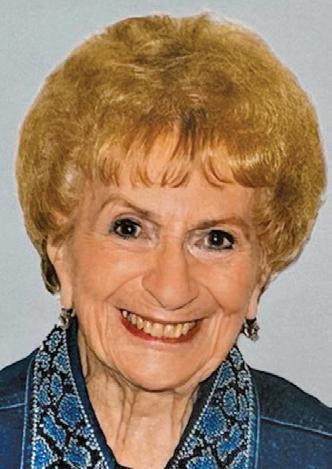
Betty, a proud native of San Francisco, was the beloved daughter of Louis and Ida Shaffer, loving wife of the extraordinary Allen Simon, and devoted and cherished mother to Debbi (Joe) and Sharon (Cliff).
Affectionately known as “Bubbe,” Betty was adored by her loving grandsons, Joel (Lindy) and David (Leah), and treasured by her great-grandchildren Bennett, Delaney, Dylan, Allie, and Beau. Family was the cornerstone of Betty’s life. She shared close bonds with her aunts, uncles, cousins, and extensive circle of dear friends. Betty was renowned for her fashion sense, musical talents, sense of humor, and the warmth and kindness she extended to all she met.
The family extends their heartfelt thanks to the staff at The Magnolia in addition to Golden Heart. An extra special thank-you to Nathalia for the compassionate and loving care she provided to Betty and for being by her side, along with Debbi and Sharon, during her final weeks.
Betty’s two greatest passions were her Jewish
The Obituaries section is supported by a generous grant from Sinai Memorial Chapel, sinaichapel.org
faith and love of animals. Therefore, in lieu of flowers, donations can be made to Temple Israel Music Fund (templeisraelstockton.com) or Dogwood Animal Rescue Project (dogwoodanimalrescue.org).
A private family service was held at Home of Peace Cemetery in Colma. A celebration of Betty’s remarkable legacy will be planned at a later date.
Betty, you will forever remain in our hearts.
Sinai Memorial Chapel | 415.921.3636

Born in the Bronx, Herb Levine died Jan. 6, 2025, wearing a Warriors T-shirt — a fitting end to 82 years of serving as a fearless warrior for the flag of justice. He battled with a keen mind, a sharp tongue, a warm, bright sense of humor and an unconquerable spirit.
Herb worked for over 30 years at the Independent Living Resource Center of SF, which he considered a gift he always tried to be worthy of. From his participation in the landmark 28-day sit-in at the San Francisco Federal Building in 1977 that led to the passage of the
Americans with Disabilities Act, to his role as executive director of ILRC, he shared his unique combination of tenacity, humor and gentle wisdom as a leader and a teacher.
Although his professional work was advocating for people with disabilities, his drive to help others, deeply rooted in his Judaism, extended to all areas where people could be helped. He had an intense love of knowledge and was well read in many areas. His Jewish learning included an affinity for the works of the Chofetz Chaim and Rabbi Samson Refael Hirsch. His love of reading was such that he wanted to share it with everyone who stopped by, guests often leaving with a book in hand. He was a lifelong learner with a questioning nature that never diminished.
Herb’s most treasured role was that of husband, and father. He was a nourisher: preparing meals, providing a shoulder to cry on, and filling up his family with a lifetime of love.
Herb was a dedicated husband (wife Karen Weissmann), nurturing father (Sarah and Michael) and beloved grandfather. He also is survived by his brother (Bernie) and first wife (Channa Ora) and best friend (Bill Palmer). He leaves behind a blueprint on how to live a purposeful life.
In lieu of flowers, send a letter to your congressman to prevent cuts to social and disability services.
Herb requested that donations in his memory go to either the Senior Disability Action (sdaction. org/) or Kollel Avreichim (checks for Kollel to 2225 Rue Goyer Montreal Quebec Canada H3S1H1). A memorial was held Feb. 5 at Adath Israel in San Francisco.
May his memory be blessed.
Hal Feiger died Wednesday, Jan. 29 at age 76. He is survived by his wife Diana, sons Lennon, Aaron (Ashley), and Zach (Danielle) and four beautiful grandchildren, his siblings Tina and Alan and their families.
While alive, Hal lived life to the fullest. A real mensch, he loved his Judaism and was passionate about the Jewish community. He helped facilitate the brokering of the buildings for both Chochamat HaLev and Kehilla Synagogue in years past.
A funeral was held Feb. 5 at Home of Eternity Cemetery in Oakland and a shiva memorial service was held at Chochmat HaLev Feb 6. Condolences can be sent to Diana Feiger, 1081 Warfield Ave., Oakland, CA 94610. Donations in his honor can be made to Chochmat HaLev, Kehilla Community Synagogue and/or to We Care Solar, a global project to provide light and electricity in birthing facilities.
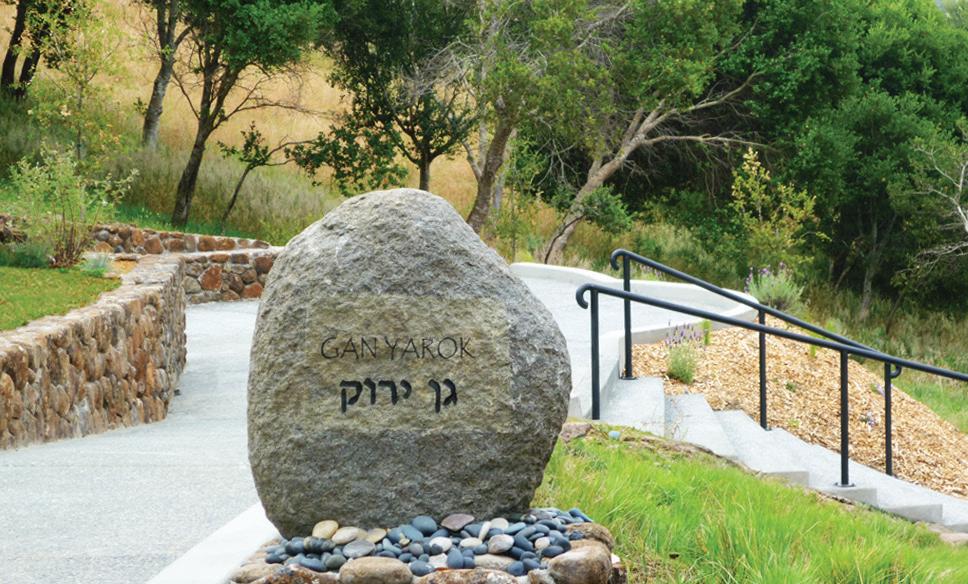

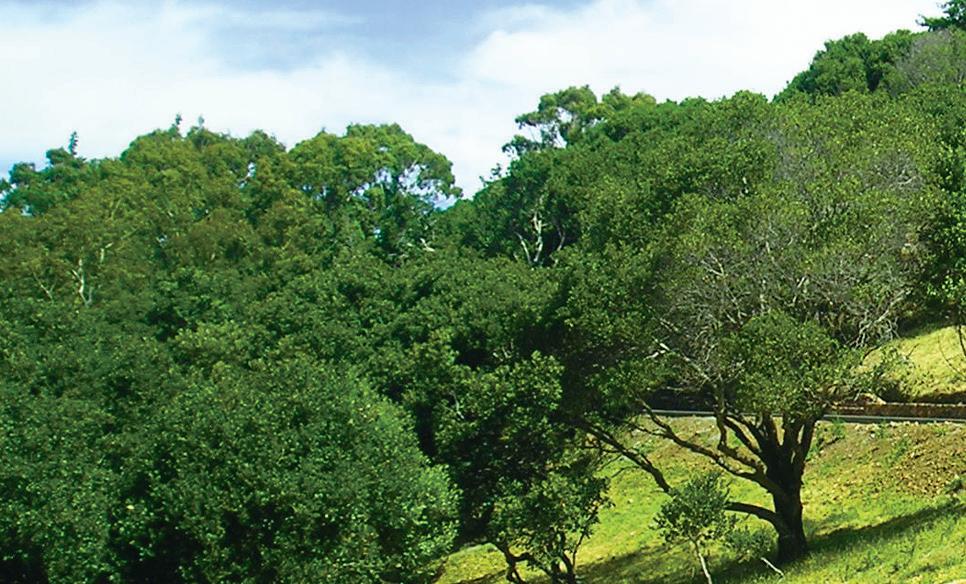

MAYA MIRSKY | J. STAFF
Who should come to the United States? Who should stay?
From this publication’s earliest days, Jews in the Bay Area were preoccupied with questions of immigration, citizenship and assimilation.
The Emanu-El, a forerunner to J., was a staunch bastion of established Reform Judaism, which strongly favored assimilation and touted American liberty as the best of all possible systems. The Emanu-El was read by — and indeed run by — immigrants who sought to leave their past behind.
Rabbi Jacob Voorsanger, our founding editor and the spiritual leader of then-Temple Emanu-El in San Francisco, was himself born in the Netherlands. Many of the city’s big names, who donated money to charities and sat on boards, were immigrants from Germany. They viewed America as a promised land of freedom for Jews and truly believed in California as the Golden State. They thought that Jews in this country could, and should, assimilate and become model citizens.
“America is unquestionably ‘God’s Own Country,’ and California is the very arcana of Paradise,” Australian journalist Maurice Brodzky wrote in our pages in 1906. “Where does the Jew occupy a better position than in the United States of America?”
The Emanu-El’s editors largely rejected Zionism as a kind of anti-American tribalism and furiously repudiated any claim that Jews couldn’t become the best kind of Americans.
In 1895, for example, the paper denounced a visiting German “anti-Semitic agitator” who railed against Jews: “He does not believe they should hold offices, enjoy the rights of citizenship, or have any share in public affairs. The wretched spirit which prompts the persecution or ostracism of the Jew is

the joint product of ignorant dogmatism and religious bigotry.”
However, the Emanu-El showed bigotry of its own at times. The situation became especially tricky for the editors and writers when they were confronted with immigrants unlike themselves, particularly Jews from Russia and Eastern Europe. In the late 19th century and beginning of the 20th, a huge number of Jews fled Russian-controlled territories and the Pale of Settlement, which included what is now Poland, Lithuania, Belarus, Ukraine and Moldova.
“We say hundreds of thousands” have arrived, Voorsanger
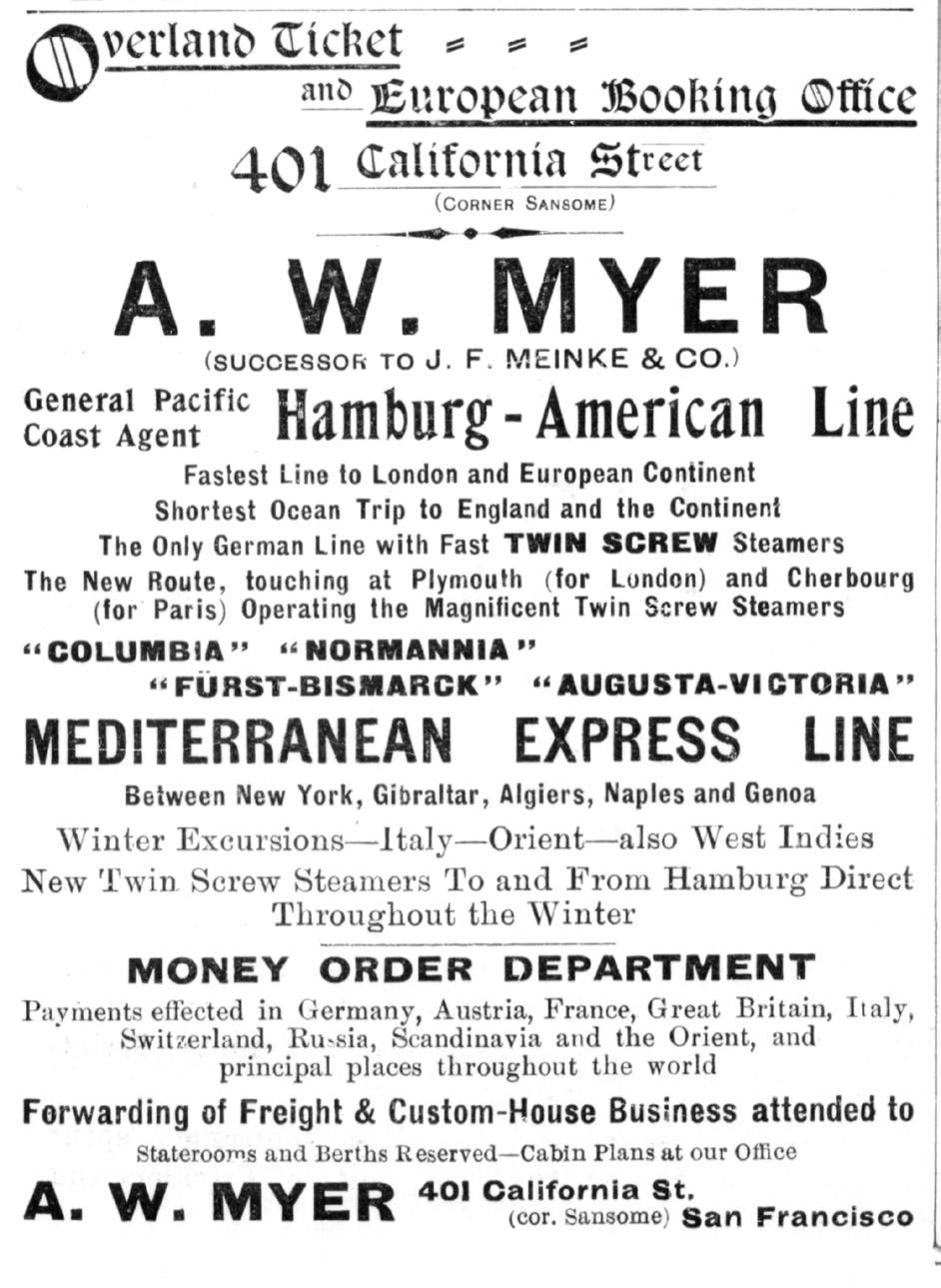
wrote in 1905, “and we believe we do not exaggerate the numbers, considering the vast immigration of the past two decades.”
Many Jews escaped to avoid starvation. Others, “believing they owe no duty to the Czar or a government that would not object to their being shot to pieces but denies them the prerogatives of free citizens, are withdrawing from the sovereignty of the emperor and the gloomy environments of Russian life to venture in the unwonted surroundings of the United States.”
The Emanu-El — and, we can infer, some of its readers — inherently understood why people would want to leave Russia but simultaneously had a low opinion of these more religious, less educated Russian Jews who showed up on America’s doorstep.
An article from England’s Daily Mail, which ran in our pages in 1896, offers a vivid example of how Russian Jews were viewed:
“The class of Jew who comes here, although we confess he is quickly transformed into a fairly decent citizen when vouchsafed a fair field of freedom, upon his arrival presents terrible marks of grinding oppression which has been the staple of his existence,” the article stated.
“He is nearly always stunted, both physically and mentally, and too frequently he carries with him to these shores the germs inhaled in the disease-laden pale, which must lay him in an early grave.”
Still, this paper argued, they were Jewish and shouldn’t be rejected. It wasn’t their fault they were so downtrodden.
This led to some tortuous logic in the paper. Mostly it was OK to let in more Jews because they’d be taken care of by other Jews — but not too many, and with the caveat that they
should not settle in New York or speak Yiddish.
Basically, it was American to oppose immigration in order to protect America. Yet it was Jewish to support Jews.
This 1908 editorial was written by Voorsanger himself: “It is a patriotic duty to discourage all undesirable immigration, but it is also proper to demand logical definitions of that adjective ‘undesirable.’”
He didn’t want education to be considered a necessity for immigration, for instance: “The attempt to impose an educational qualification, for instance, upon the immigrant seems wholly impracticable.” And as far as Jewish immigration went, education, or lack thereof, wasn’t an issue, he wrote.
“Whilst a very large percentage of the Russian nation neither write nor read, not a single Russian Jew could be found at that time who could not write his name in one of three languages, either Russian, or German or Yiddish.”
(Voorsanger also noted that schooling could actually be a detriment. “As a rule the anarchist is a person of some education,” he wrote, “and he certainly is undesirable.”)
And don’t forget, he noted, that the country needed people who were ready and willing to undertake physical labor.
That attitude is reminiscent of today’s debate swirling around who will perform the back-breaking work in America’s agricultural fields amid a crackdown on immigrants.
Voorsanger pointed out that there was room and more for workers.
“Instead of its eighty millions, this vast country might have two hundred millions or more of inhabitants, and that native labor is utterly inadequate to the demand of developing the national resources, it does not seem just to impose restrictions upon immigration that will ultimately stop the flow and close the ports,” he wrote.
Throughout it all, a belief in freedom stands at odds with other, frankly racist, opinions, a duality summed up in Voor-
“The class of Jew who comes here … carries with him to these shores the germs inhaled in the disease-laden pale.”
Daily Mail, 1896
sanger’s take on immigrants from China.
In one 1896 editorial, he was capable of making bigoted statements about Chinese Americans, calling out their “non-assimilative tendencies” as “natural.” Yet he also argued that they were part of the fabric of America.
“The native Chinese is not an alien. He is a citizen. He is respected as such,” Voorsanger wrote.
This extension of an open hand stands out amid the protectionism, reflecting a generosity of spirit toward the newcomer that is worth preserving in Jewish tradition.
Leon Sanders, president of the Hebrew Sheltering & Immigrant Aid Society of America, addressed the subject in 1916: “The Jew in America has a duty, a sacred duty. Liberty has come to him so that he might become a factor in the solution of the Jewish question. American Jewry is no longer isolated,” he wrote. “Freedom, when enjoyed by the individual himself, is meaningless and is of no consequence. No man stands alone.” n
The Jewish Film Institute presents the 12th annual WinterFest, February 22–23, 2025 at the Vogue Theatre in San Francisco.
Opening Night Tuesday, February 18
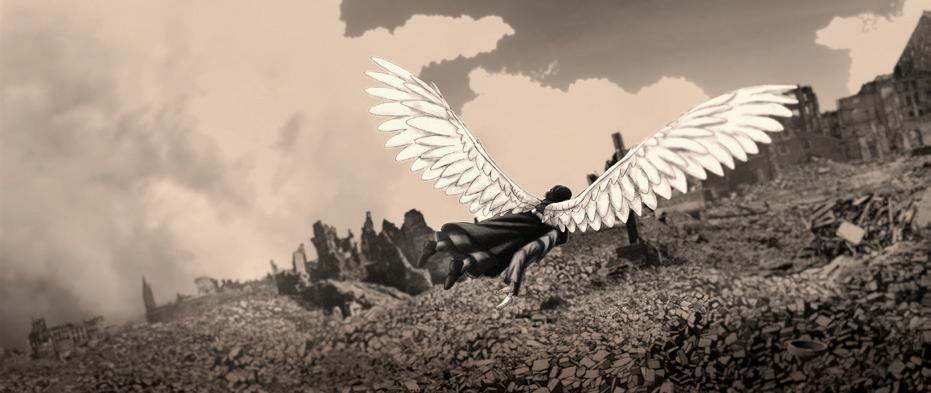
6:00PM

OPENING NIGHT: Among Neighbors
Using beautiful hand-drawn animation to bring the past to life, Among Neighbors investigates the story of a small, rural town where the longstanding peace between Jewish and Polish neighbors was shattered by World War II. Sponsored by the Koret Foundation
Saturday, February 22
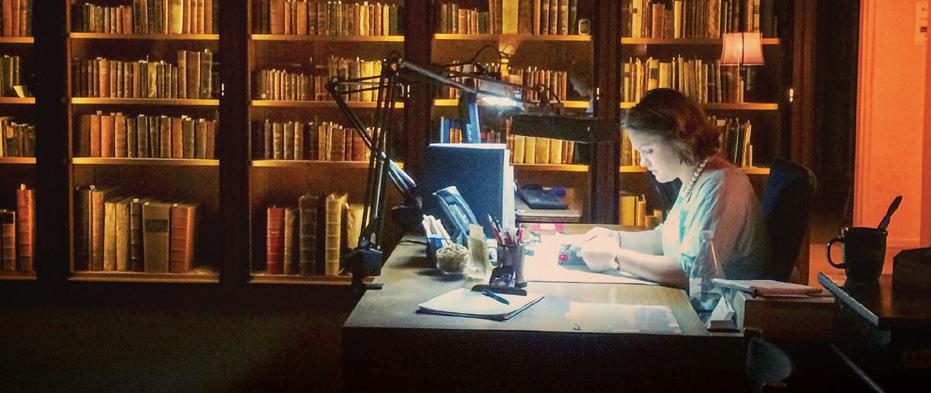
1:30PM
Free for All: The Public Library
Free For All: The Public Library tells the story of the U.S. public library system—a simple idea that shaped a nation and the quiet revolutionaries who made it happen. Filmmakers expected to attend.
Sunday, February 23

1:30PM
PANEL: Creative Interventions:
From innovative dramatic features to illuminating documentaries, WinterFest dives deep into tales that entertain, challenge, educate, and delight us. Now on sale at jfi.org/winterfest.

4:30PM

Most People Die on Sundays David, a gay Jewish millennial, returns home to Buenos Aires for his uncle’s funeral, where he struggles to confront his familial obligations.
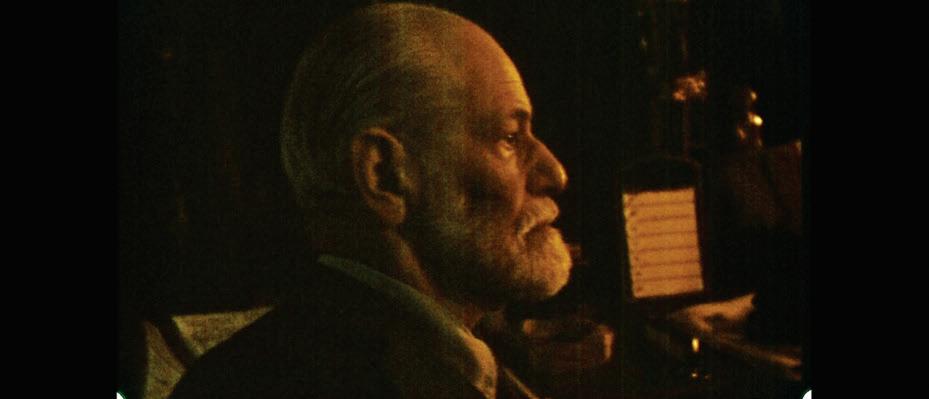
The Role of Art in Healing Political Division Jewish thought leaders and creative practitioners discuss the role of the arts in addressing the political polarization intensified by October 7th, and how art works to heal these divisions. 4:30 PM
Outsider. Freud
The life and legacy of Sigmund Freud, one of the most influential and studied figures in modern psychology, is re-examined in this fresh new portrait of the man behind the theory.
7:00PM
Everything You Have is Yours

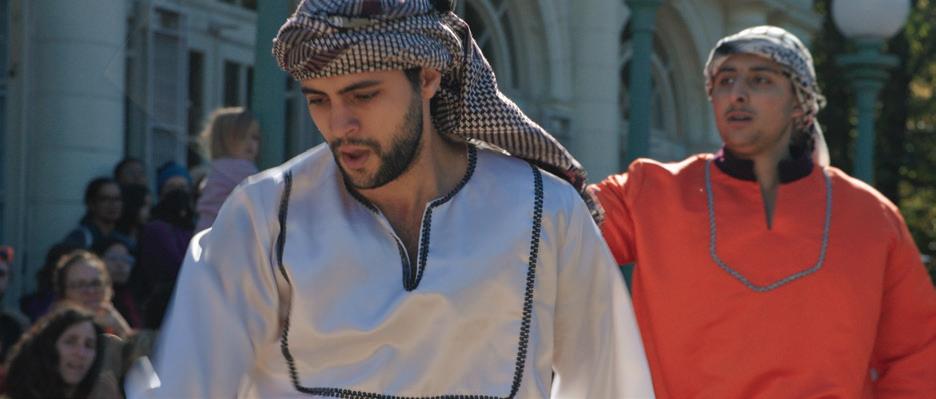
In this sensitively crafted documentary, choreographer Hadar Ahuvia begins a personal endeavor unpacking and confronting the appropriative origins of the Israeli folk dances she grew up with. Filmmakers expected to attend.
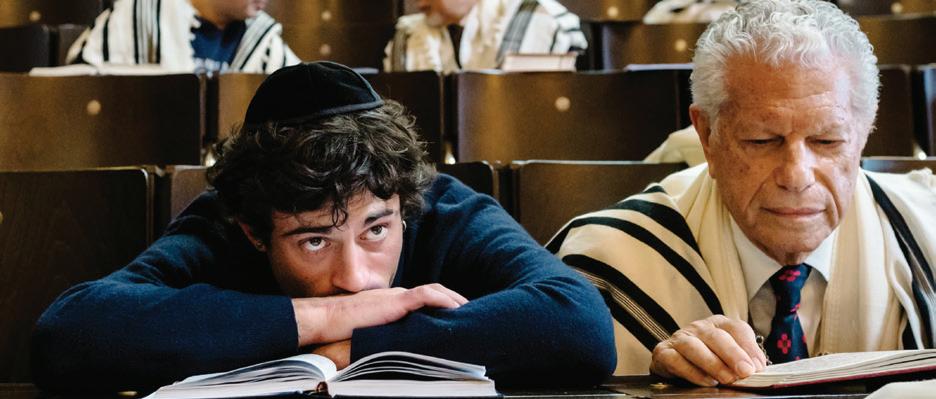
7:00PM
The Zweiflers
When the Zweifler family patriarch announces his plans to sell the family’s deli empire, it causes a shift for the whole extended family to navigate. Program presents episodes 1–3 of the German television series.


